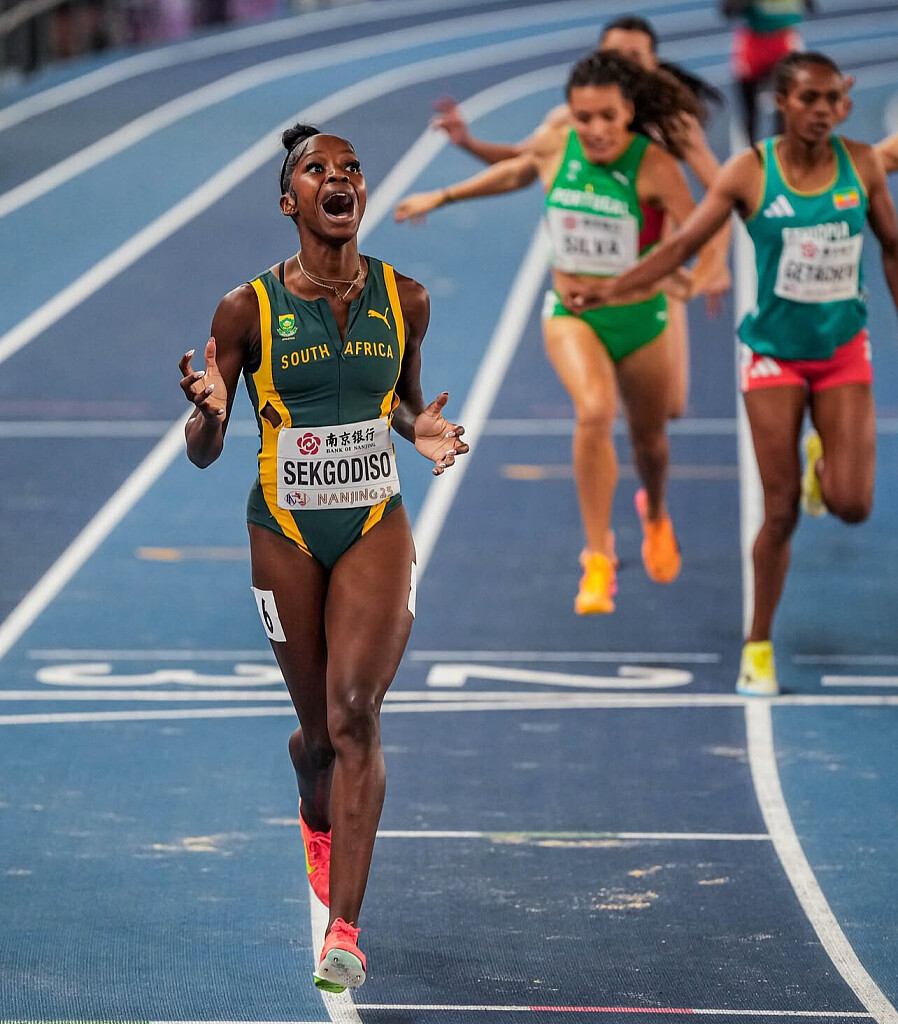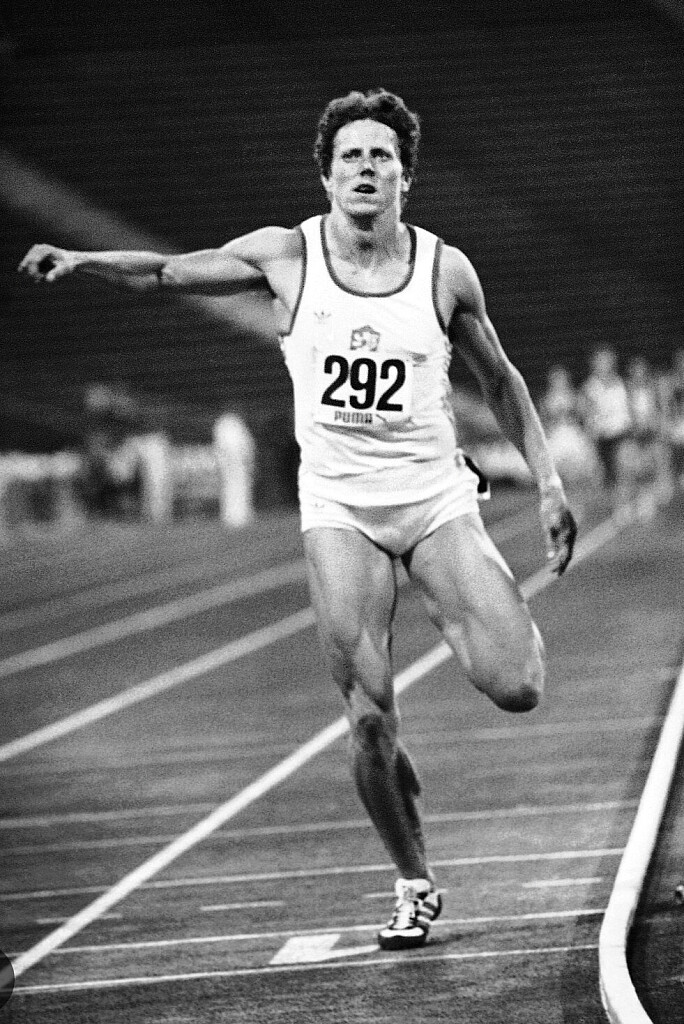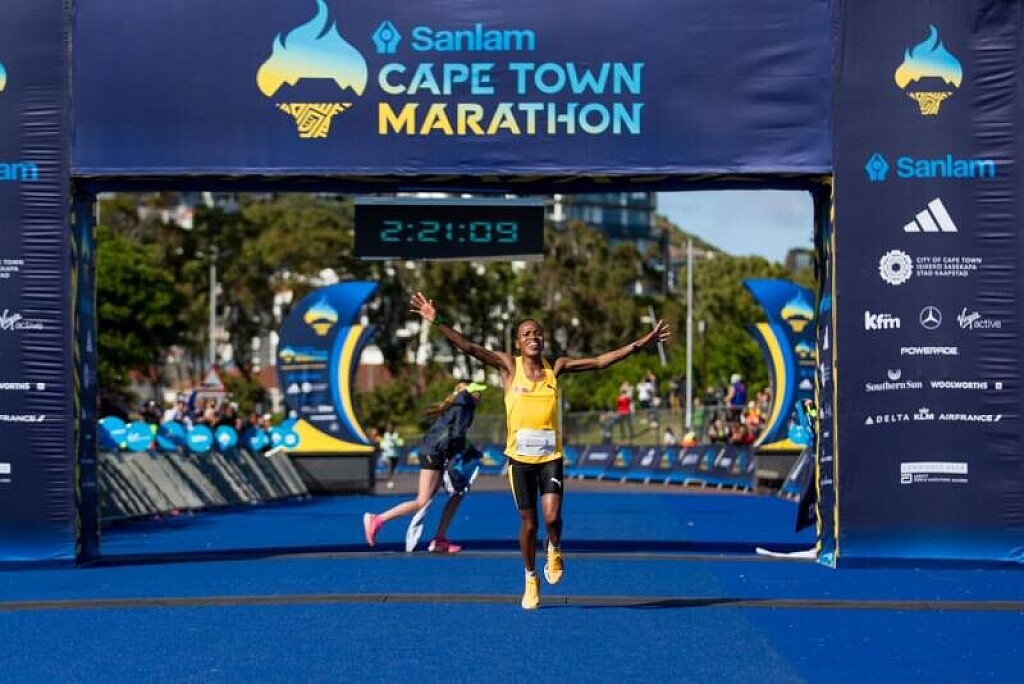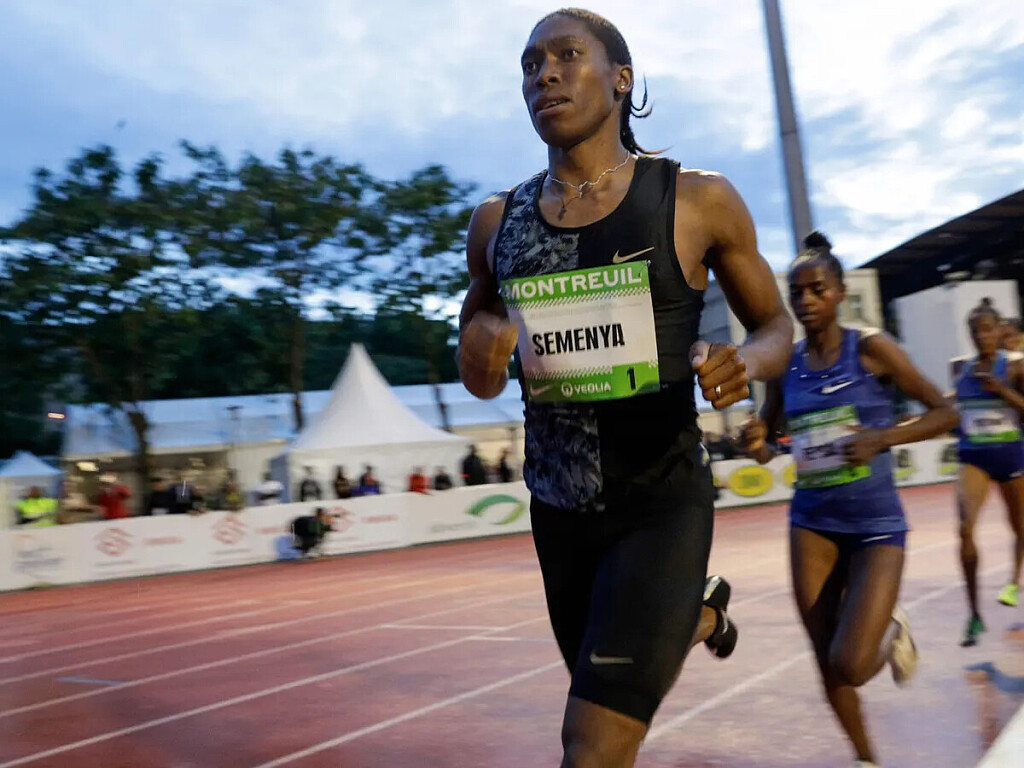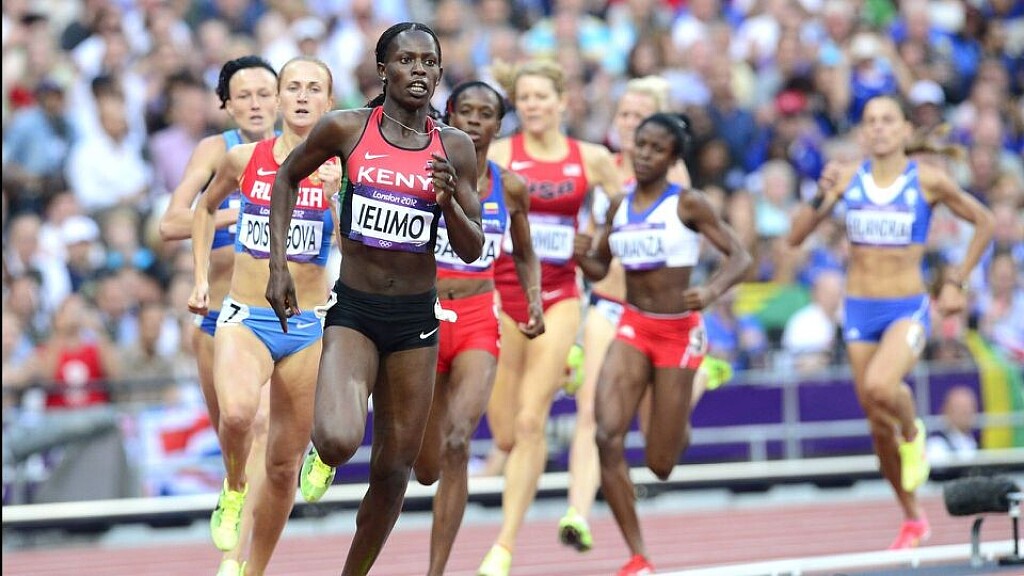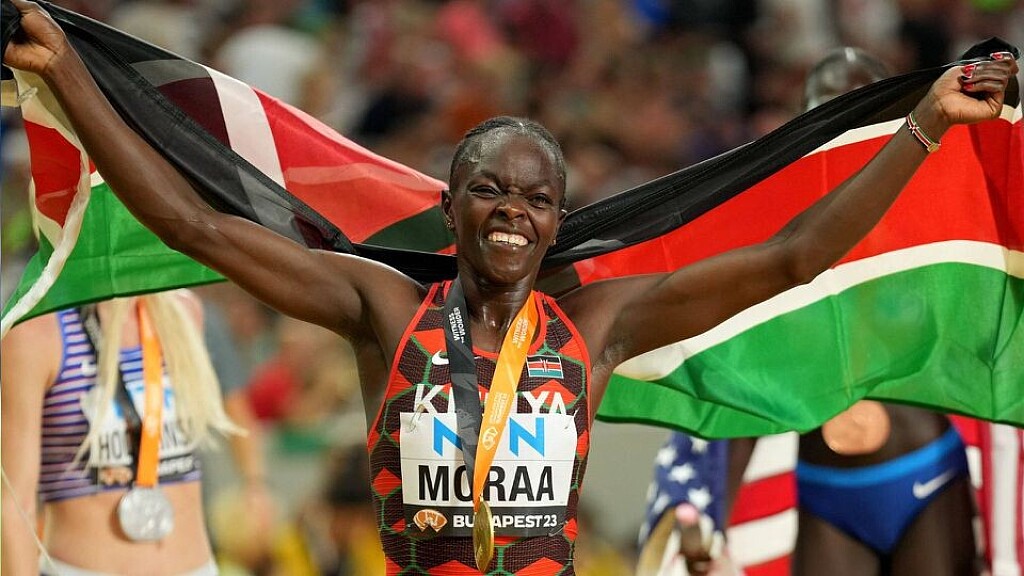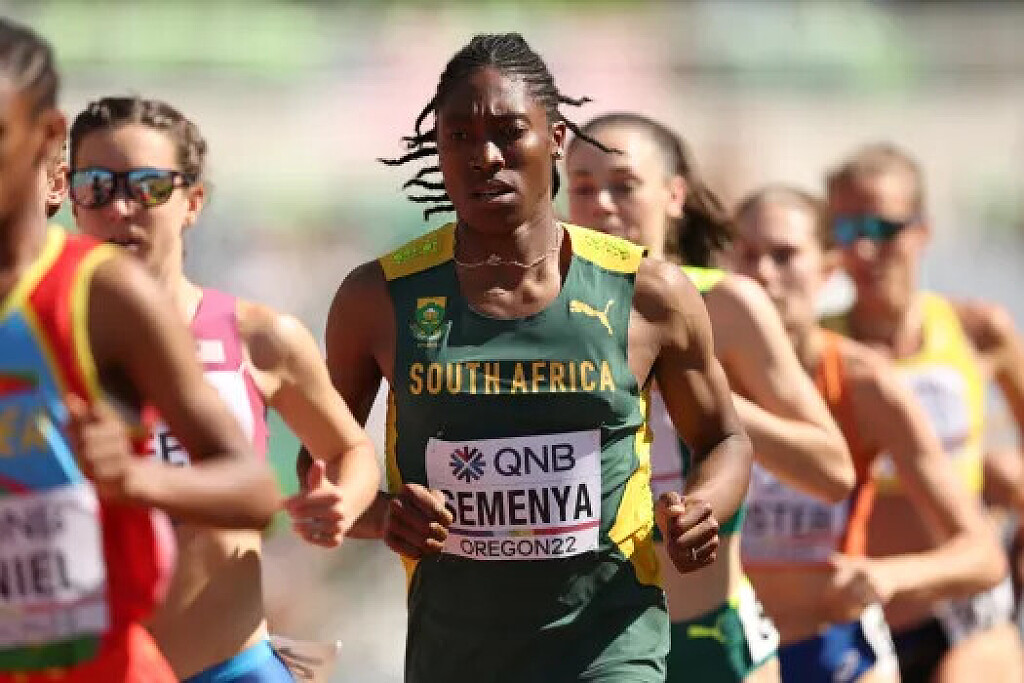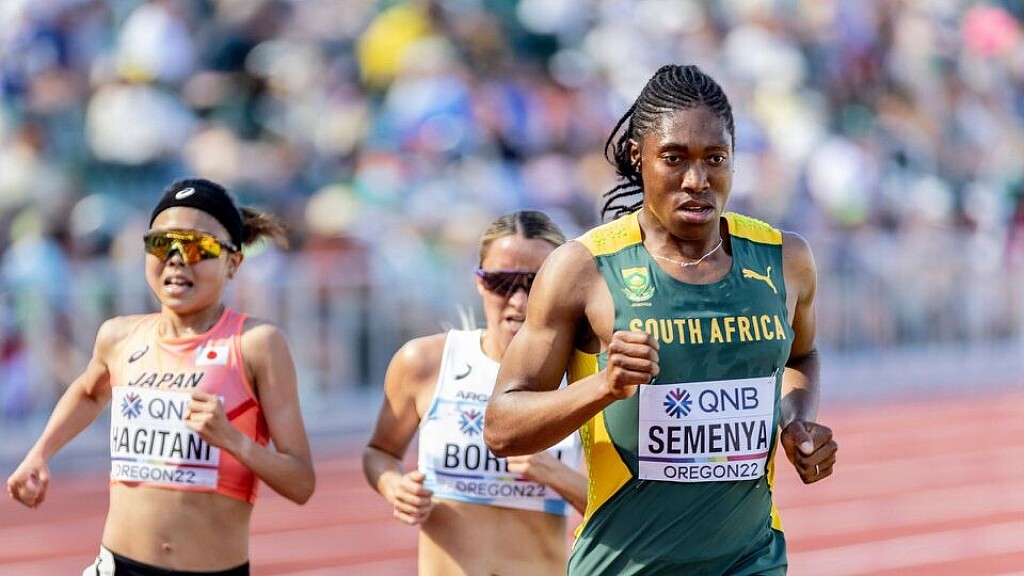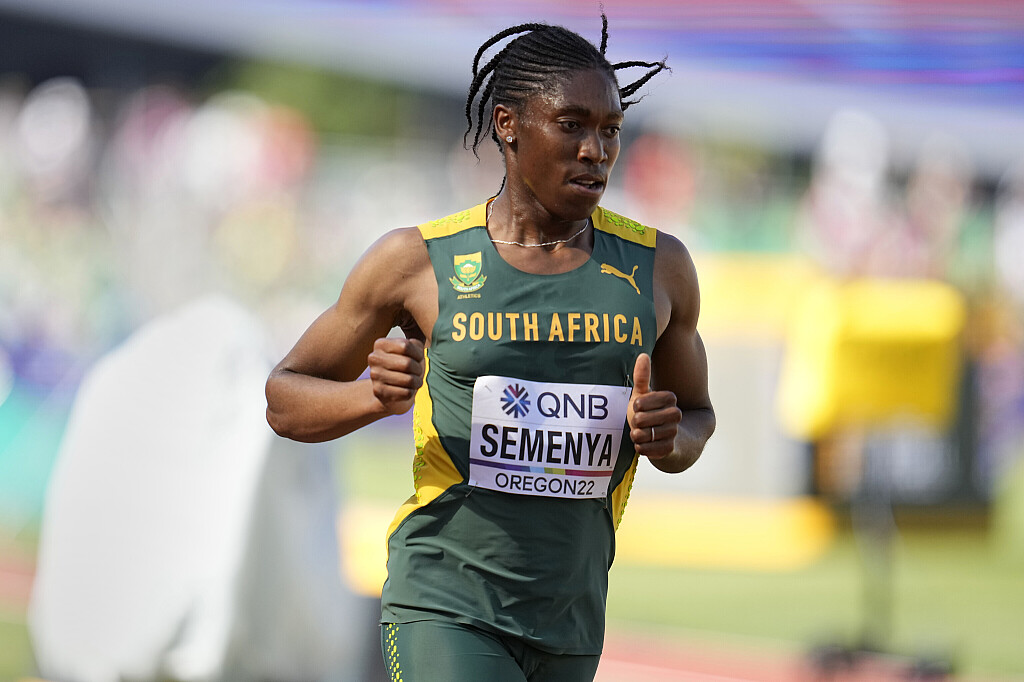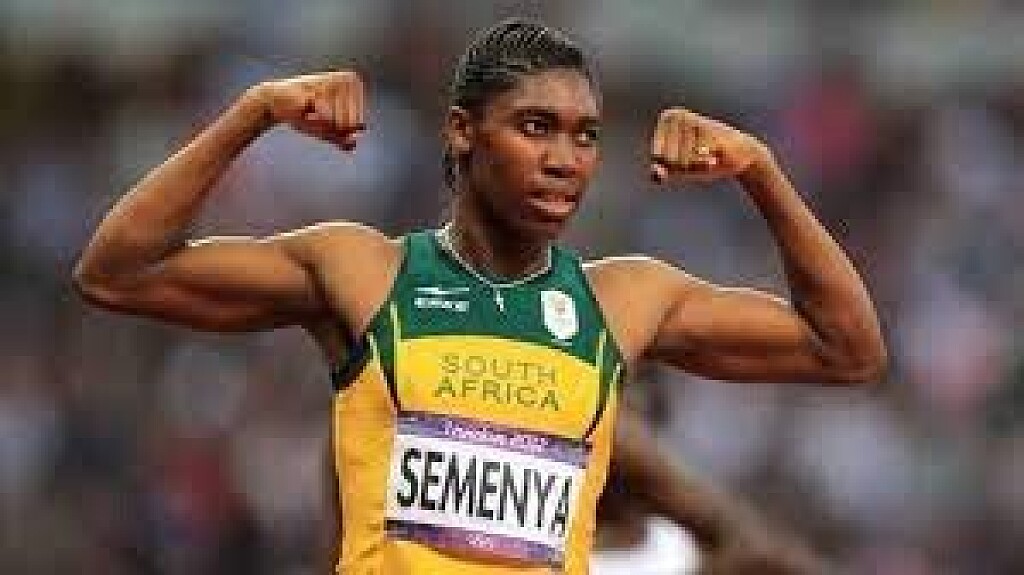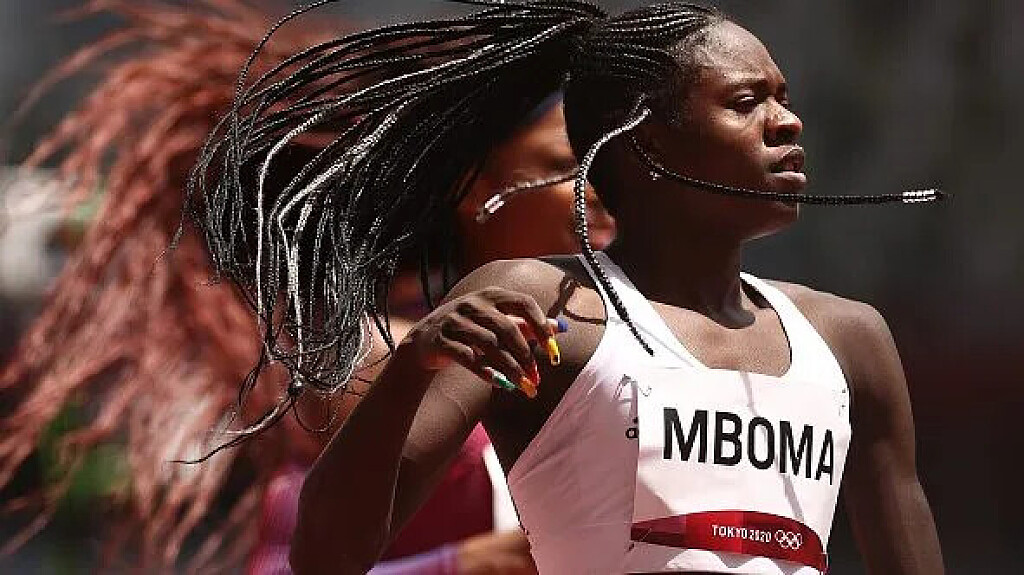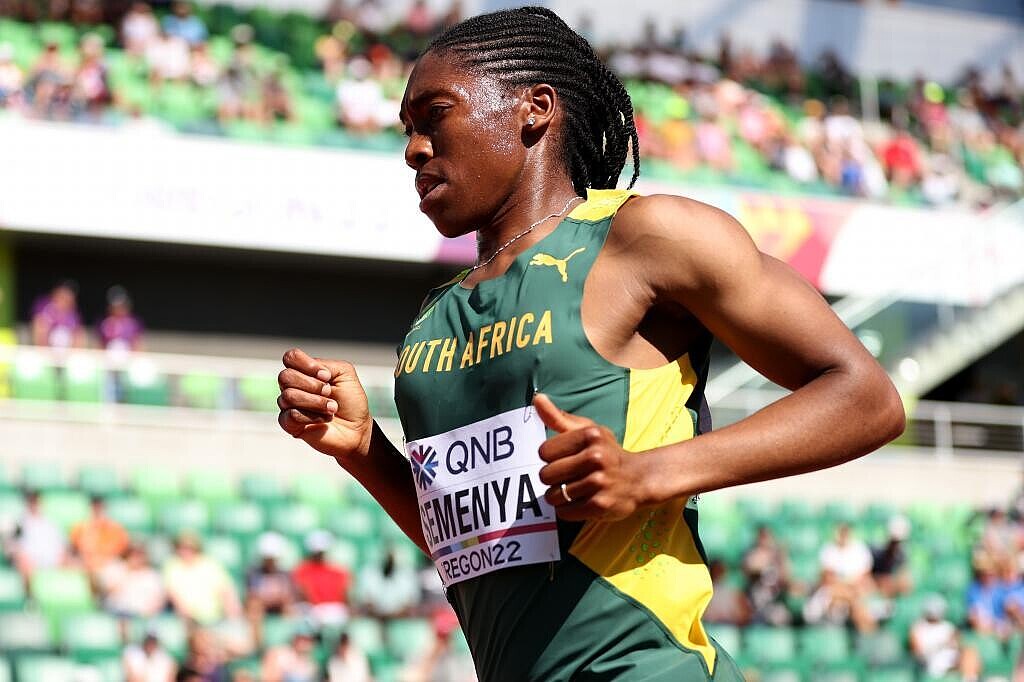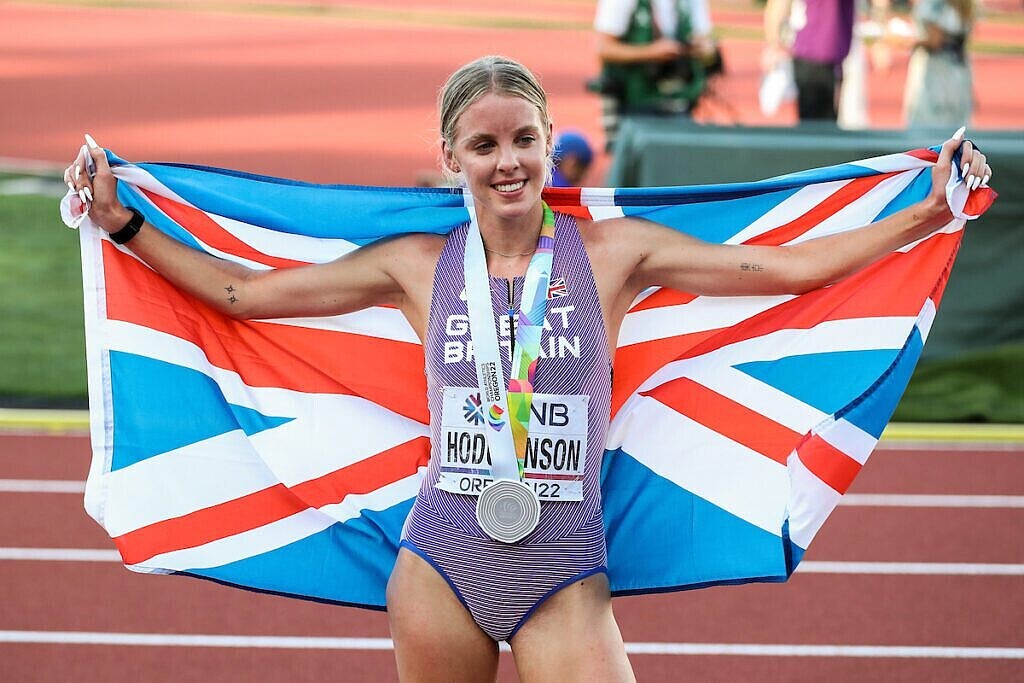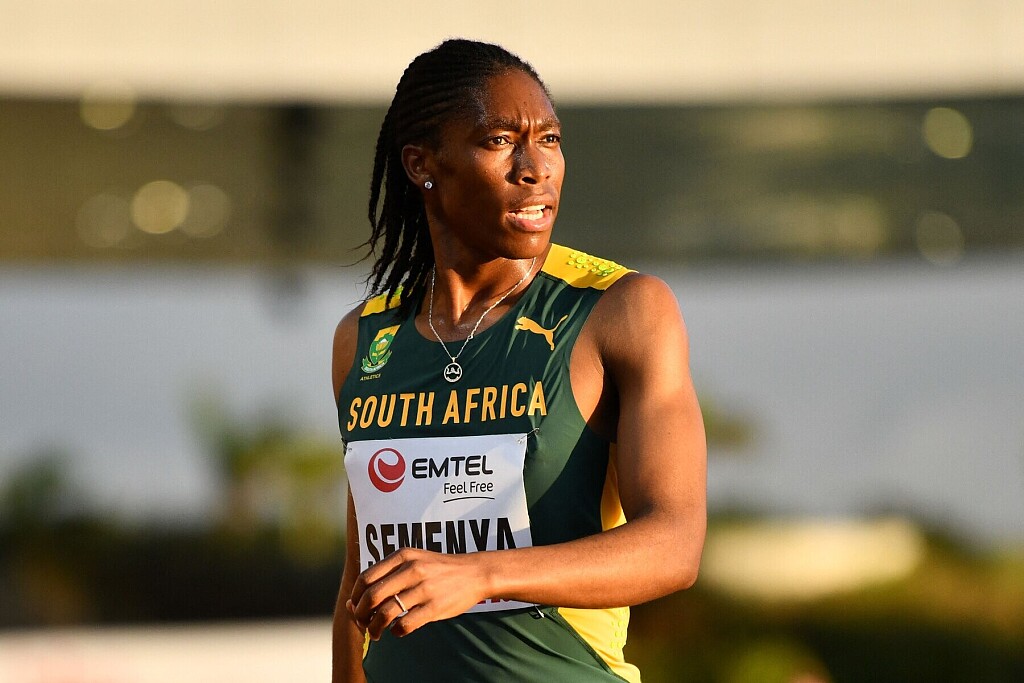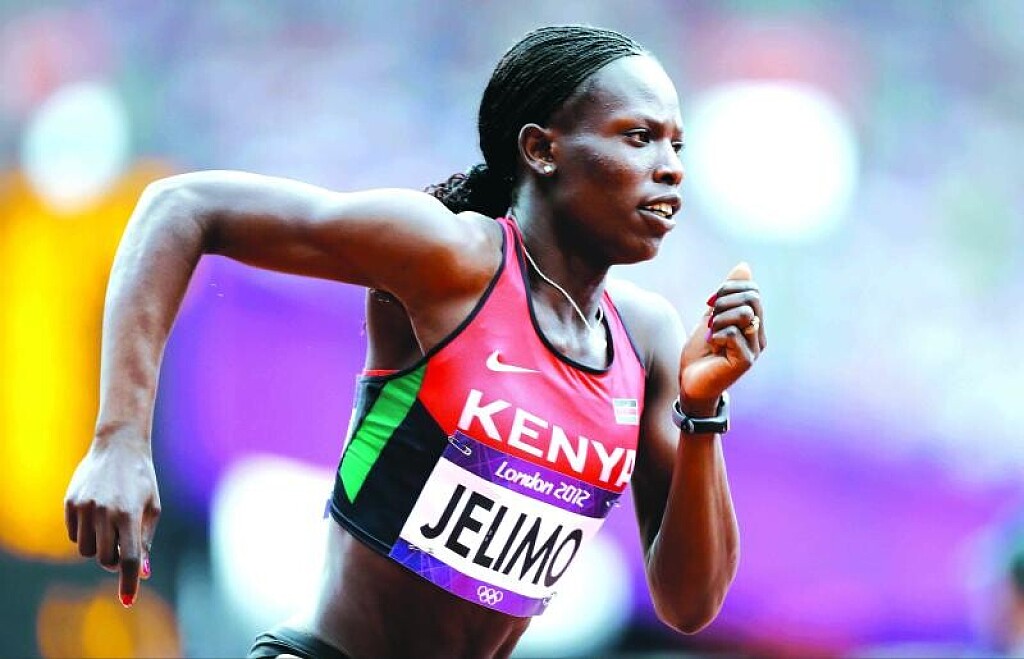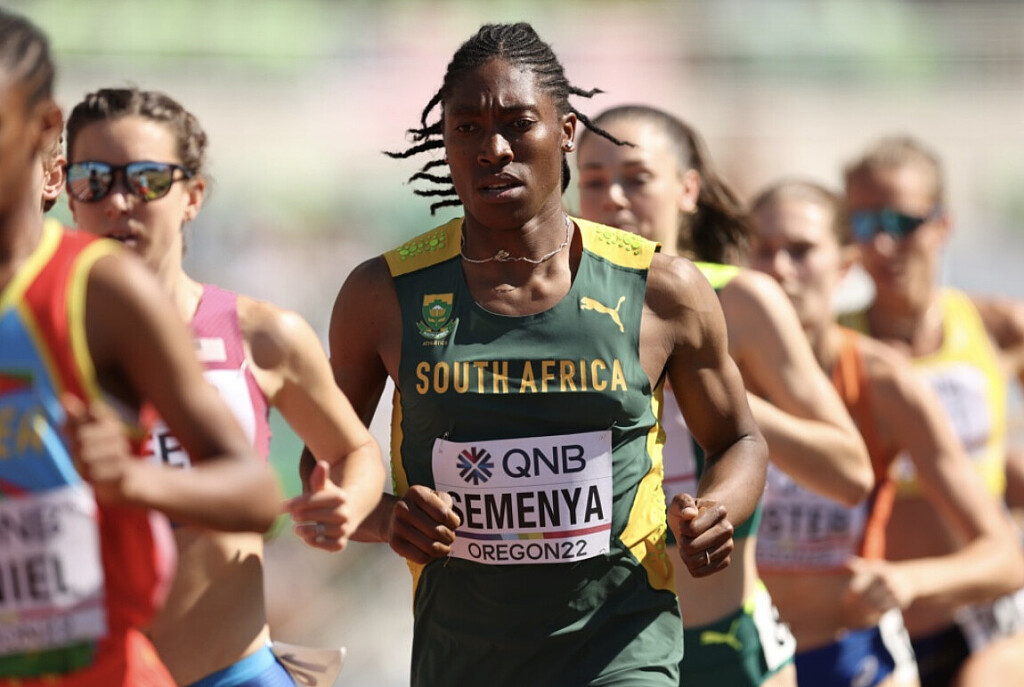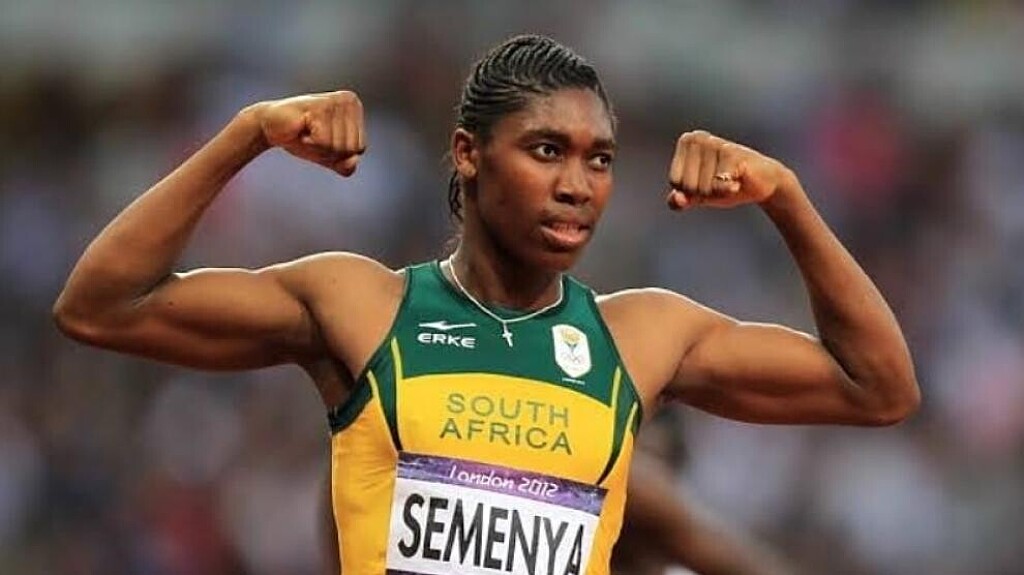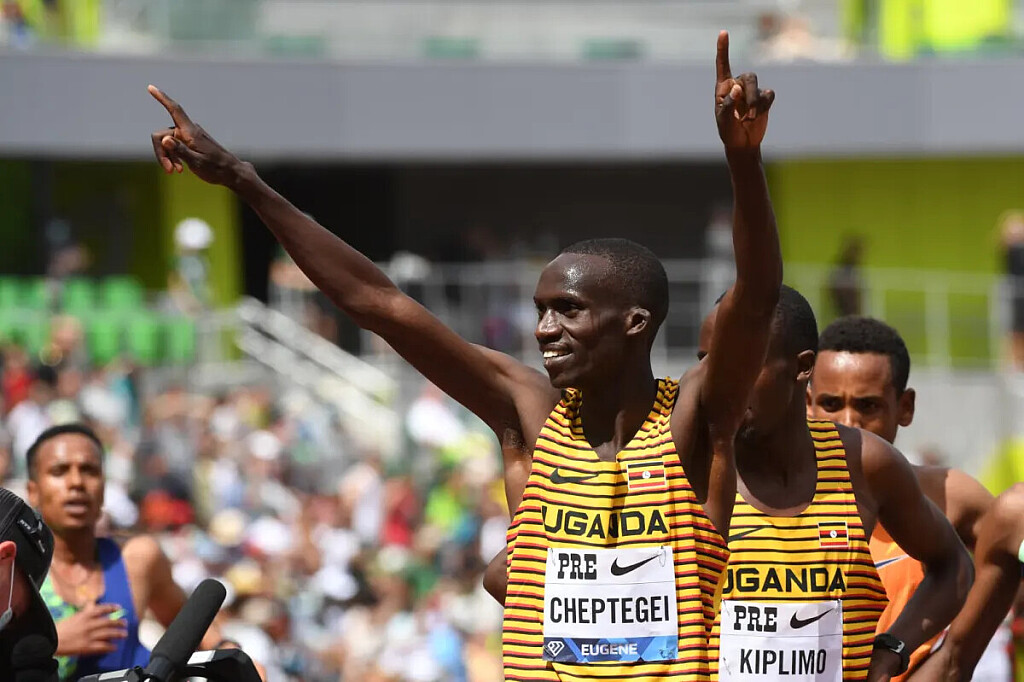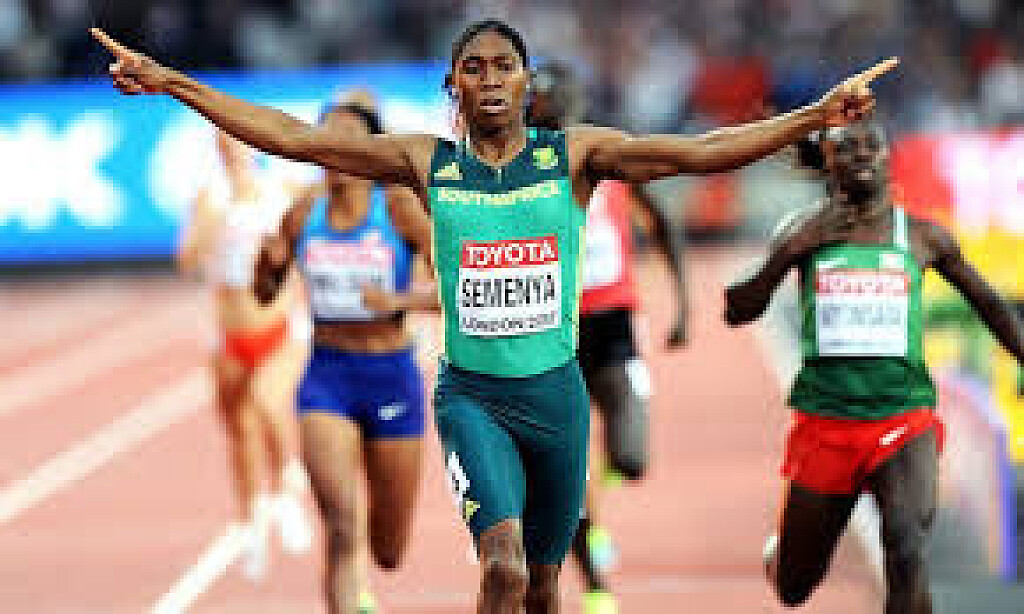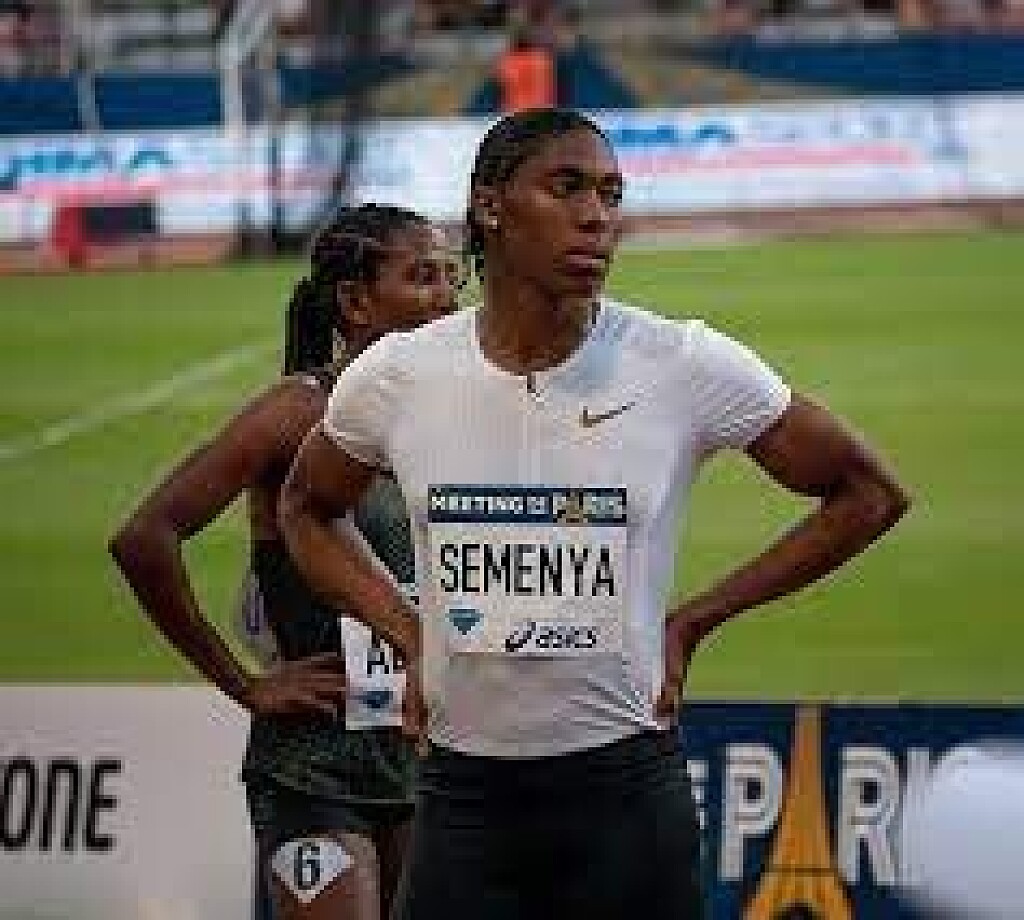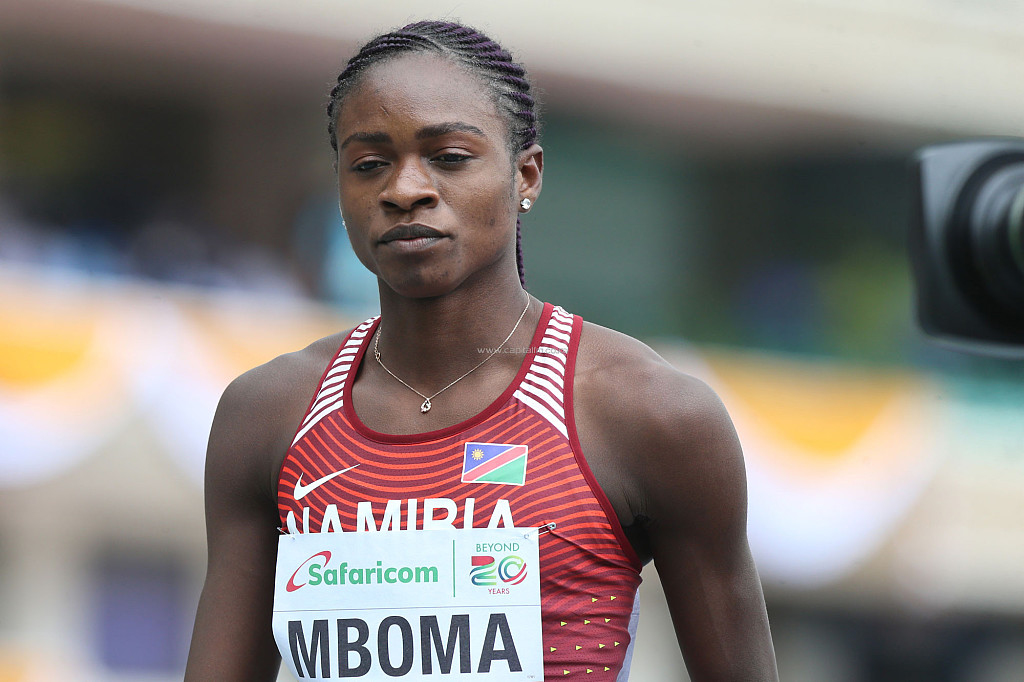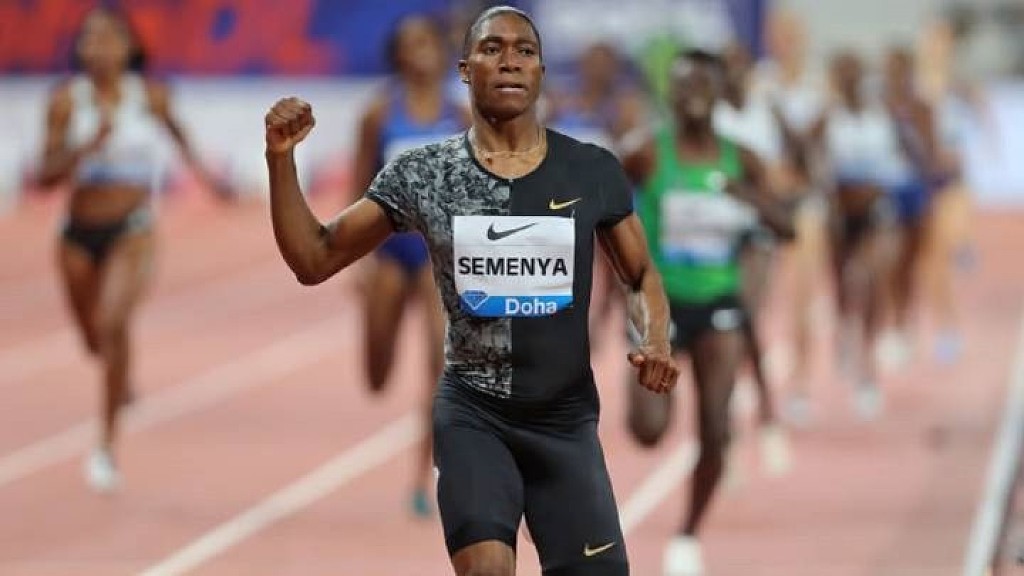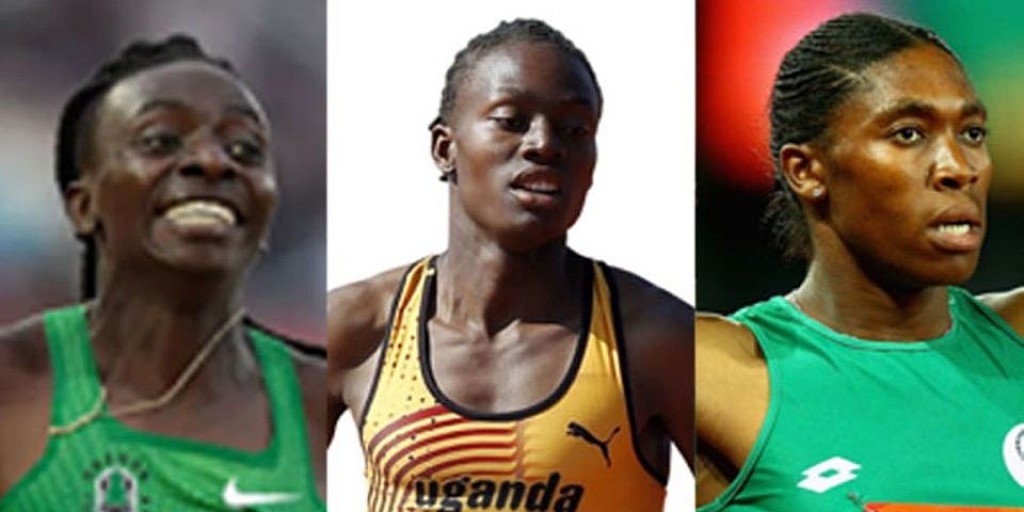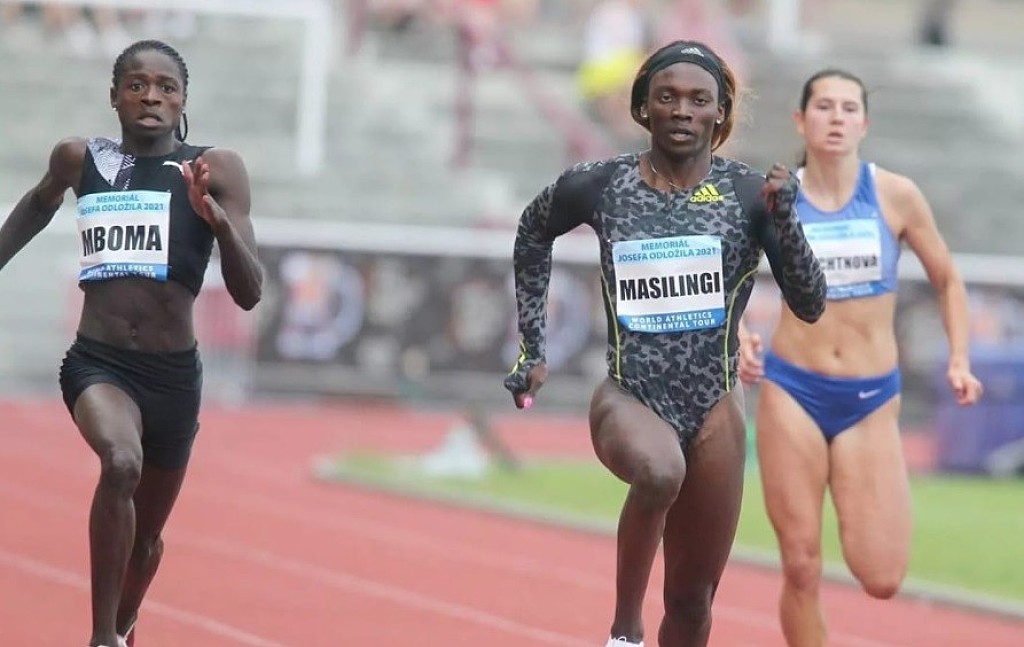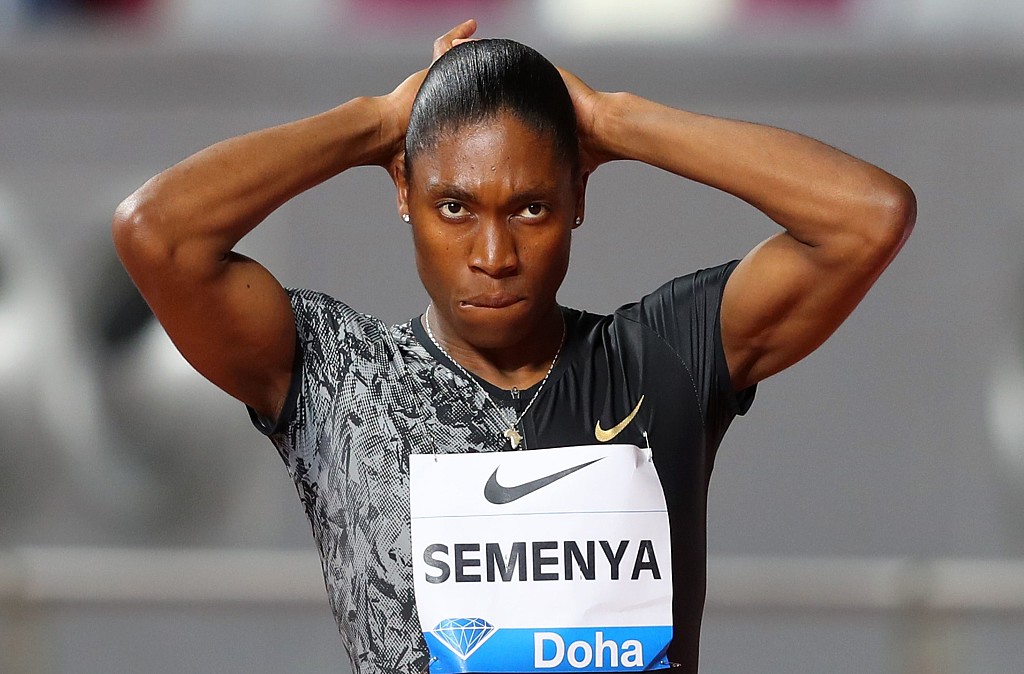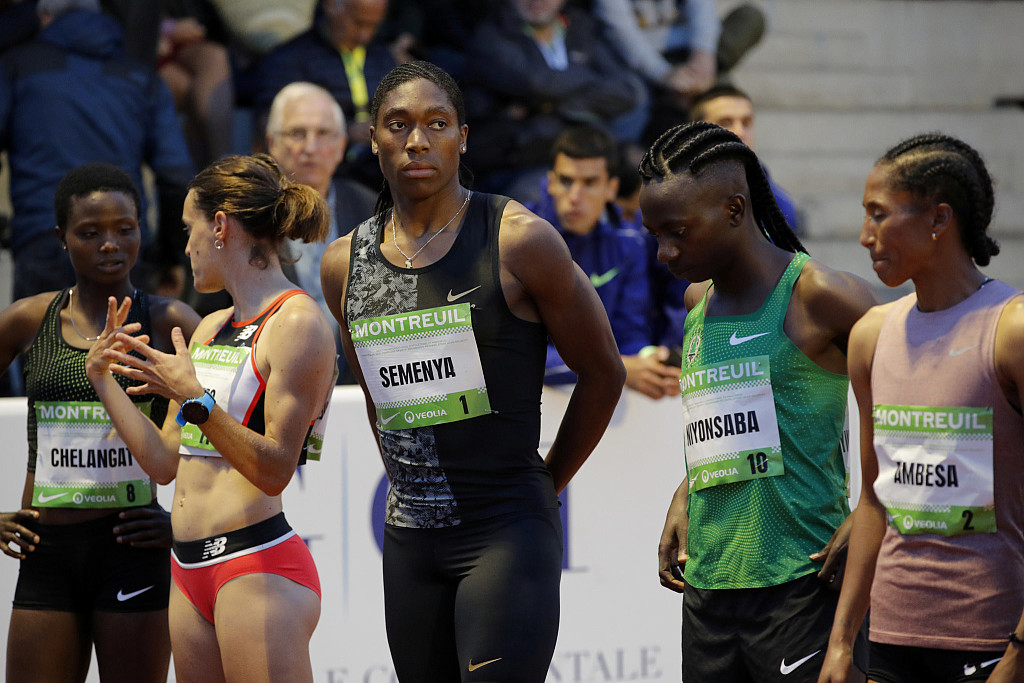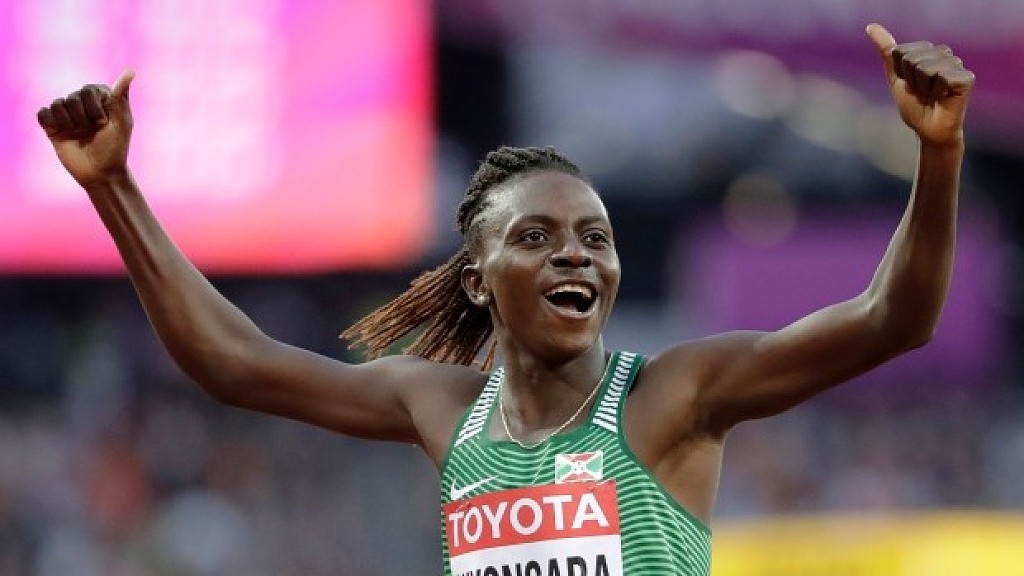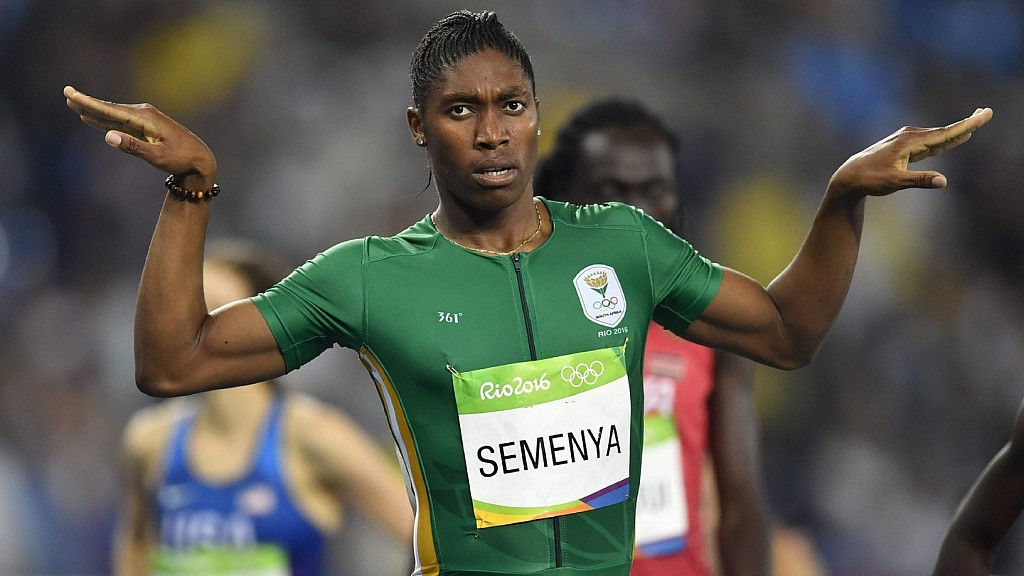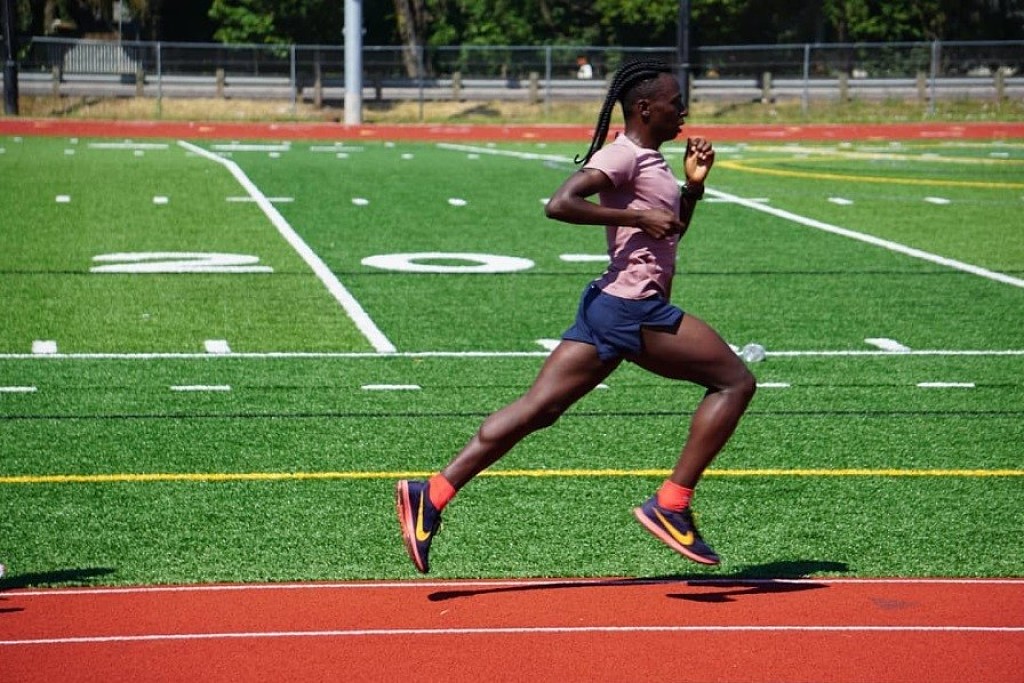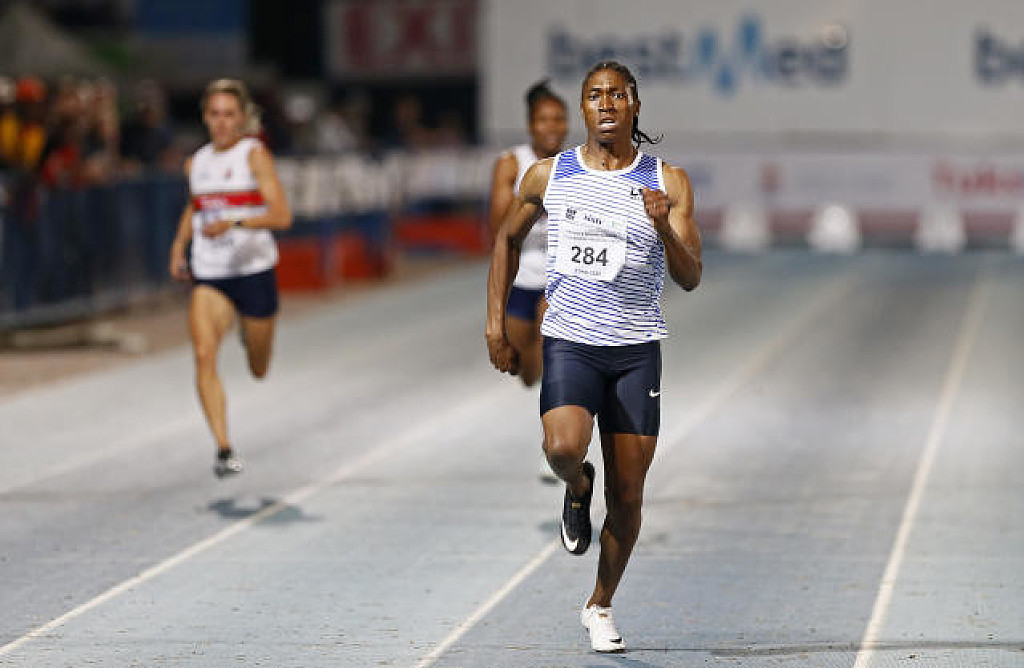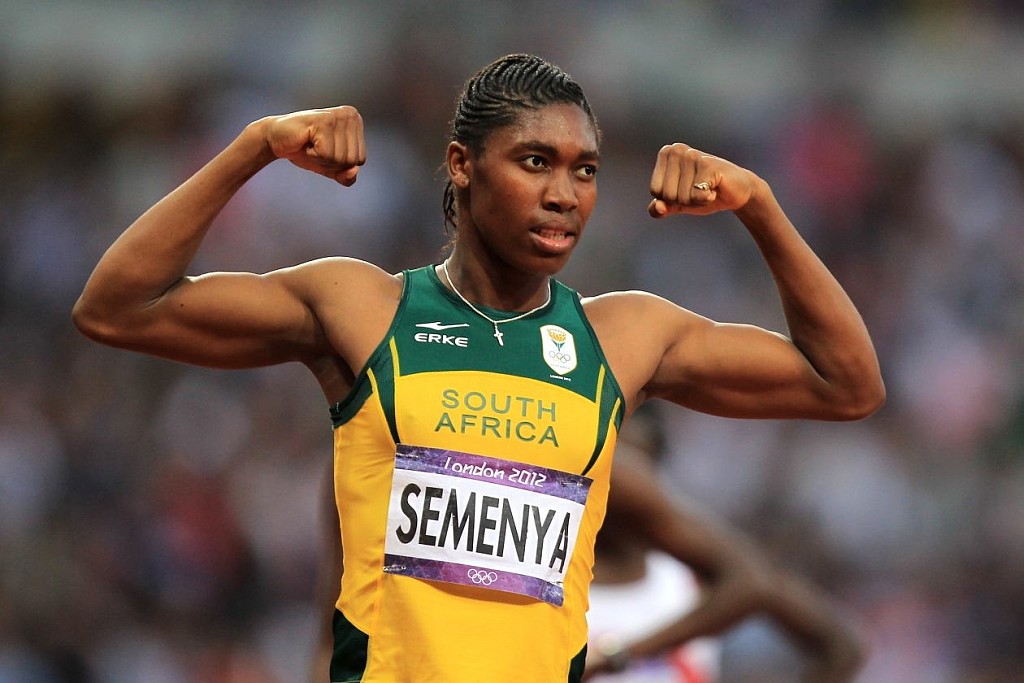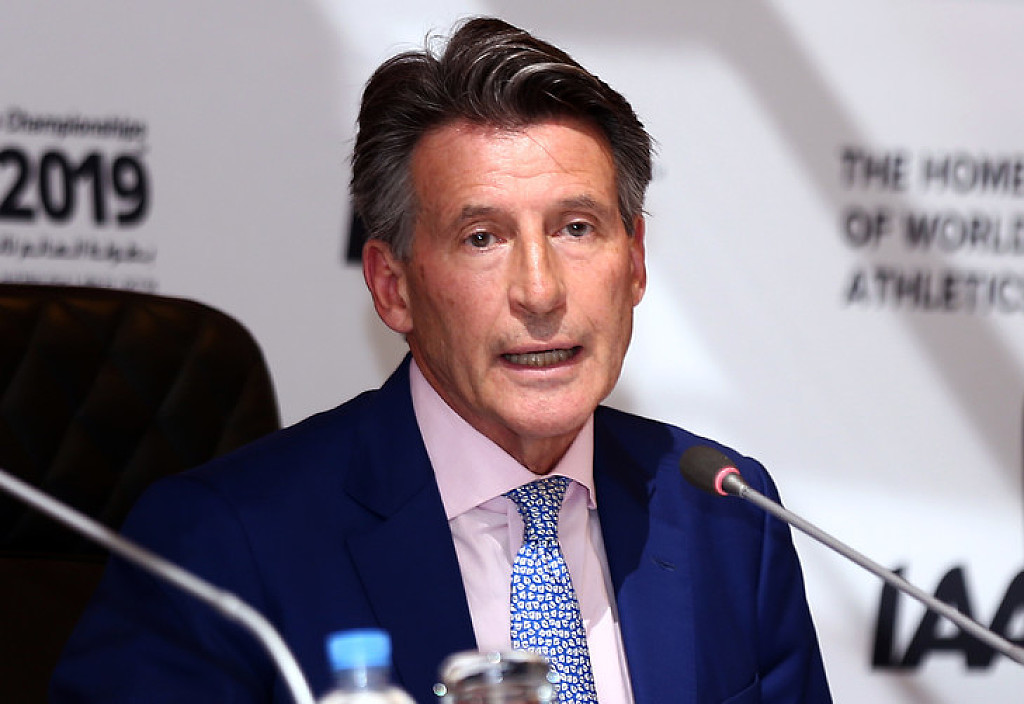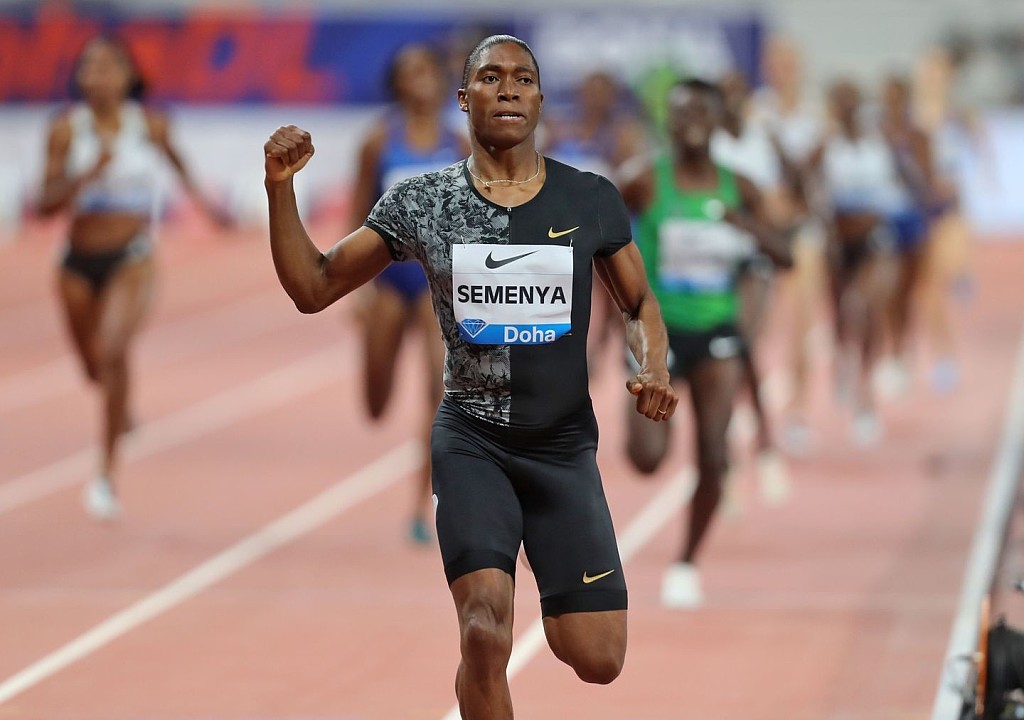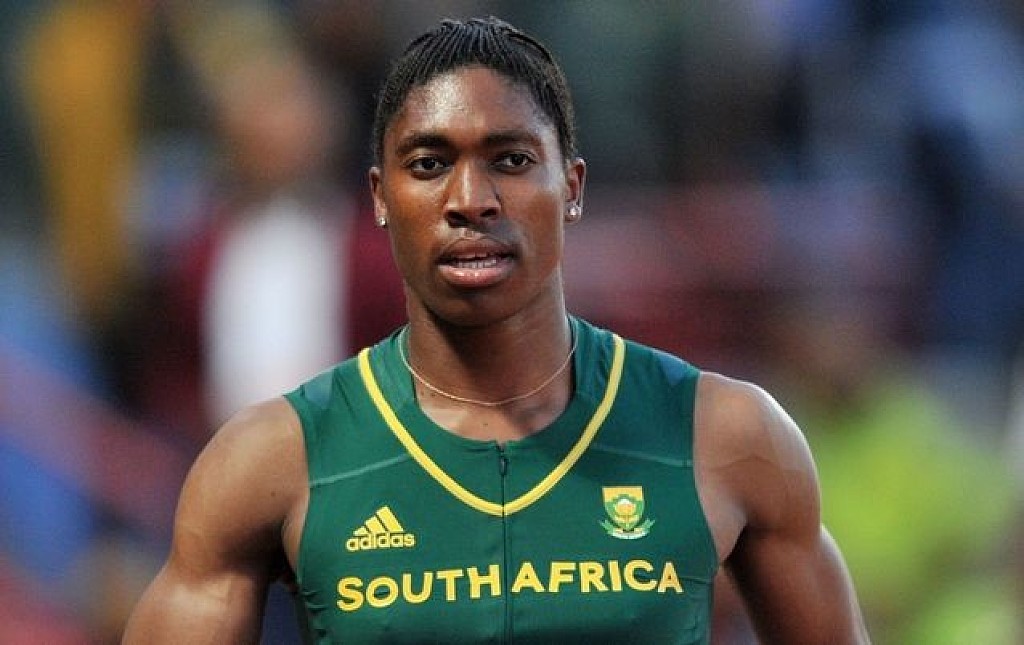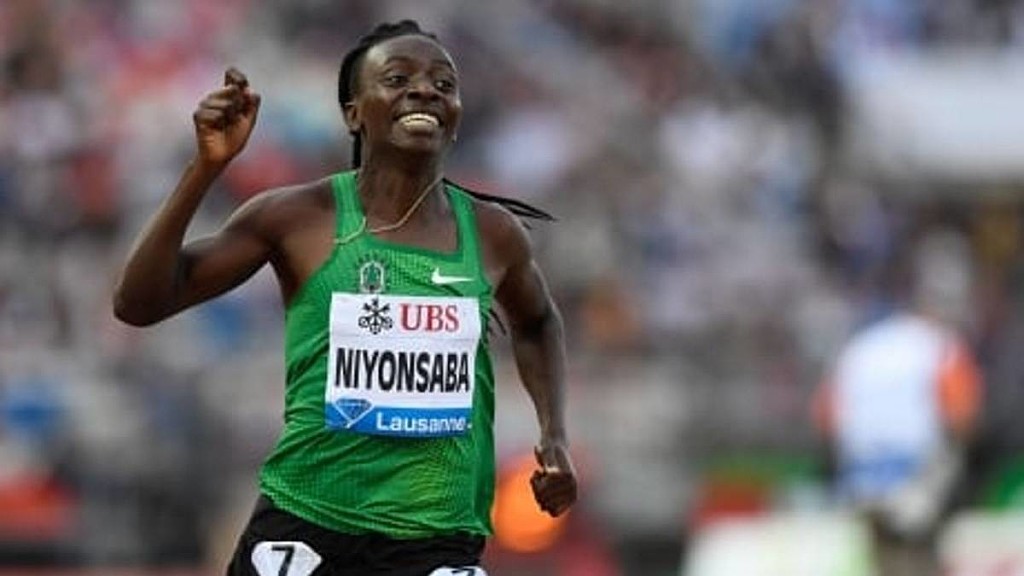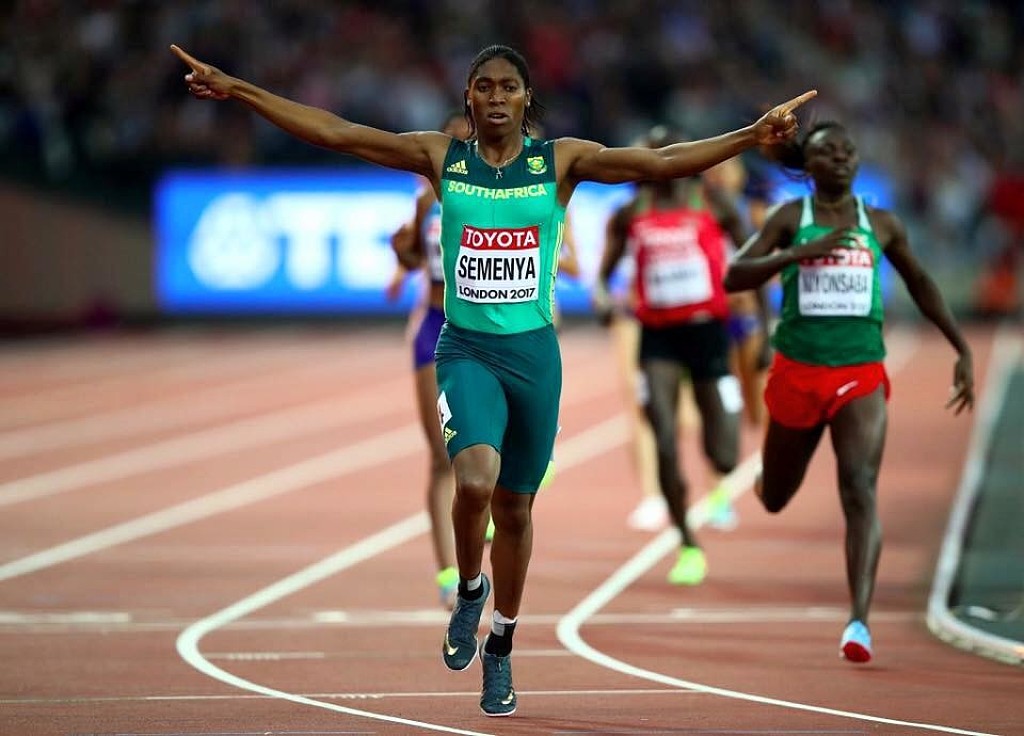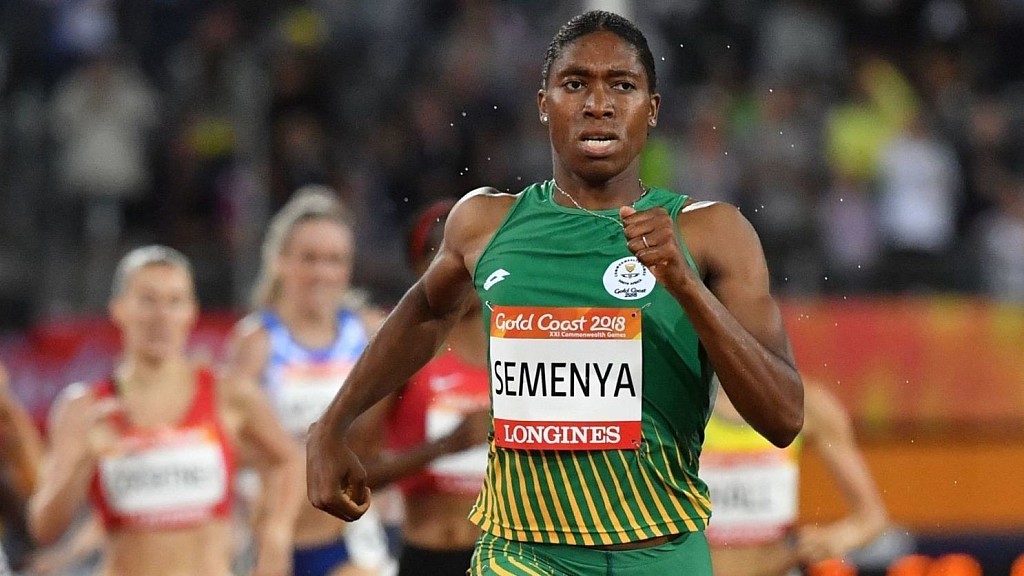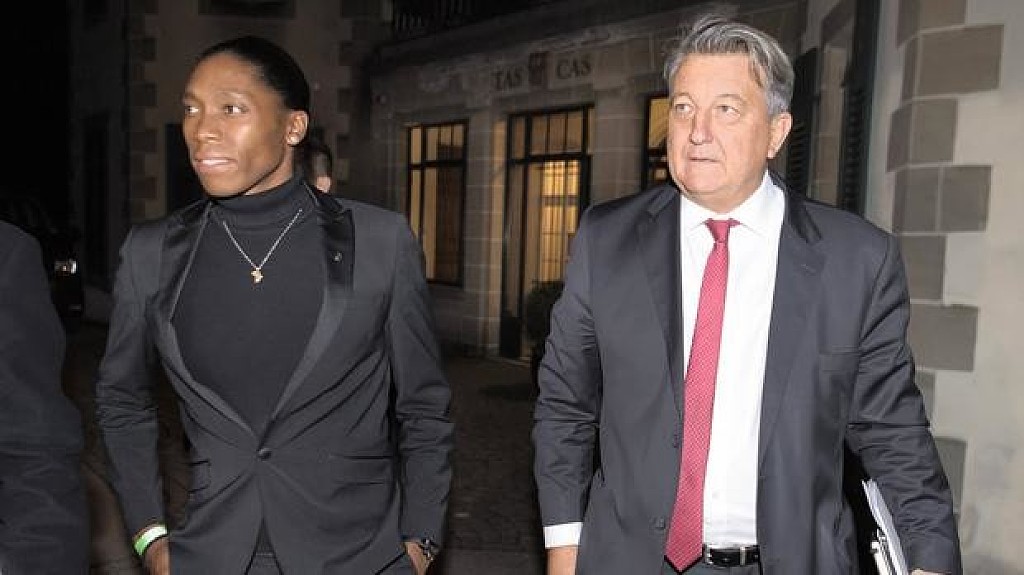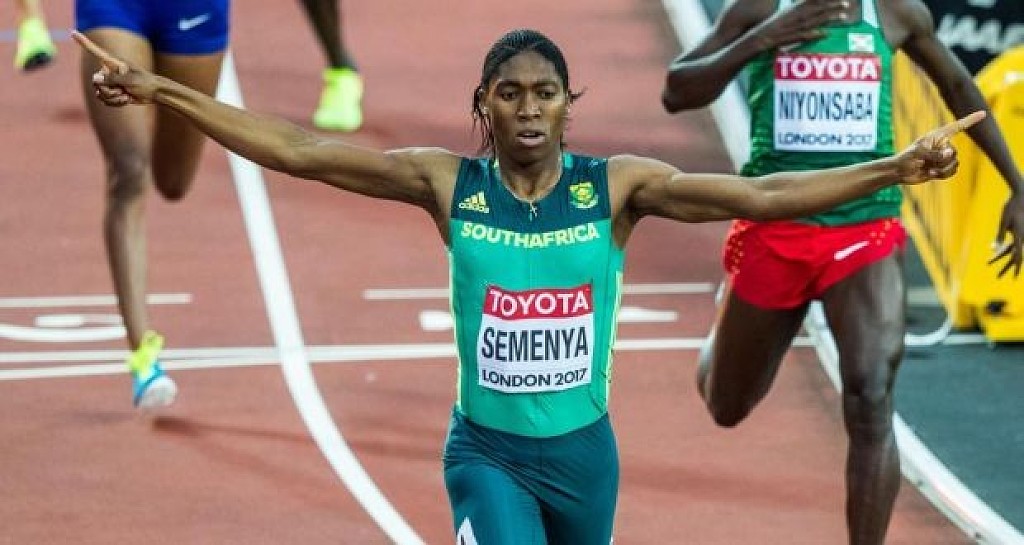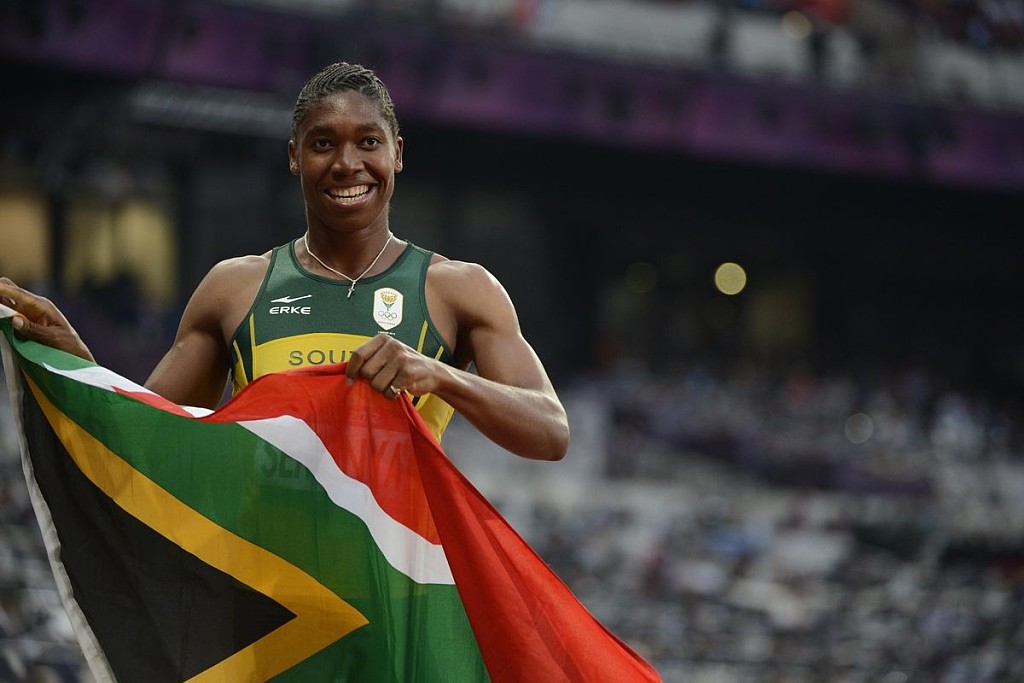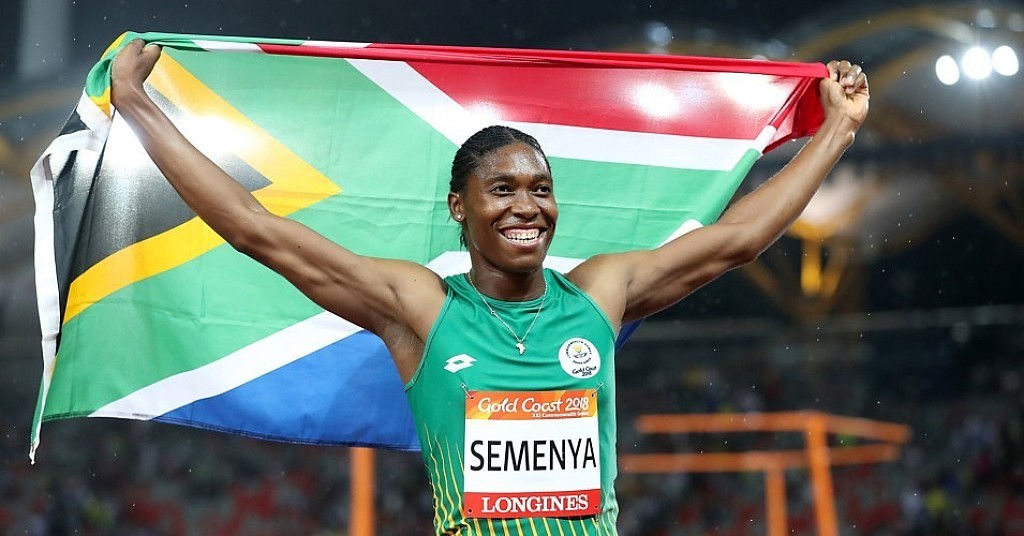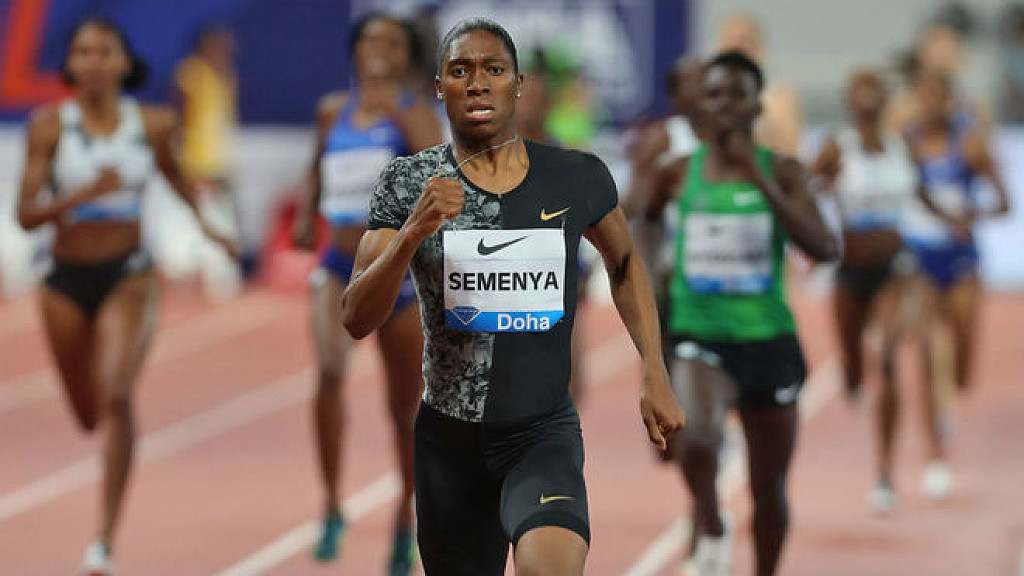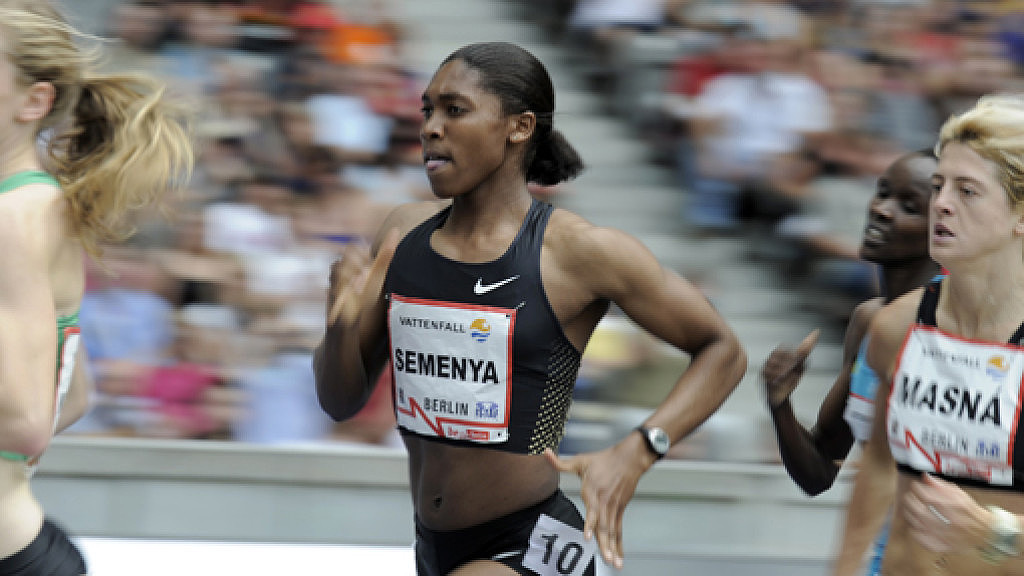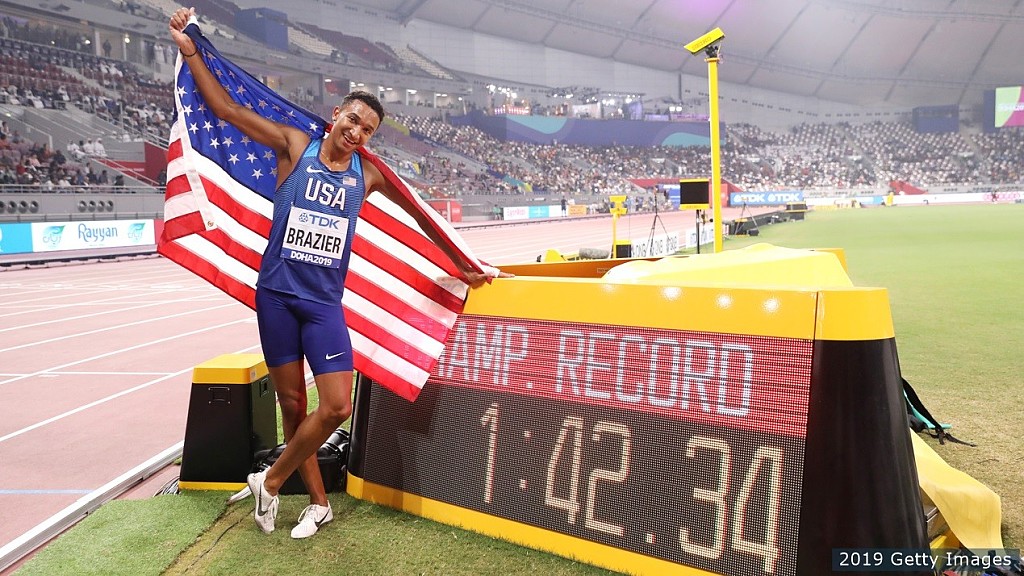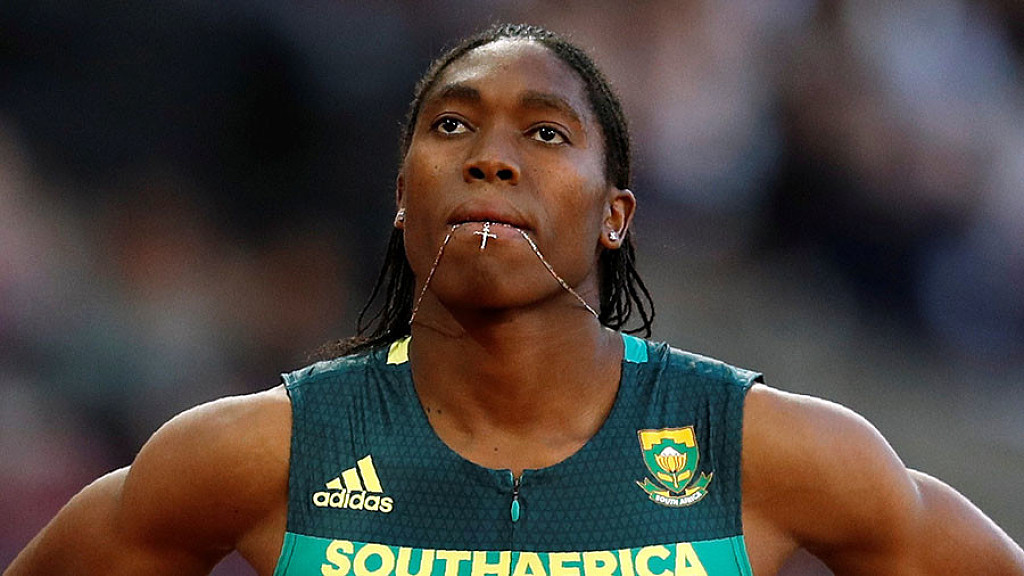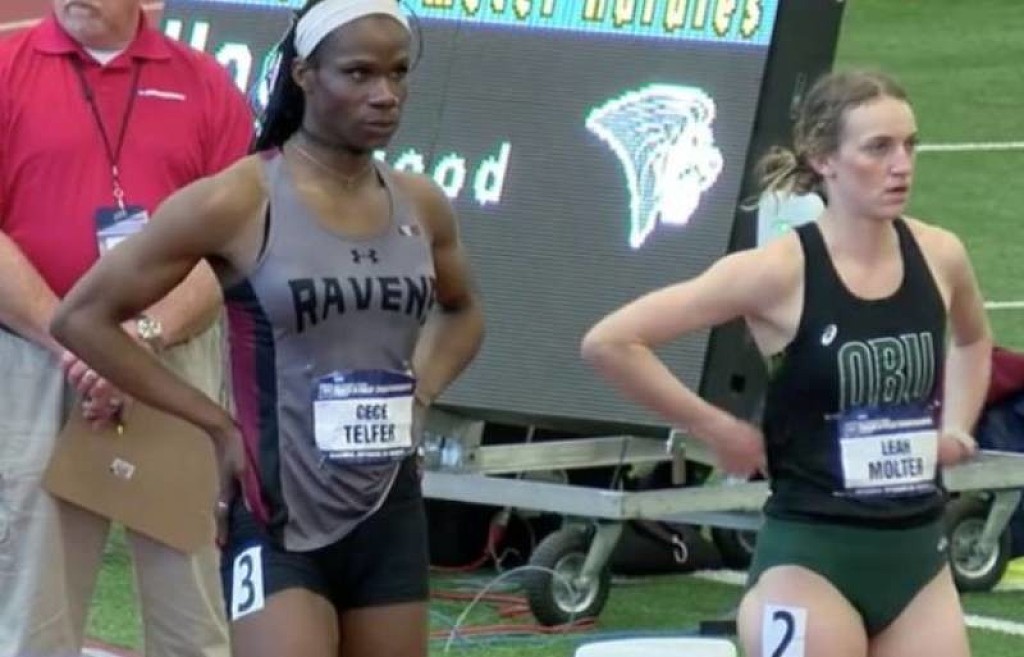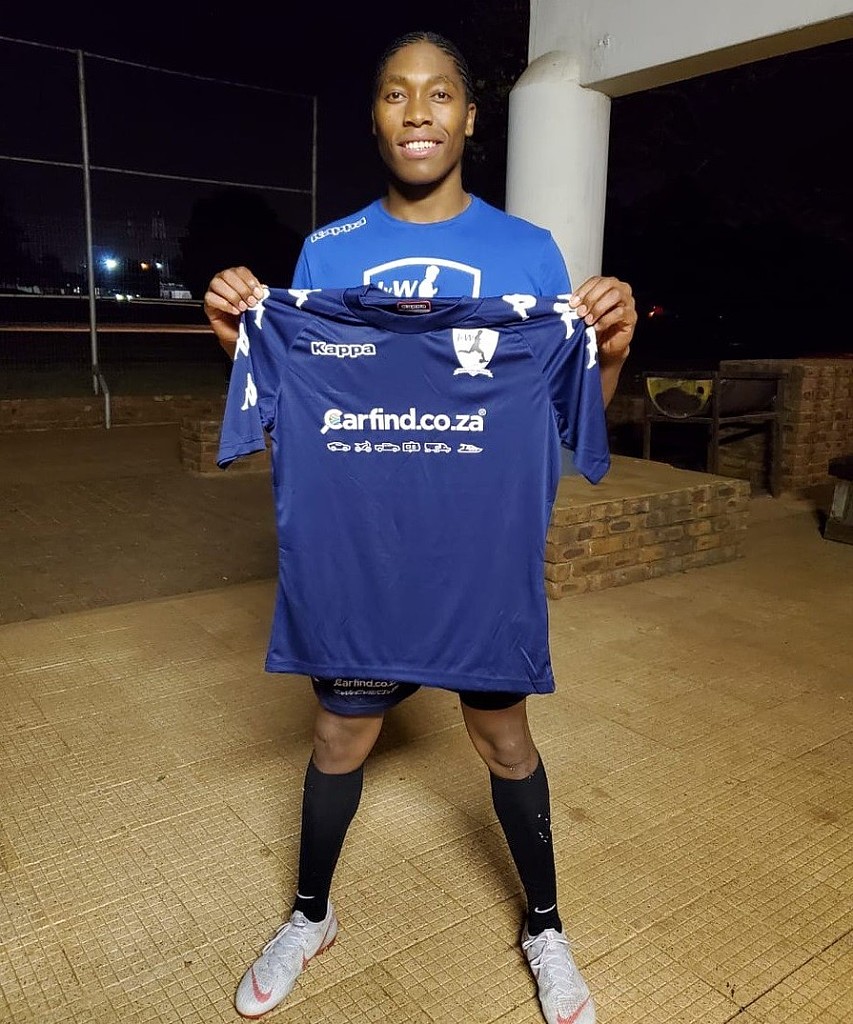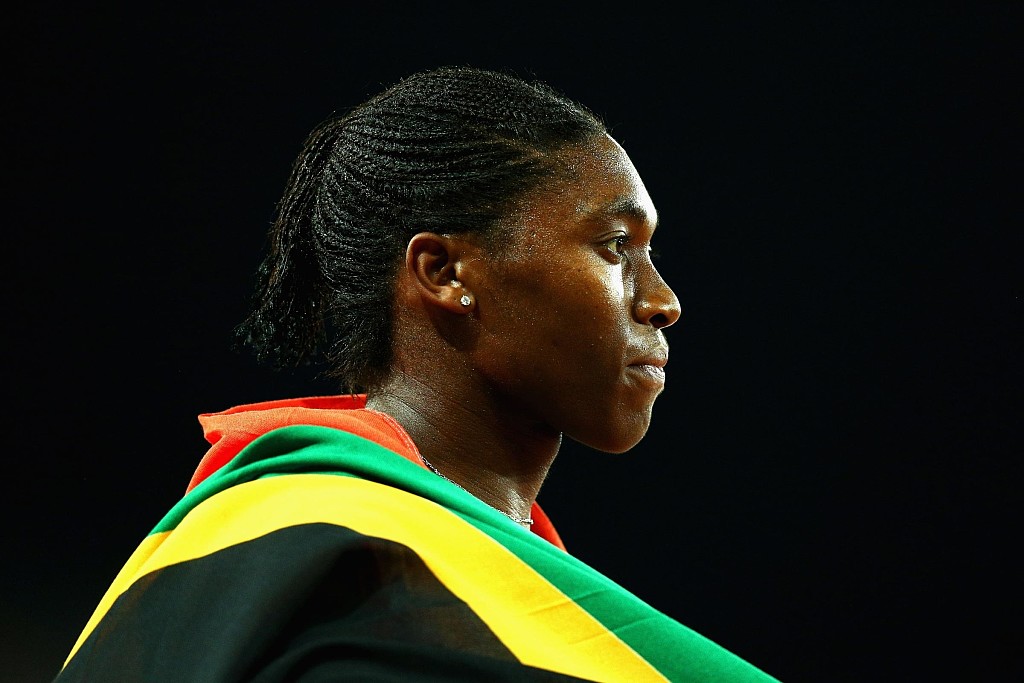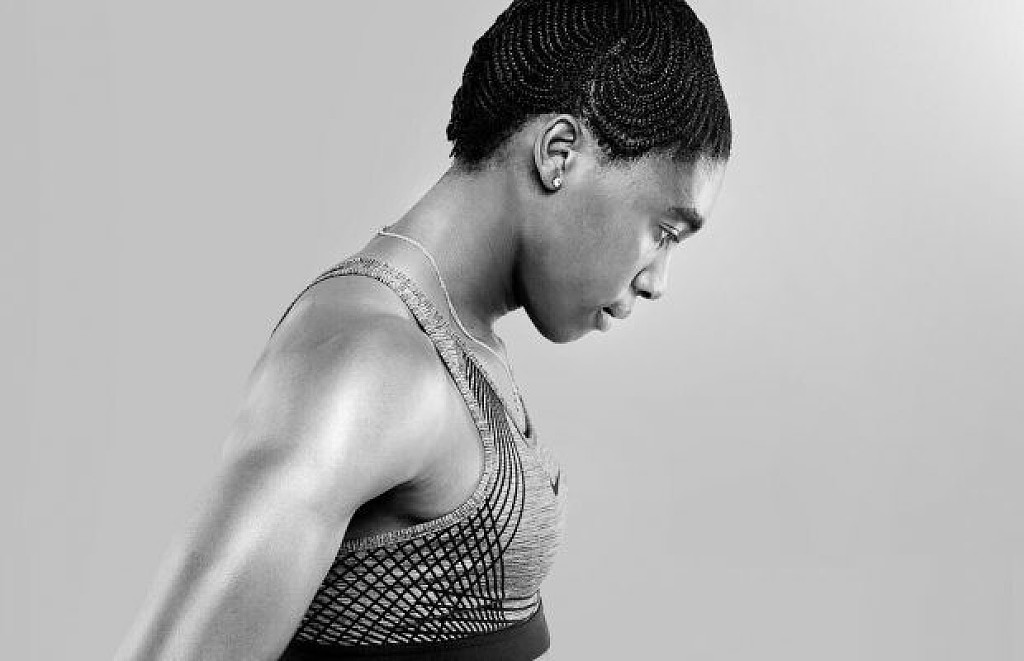Running News Daily
Running News Daily is edited by Bob Anderson. Send your news items to bob@mybestruns.com Advertising opportunities available. Train the Kenyan Way at KATA Kenya and Portugal owned and operated by Bob Anderson. Be sure to catch our movie A Long Run the movie KATA Running Camps and KATA Potato Farms - 31 now open in Kenya! https://kata.ke/
Index to Daily Posts · Sign Up For Updates · Run The World Feed
Articles tagged #Caster Semenya
Today's Running News
South Africa's Prudence Sekgodiso Closes in on 800m World Lead
Prudence Sekgodiso of South Africa is charging toward the top of the global women’s 800m leaderboard with a sizzling time of 1:57.16, recorded in the 2025 season. As of July 4, this places her second on the current world list—trailing only Ethiopia’s Duguma, who leads with 1:56.64.
Sekgodiso’s breakthrough has sent waves through the athletics world, as seen in a recent viral post by SuperSport celebrating her ascent. The 800m is one of the most fiercely contested events in track and field, and Sekgodiso’s consistency and fearless racing style are positioning her as a serious medal contender ahead of the Paris World Championships and potentially the Olympics.
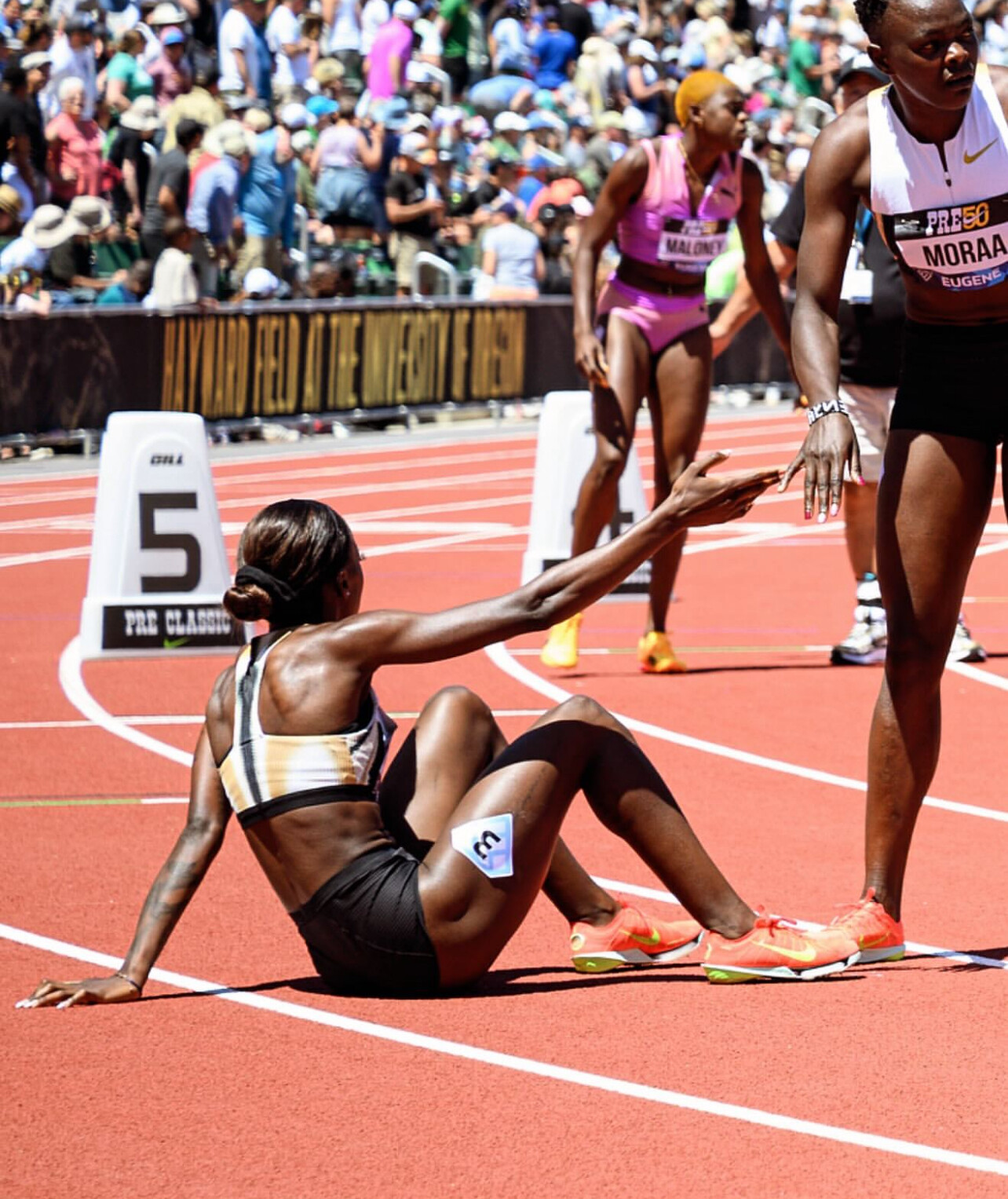
? Top 10 Women’s 800m Times in 2025 (as of July 4):
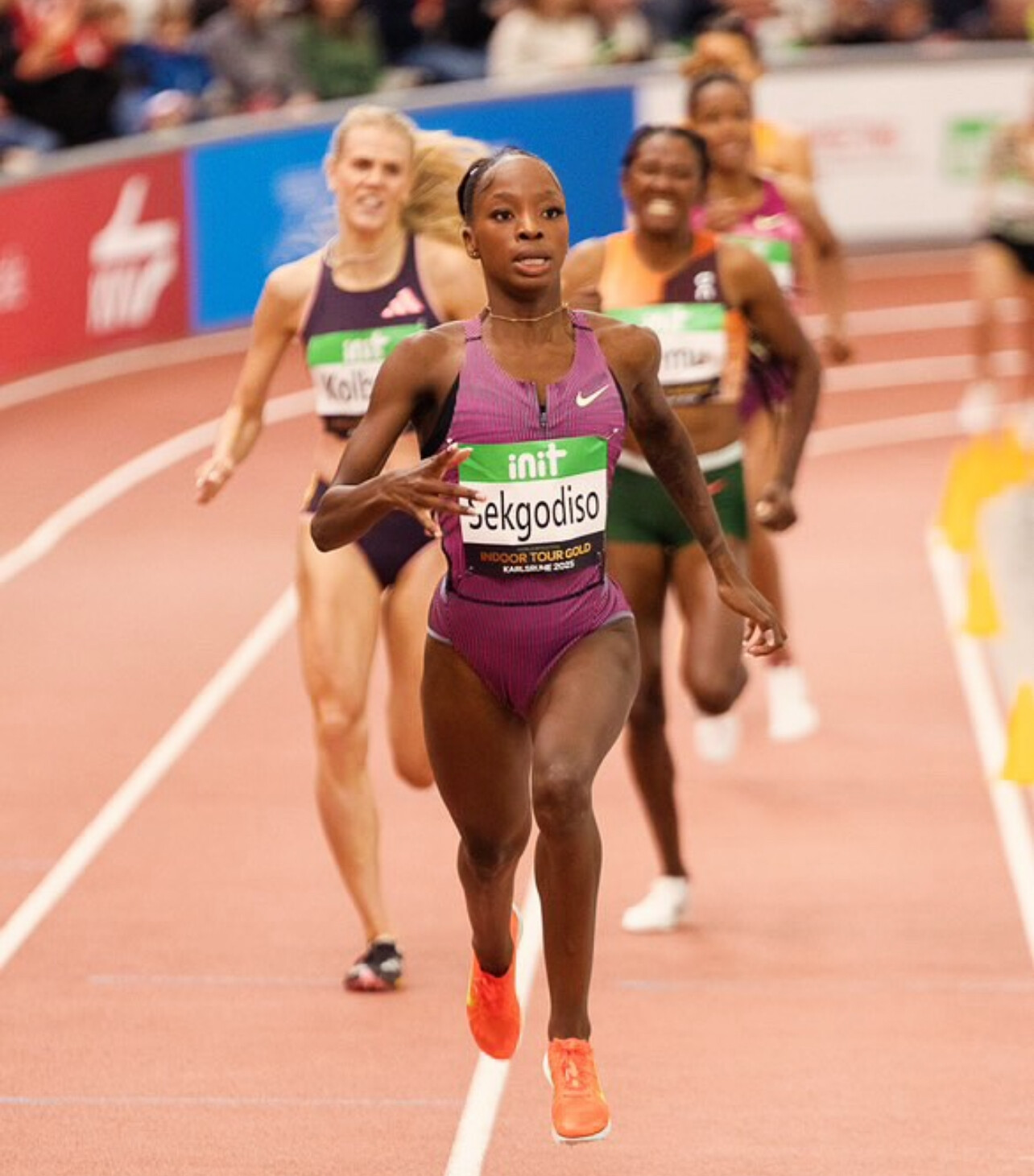
1. 1:56.64 – Duguma
2. 1:57.16 – Sekgodiso
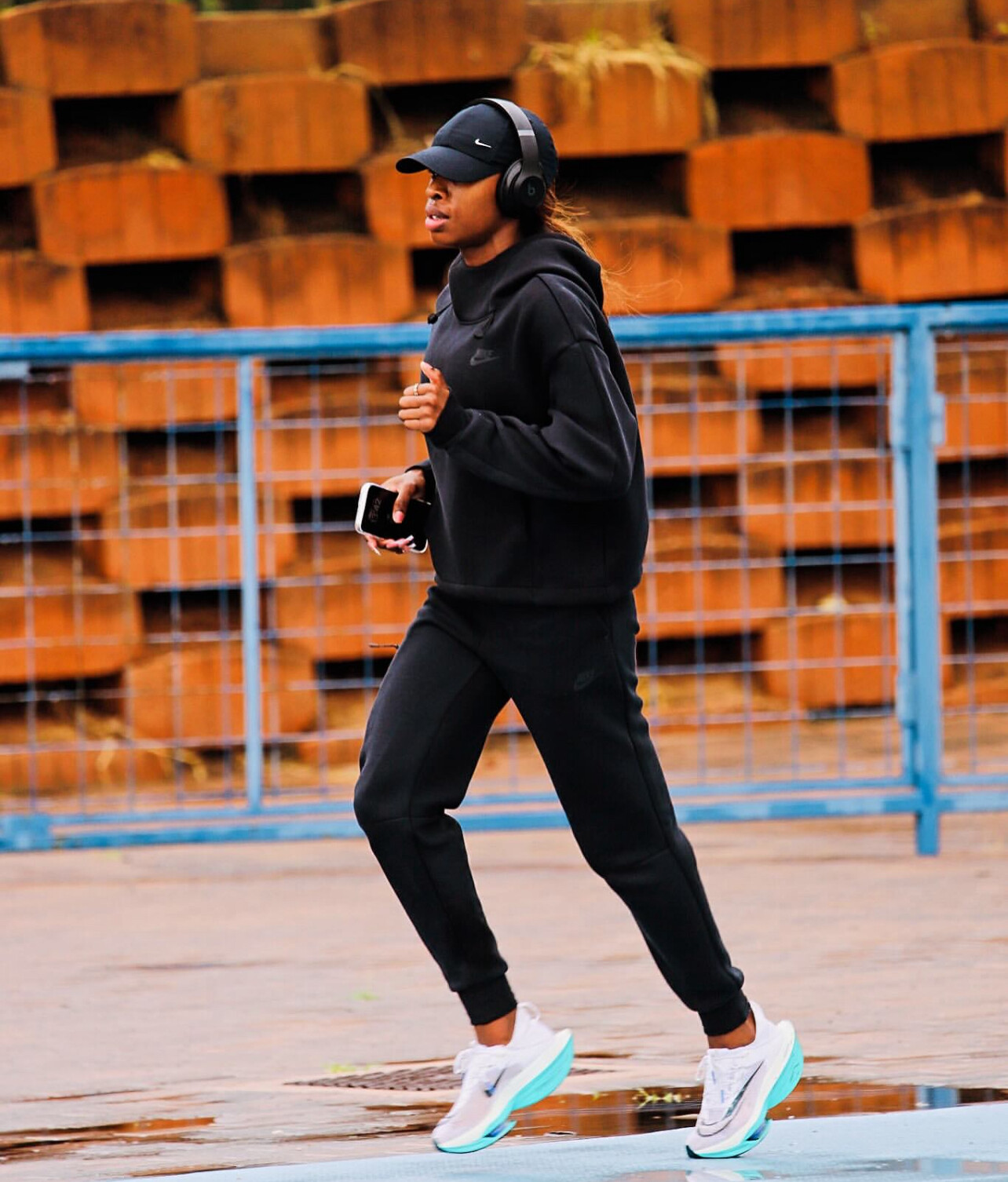
3. 1:57.25 – Werro
4. 1:57.49 – Nowe
5. 1:57.55 – Wiley
6. 1:57.66 – Bell
7. 1:57.81 – Bourgoin
8. 1:57.83 – Billings
9. 1:57.83 – Moraa
10. 1:58.00 – Maloney
How Sekgodiso Measures Up Historically:
The women’s 800m world record still stands at 1:53.28, set by Jarmila Kratochvílová of Czechoslovakia in 1983—a mark that has stood for over 40 years and is widely considered one of the most unbreakable in athletics. Only a handful of women have ever run under 1:55, including:
• Jarmila Kratochvílová (CZE) – 1:53.28 (1983)
• Nadezhda Olizarenko (URS) – 1:53.43 (1980)
• Pamela Jelimo (KEN) – 1:54.01 (2008)
• Caster Semenya (RSA) – 1:54.25 (2018)
Prudence Sekgodiso's 1:57.16 may not yet challenge these all-time performances, but it signals her potential to enter the elite sub-1:56 territory—especially with major races still ahead this season.
South Africa’s Next Middle-Distance Icon?
Following in the footsteps of Caster Semenya, Sekgodiso has reignited South Africa’s presence in the women’s 800m. At just 22 years old, she combines speed, endurance, and confidence, and her upward trajectory is undeniable.
As she continues her climb, all eyes will be on her next race. With every lap, Prudence Sekgodiso is narrowing the gap—not just between herself and the world leader, but also between today’s stars and history’s greats.
by Boris Baron
Login to leave a comment
The Untouchable Record: Jarmila Kratochvílová’s 800m Mark Still Stands 42 Years Later — But Should It?
In the fast-evolving world of athletics, records are made to be broken — except, it seems, for one. On July 26, 1983, in Munich, Czechoslovakia’s Jarmila Kratochvílová ran an astonishing 1:53.28 in the women’s 800 meters. Four decades later, that time remains the oldest unbroken individual world record in track and field history.
It has withstood super spikes, altitude training, hyper-focused coaching, and the world’s most gifted middle-distance runners. Olympic champions like Caster Semenya and Athing Mu have come close, but none have truly threatened it. Which begs the question — how did a performance like this come to be? And should it still be recognized?
A Record Born in a Different Era
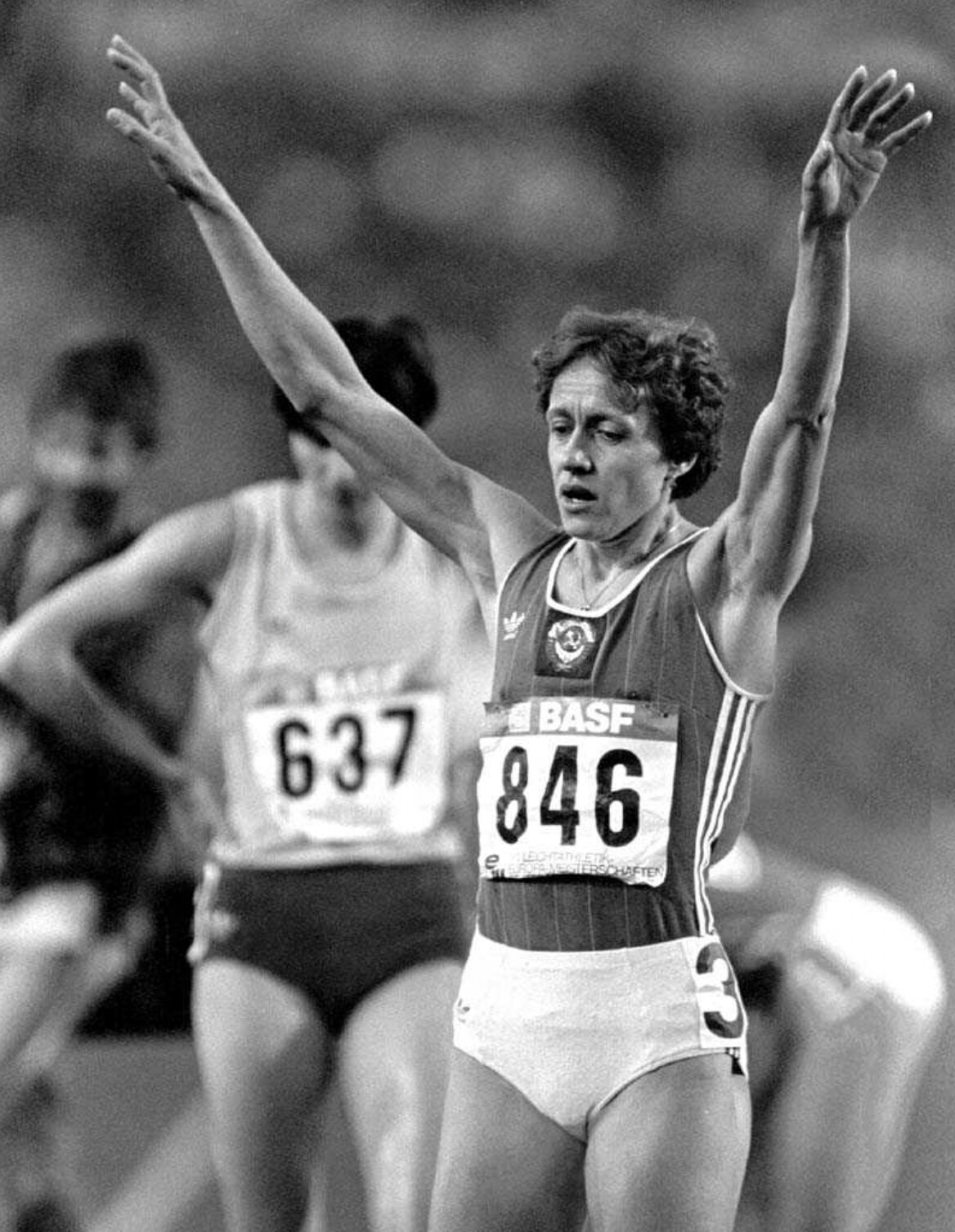
Kratochvílová’s performance came at a time when Eastern Bloc nations, including Czechoslovakia, were deep into state-sponsored sports programs. In that era, the line between elite preparation and banned enhancement was often blurred. Many athletes from that period, particularly from East Germany and the Soviet Union, have since admitted or been linked to systemic doping programs.
While there has been no formal proof that Kratochvílová used banned substances, the context raises suspicions. Her physical appearance — muscular, powerful, and more commonly compared to male counterparts than to female contemporaries — only added to the speculation. Combined with her unprecedented strength over both 400m and 800m distances, critics argue that the performance is not only unmatched, but possibly unnatural.
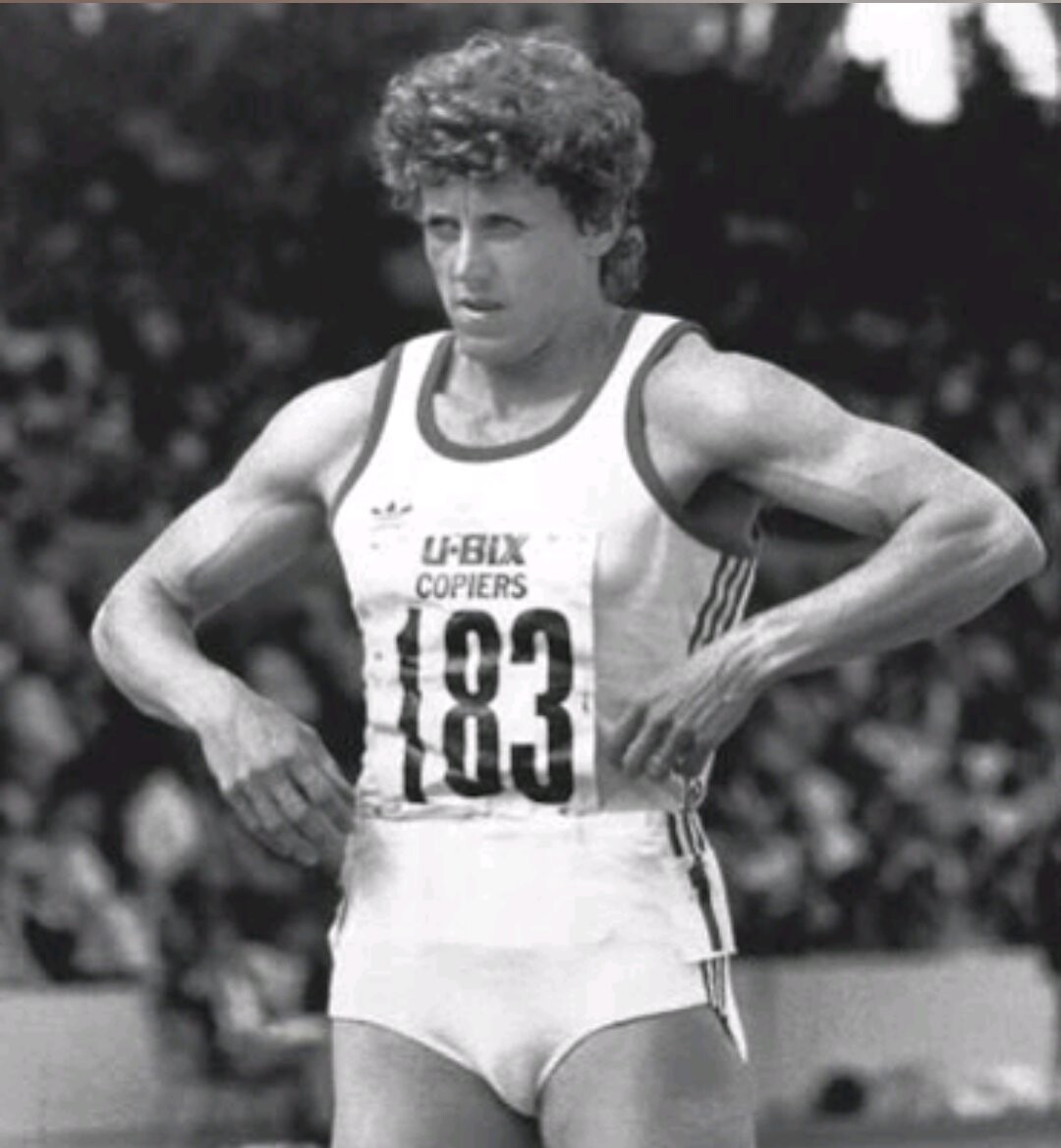
Why the Doubts Persist
• Performance Gap: Her time is still more than a second faster than most modern Olympic champions — a massive difference at the elite level.
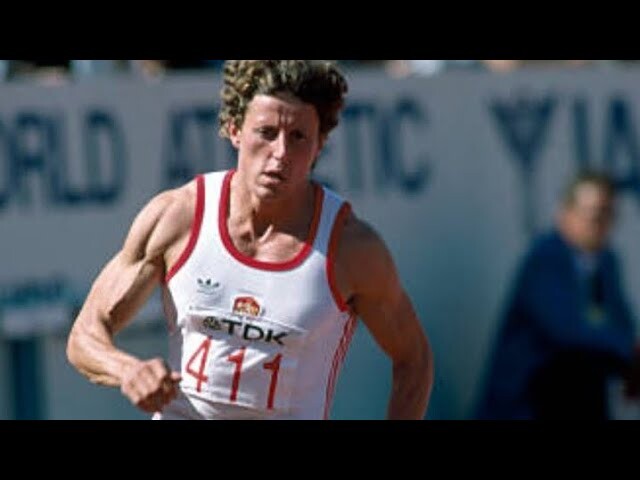
• Era of Doping: Kratochvílová competed during a time when drug testing was primitive and records were often set under questionable conditions.
• Physique & Speculation: Her highly muscular build and deep voice led some to question if she should have been eligible to compete in the women’s category — though gender testing at the time did not flag her.
• Lack of Longevity: After 1983, Kratochvílová’s presence at major championships waned. Some suggest this could point to the unsustainable nature of her peak performance.
Arguments for Letting It Stand
Supporters of the record, including Kratochvílová herself, insist that the performance was clean and the result of hard work and unconventional training. She famously avoided standard intervals and instead focused on long sessions in heavy shoes and rugged conditions. No positive test exists, and the record has survived decades of scrutiny by World Athletics.
Moreover, some point out that breaking a record doesn’t validate its legitimacy — it simply reflects the evolution of training, equipment, and talent pools. If no one has broken it yet, perhaps it’s just one of those rare, generational performances that transcends time.
Should It Be Removed?
There have been proposals — including from World Athletics — to reset all pre-2005 records due to the lack of out-of-competition drug testing during earlier decades. The suggestion faced pushback, especially from record holders who never failed a test.
But the debate continues. Some believe Kratochvílová’s 1:53.28 represents a performance that belongs to a different set of rules — and therefore shouldn’t be part of the same record book as today’s achievements. Others see it as an enduring symbol of what the human body (with or without help) once accomplished.
Final Thought
Whether you view Jarmila Kratochvílová’s 800m world record as a miraculous outlier or a relic of a flawed system, one thing is certain: it has become the ultimate benchmark. Until someone runs faster — cleanly and unquestionably — the debate will rage on. And with every passing year, this 1983 run becomes less of a record and more of a legend.
by Boris Baron
Login to leave a comment
Glenrose Xaba Shatters South African and Sanlam Cape Town Marathon Records on Debut
There was delight for South Africa as Glenrose Xaba shattered the National and Sanlam Cape Town Marathon records, on marathon debut; on Sunday, 20 October. The current South African 5 000 and 10 000 meter, as well as the 10 kilometer road record holder, clocked an impressive time of 2 hours, 22 minutes, and 22 seconds, to shave 1 minute and 40 seconds off the course record (2 hours, 24 minutes, and 2 seconds) as well as a further second off Gerda Steyn’s previous best marathon time for a South African (2 hours, 24 minutes, and 3 seconds).
The 2024 men’s champion, Abdisa Tola also broke the course record – though his impressive feat was somewhat overshadowed by the South African Air Force Gripen fly over which Xaba’s performance received.
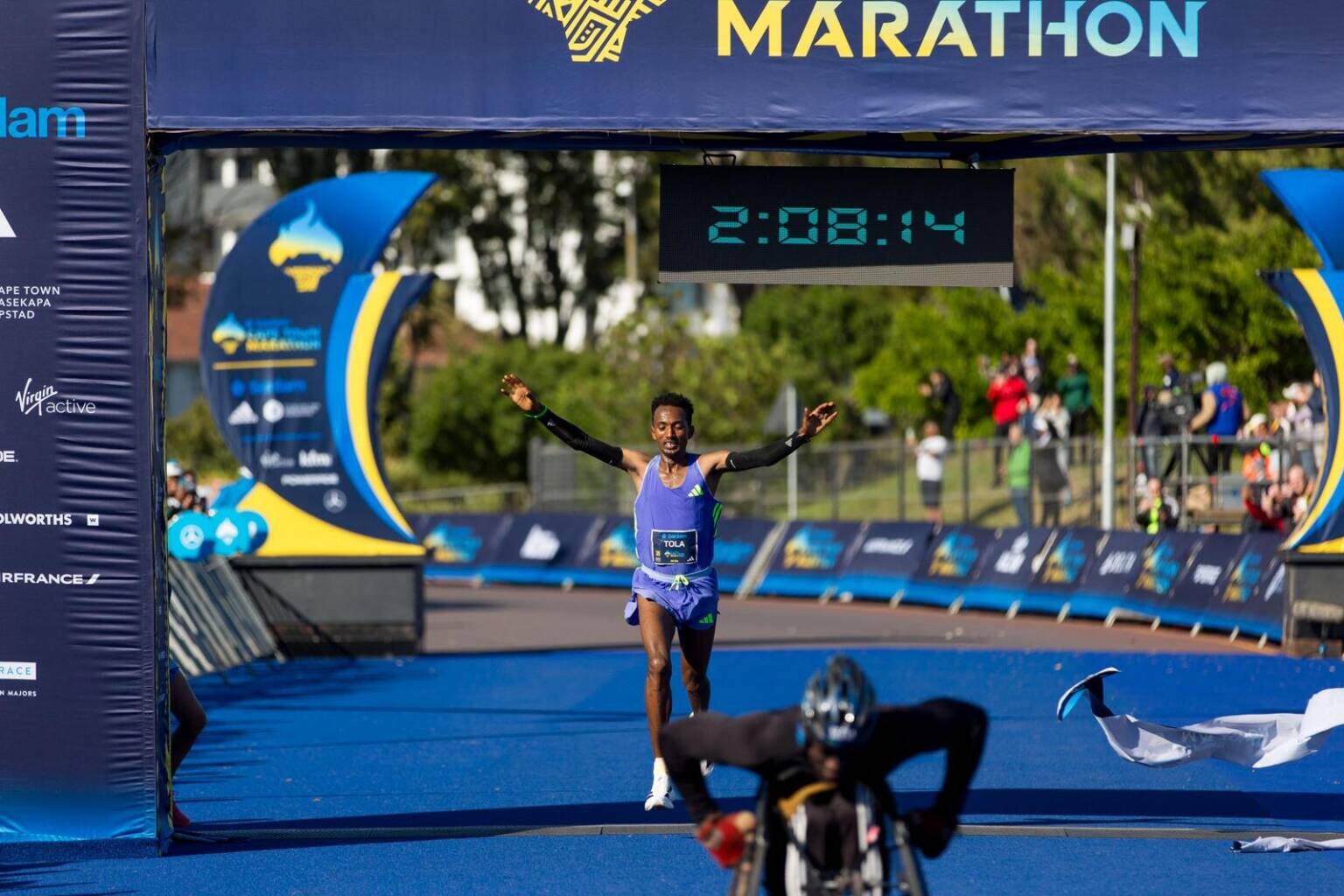
Xaba was joined on the start line by 16 800 fellow starters as well as the deepest ever field assembled for a marathon on African soil. Sadly, the Cape Doctor, as the Mother City’s prevailing summer south easterly wind is known, did not get the memo. The rest of the city pulled together though and the crowds countered the winds with raucous cheers along the route. Their applause, the support of the City of Cape Town local government, and the new record times will all aid the Sanlam Cape Town Marathon’s cause in its bid to become an Abbott World Marathon Majors event in the coming years.
The goal of Abbott World Marathon Majors status, in 2026, may still be on the horizon but Xaba’s dreams came true on the blue carpet in the shadow of the DHL Stadium. She and her fellow elite women had started fast, with the pace setters maintaining a tempo better than the record pace. Fellow South African pre-race favorite, Cian Oldknow, opted not to go with the pace makers and was out of contention for a podium place early in the piece.
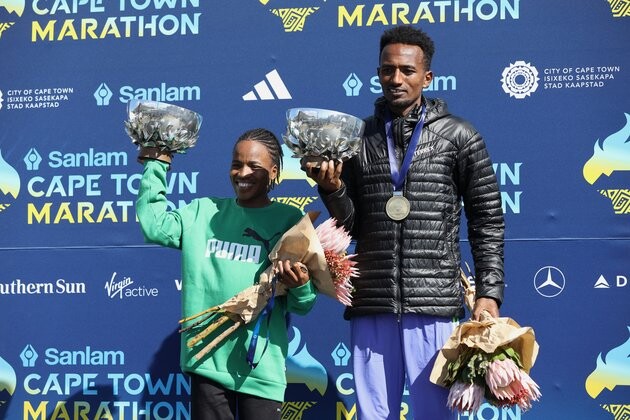
One by one the women dropped from the group, but Xaba and Mare Dibaba Hurssa, in particular, ensured the pace never eased off. It was a surprise when the defending champion, Tsige Haileslase, was distanced near the 30 kilometre mark. This was the first sure sign that records would tumble.
Coming into the final 10 kilometers only Kenyna’s Pascalia Chepkogei remained in contention with the South African and the 2015 World Marathon Champion. After stretching their legs on the downwind gallop through Sea Point the top three turned for home with 4 kilometers to go. This U-turn meant they would run the closing kilometers into a headwind, which suited the powerful style of Xaba. She distanced Chepkogei and finally Dibaba Hurssa, to enter the finishing straight alone.
Soaking up the applause, Xaba crossed the line with both the South African and Sanlam Cape Town Marathon records comfortably secured. “I didn’t want to say before the race, but my goal had been the course record,” Xaba smiled. “I didn’t want to put extra pressure on myself. Even if I had finished in 2:26 I would have been happy, because this was my first marathon. But I’m honestly shocked to have broken the course and national record. I’m humbled to have taken Gerda [Steyn]’s South African record.”
Reflecting not only upon her rival’s stellar debut but also on Ruth Chepngetich’s World Record breaking run in Chicago, the week before, Dibaba Hurssa said: “The women’s marathon is getting really, really, fast. I hope that this generation will keep setting faster times and that the generation to come are inspired by them to run even quicker.”
“I was feeling really strong and my training had made me very relaxed coming into the race,” Xaba noted. “From kilometers 5 to 25 I felt good, the first 21 kilometers were basically a tempo run for me. Then for a bit until the 33 kilometer mark I had to stay strong, focused, and brave because I dropped off the front group slightly. Once I worked my way back, I felt good again and was able to push to the finish.”
“I want to thank my manager, my coaches, and my team at Caster Semenya Training Group!” the 2024 Sanlam Cape Town Marathon champion concluded.
Xaba’s margin of victory was 15 seconds over Dibaba Hurssa. Chepkogei was third, 28 seconds off Xaba’s winning time. Viola Chepngeno and Emmah Cheruto Ndiwa, both of Kenya, completed the top five places. Oldknow finished thirteenth, 20 minutes down.
In the men’s race the battle for victory went into the final kilometers too. It had seemed from early in race that the battle for victory would be fierce, but only a fast second half ensured that the course record was broken. Having set the previous best men’s time in 2018 Stephen Mokaka was the chief pace maker for the 2024 race.
He took a strong lead group through the first 25 kilometers in 1:16:47 before the attacks splintered the field. South African favorite, Melikhaya Frans was the first to surge as they passed through Observatory. His move pulled five Ethiopians clear, these included the eventual winner as well as Gaddisa Tafa Dekeba, Mitku Tafa Dekeba, Adeladlew Mamo Gebreyohannes, and Adane Kebede Gebre.
Over the next 5 kilometers the men from the mountainous nation worked Frans out of the lead group and then whittled it down to just Mitku Tafa Dekeba, the defending champion Kebede Gebre, and Tola. “Once we passed the 33 kilometer mark I knew the three of us would be battling for victory,” Mitku Tafa Dekeba reflected. “At that point I was happy it would be an Ethiopian 1, 2, and 3.”
Mitku Tafa Dekeba was the first of the three to suffer as they rounded the final bend and began the headwind slog along Beach Road in Sea Point towards the Green Point finish line. This left Kebede Gebre and Tola in a two-way tussle for the title. Striding into the wind the younger Tola brother, whose elder brother Tamirat Tola was crowned Olympic Marathon Champion in Paris, was able to dig deep and surge clear.
With the win secured Tola was able to enjoy the finish line and celebrate his new course record. Crossing the line in 2 hours, 8 minutes and 16 seconds the 24 year old did enough to shave 15 seconds off Mokaka’s six year old benchmark. Kebede Gebre had to be content with second, 16 seconds back. Mitku Tafa Dekeba completed the all-Ethiopian podium ahead of Edward Konana Koonyo, of Kenya. Frans was the first South African home in fifth.
“I earned what I trained really hard for today,” Tola acknowledged. “A lot of hard work went into this run. It was a beautiful race and I’ll certainly be back to defend my title.”
by Seamus Allardice
Login to leave a comment
Cape Town Marathon
The Sanlam Cape Town Marathon is a City Marathon held in Cape Town, South Africa, which is sponsored by Sanlam, the City of Cape Town and Vital Health Foods. The marathon is held on a fast and flat course, starting and finishing in Green Point, near the Cape Town Stadium. Prior to existing in its current format, the Cape Town...
more...Caster Semenya determined to fight on against DSD regulations
Double Olympic 800-meter champion Caster Semenya appeared at the European Court of Human Rights (ECHR) on Wednesday to continue her challenge against World Athletics regulations that female athletes with differences in sexual development (DSDs) medically reduce their testosterone levels.
The ECHR ruled in July 2023, by a majority of four votes to three, that Semenya's original appeal to a Swiss Federal Tribunal against the regulations had not been properly heard.
But the Swiss, encouraged by World Athletics, have appealed that verdict to the ECHR Grand Chamber for a final and definitive decision. A verdict is expected in the coming months.
"This is an important day in my journey as a human being and athlete. It has been a long time coming," Semenya told reporters.
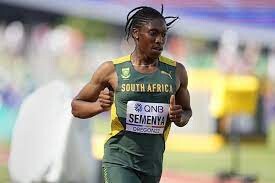
"The outcome of this case is very important. You need to pave out a way for young women so they don't face the injustice, the scrutiny of being judged, being dehumanized and being discriminated (against).
"I don't think this is about my career. It is about me being an advocate for what is right, to voice out for those who cannot fight for themselves."
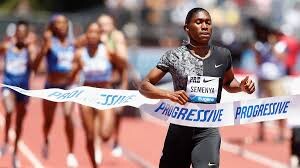
Should Semenya be successful it will open up the possibility of a fresh challenge to the regulations that effectively ended her running career, though she says her fight is now for future generations.
"I hope that the court's decision will pave the way for all athletes' human rights to be fiercely protected, for once and for all," she added.
Under the World Athletics rules, female athletes with differences in sexual development (DSDs) must lower their level of testosterone to below 2.5 nmol/L for at least six months to compete. This can be done medically or surgically.
Athletes competing in events between 400 meters and a mile must keep their levels below 2.5 nmol/L for 24 months.
World Athletics have denied there is any attempt to discriminate in their regulations.
"World Athletics has only ever been interested in protecting the female category. If we don’t, then women and young girls will not choose sport. That is, and has always been, the Federation’s sole motivation," the sports body said in a previous statement to Reuters.
"We remain of the view that the DSD regulations are a necessary, reasonable and proportionate means of protecting fair competition in the female category as the Court of Arbitration for Sport and Swiss Federal Tribunal both found, after a detailed and expert assessment of the evidence."
by Sport
Login to leave a comment
Pamela Jelimo set to receive Olympic silver after Ekaterina Guliyev's doping ban
South Africa's Caster Semenya has been elevated to gold with Kenya's Pamela Jelimo set for silver after doping reshuffle in 2012 Olympics 800m.
Former Olympic 800 champion, Pamela Jelimo, is poised to be awarded the 2012 London Olympic 800m silver, marking a significant shift in the event's final standings due to doping violations.
This development comes after the Russian Athletics Federation (RusAF) announced a four-year ban for Ekaterina Poistogova-Guliyev for historic doping offences, leading to a reshuffle of the medal positions from the London games.
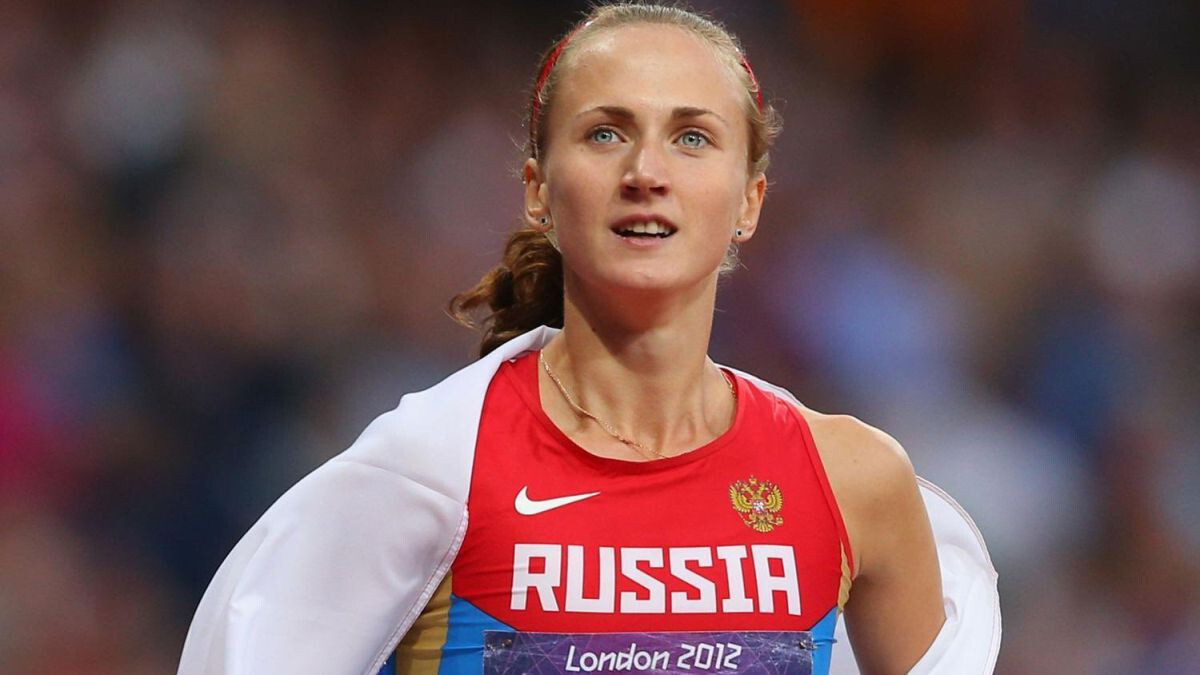
The ban, which results from violations between July 2012 and October 2014, voids all of Poistogova-Guliyev's results from that period, according to a RusAF statement.
The athlete, who initially competed for Russia before switching allegiance to Turkey, was implicated in the use or attempted use of banned substances, with evidence drawn from the Moscow anti-doping laboratory.
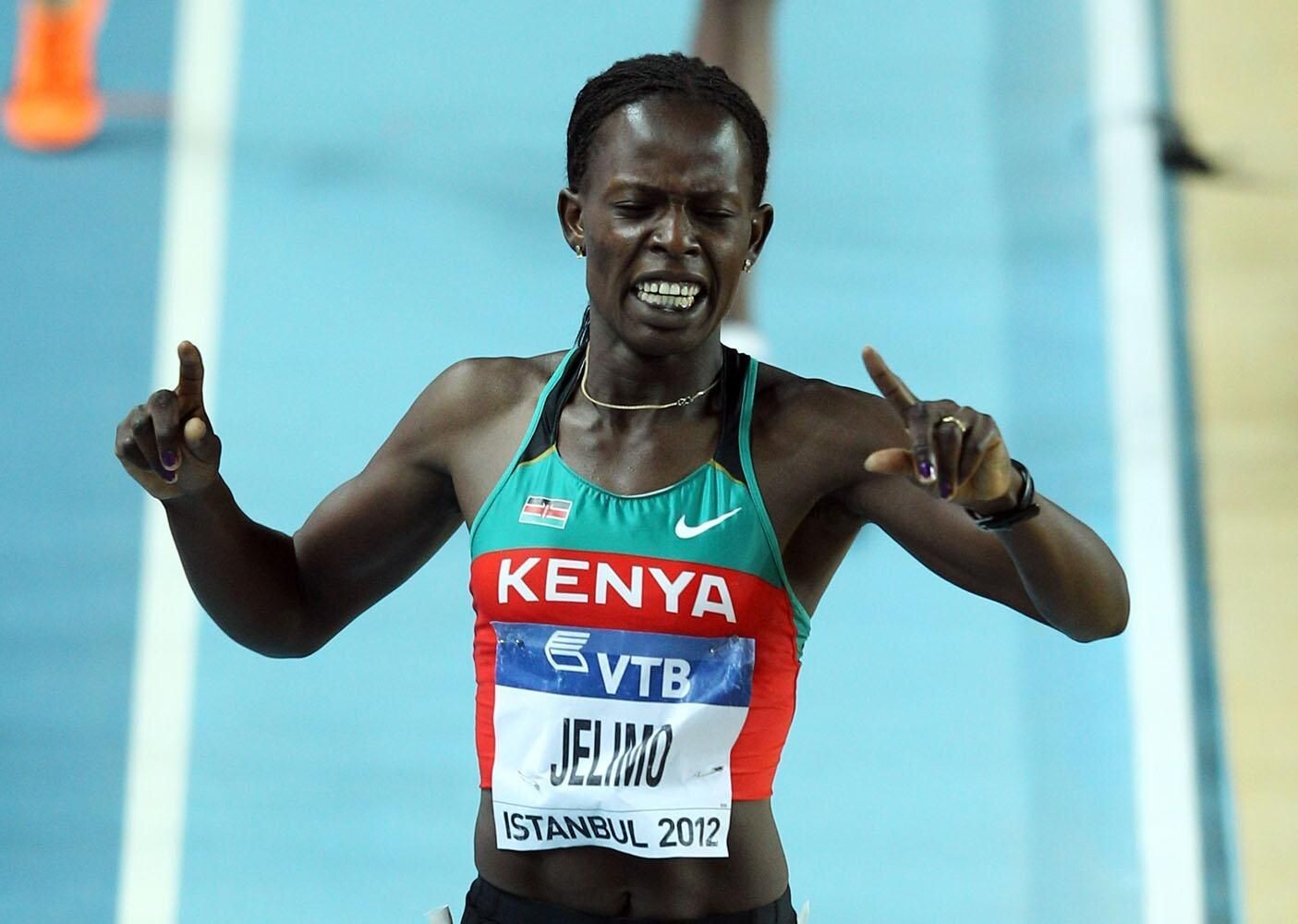
The case has had far-reaching implications, not only for Poistogova-Guliyev but also for other athletes in the 2012 Olympic 800m event.
Pamela Jelimo, the London Olympic bronze medallist, will be elevated to silver, and American Alysia Montano, who finished fifth, is set to inherit the bronze, pending official confirmation.
This adjustment stems from a broader investigation into systematic doping within Russian athletics, spearheaded by the World Anti-Doping Agency (WADA).
WADA had initially recommended a lifetime ban for Poistogova-Guliyev in 2015, alongside the stripping of her London medal, as part of its findings on state-sponsored doping.
Although the Court of Arbitration for Sport (CAS) imposed a two-year ban on Poistogova-Guliyev in 2017, her results were initially voided only back to October 2015, allowing her to retain her Olympic medal temporarily.
The recent decision by RusAF to extend the voiding of her results to July 2012 effectively strips her of the medal, subject to final approval by the International Olympic Committee (IOC).
The women's middle distance events at the London Olympics have been notably affected by doping, with three runners in the 800m final, including Poistogova-Guliyev, Mariya Savinova, and Elena Arzhakova, having their results voided due to doping offences.
Jelimo's elevation to the silver medal position comes after a long wait; it took 10 years for her to be awarded the bronze medal for the same event, following the disqualification of Maria Savinova for doping violations.
The reallocation of medals in cases of doping violations is a complex and often slow process, involving multiple organisations including WADA, CAS, RusAF, and the IOC.
The final decision on the redistribution of medals from the 2012 Olympics will be closely watched by the athletics community and represents a critical step in the ongoing fight against doping in sport.
Poistogova-Guliyev's ban, which lasts until 2026, reflects a deduction for the time served under her previous CAS-imposed sanction.
In addition to her case, RusAF has announced a two-year and six-month ban for 3,000m steeplechaser Nikolay Chavkin for similar doping offenses.
by Festus Chuma
Login to leave a comment
Mary Moraa confident of breaking Caster Semenya's 600m world record
Mary Moraa has revealed that breaking Caster Semenya's 600m world record is among her many plans this season.
In her build-up to breaking the 800m world record, reigning world 800m champion Mary Moraa will be keen to attack the 600m world record.
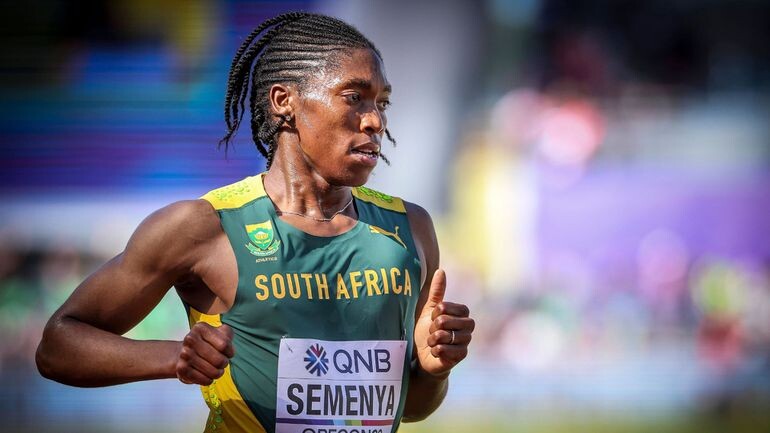
Moraa explained that her body is responding well to training and she is clearly on fire owing to her dominant exploits during the African Games national trials.
Kisii Express won the 400m final of the race to cut a direct ticket to the continental showpiece scheduled for Accra, Ghana.
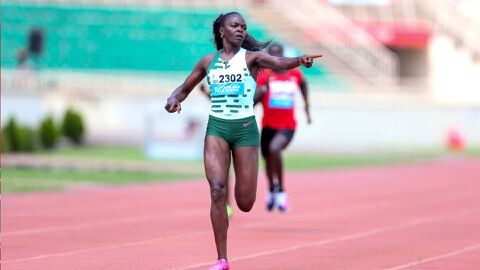
“I will go for the 600m where I will attack the world record…I don’t know where I’ll compete exactly but I’m going for the record,” Moraa said.
The 600m world record currently stands at 1:21.77 and was set by South Africa’s Caster Semenya back in 2017 in Berlin, Germany.
Meanwhile, after the African Games, Moraa will return to the country to compete in the Kip Keino Classic where she also intends to shine.
She also noted that she is impressed with her form this season and cannot wait to see how the campaign will turn out for her.
“I’m happy to have come here and run well and my body is coming up slowly and I’m excited to see how the season turns out,” Moraa said.
The 23-year-old had an amazing 2023 season, winning her first world title and becoming only the third Kenyan woman to claim the 800m title at the World Championships.
This she achieved after clocking a Personal Best time of 1:56.03 to win the race ahead of Great Britain’s Keely Hodgkinson and Athing Mu. She now looks forward to enjoying an amazing 2024 season, with the Olympic Games in Paris, France being in the cards.
by Abigael Wuafula
Login to leave a comment
Caster Semenya: Double Olympic champion not ashamed of being different
Two-time Olympic champion Caster Semenya says she is "not going to be ashamed" of being "different", and will "fight for what is right" amid her ongoing dispute with athletics authorities.
Semenya, 32, was born with differences in sexual development (DSD) and cannot compete in female track events without taking testosterone-reducing drugs.
The South African wants to hold World Athletics to account for what she says is discrimination against athletes with hyperandrogenism and recently said she is turning her attention to "winning battles against the authorities" rather than collecting medals, with competing at the Paris 2024 Olympics no longer a goal.
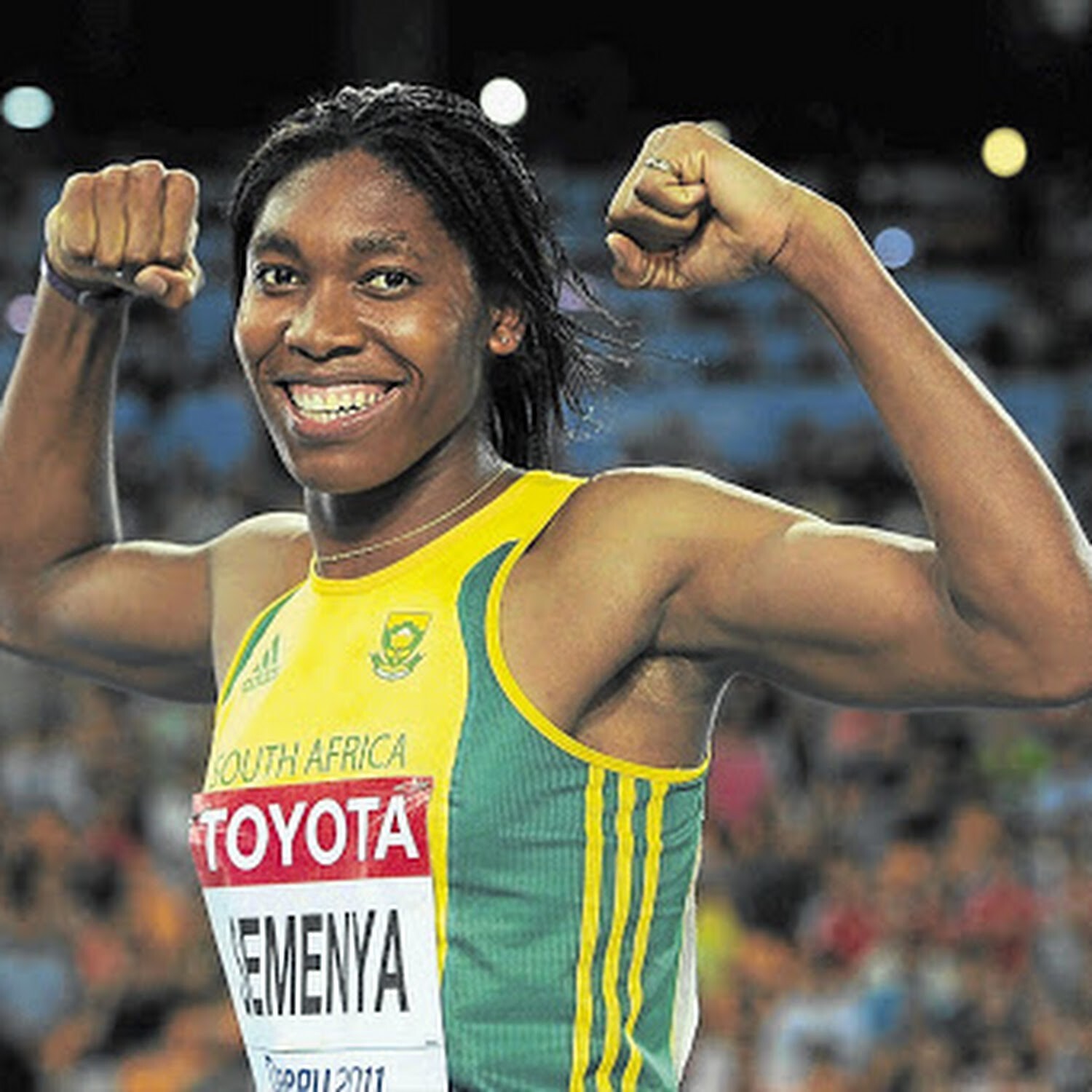
In a wide-ranging interview with BBC Breakfast's Sally Nugent, Semenya says:
She felt she was "different" from the age of five but "embraces" her differences
She will not conform "to be accepted"
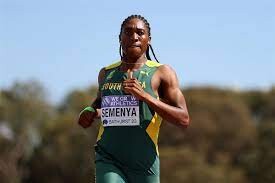
She wants to empower women to "have a voice"
"Leaders" in sport are "turning women against women"
'I will embrace my differences'
Hyperandrogenism is a medical condition characterised by higher-than-usual levels of testosterone, a hormone that increases muscle mass and strength.
Under regulations introduced in 2018, athletes with DSD were only allowed to compete in female track events between 400m and the mile if they reduced their testosterone levels.
In March, World Athletics ruled that DSD athletes must now have hormone-suppressing treatment for six months before being eligible to compete in all-female events.
"For me, I believe if you are a woman, you are a woman," said Semenya, who won Olympic 800m gold in 2012 and 2016 and is a three-time world champion over the same distance.
"No matter the differences you have. I have realised I want to live my life and fight for what I think and I believe in myself.
"I know I am a woman and anything that comes along with it just accept it."
Semenya ran in the 5,000m at last year's World Championships in Oregon but failed to qualify for the final.
In July, the European Court of Human Rights (ECHR) ruled in her favour in a case related to testosterone levels in female athletes.
"At the end of the day, I know I am different. I don't care about the medical terms or what they tell me. Being born without a uterus or internal testicles. Those don't make me less of a woman," added Semenya.
"Those are the differences I was born with and I will embrace them. I am not going to be ashamed because I am different. I am different and special and I feel great about it.
"It comes with why we fight for women's sport. The importance of women's sport is not being taken seriously and we need to take charge of our own bodies. Decide what is right for us. Not another gender deciding what we should look like.
"If we are woman enough or not, it is up to us. We know and believe in what is right, then why must we stop."
The case at the ECHR was not against sporting bodies or DSD rules - but specifically against the government of Switzerland for not protecting Semenya's rights and dates back to a Swiss Supreme Court ruling three years ago.
The ECHR found the Swiss government did not protect Semenya from being discriminated against when its Supreme Court refused to overturn a decision by the Court of Arbitration for Sport (Cas), which upheld the World Athletics rules.
The case has now been referred to the Grand Chamber of the ECHR for a final ruling following a referral request from the Swiss government.
'I am not going to be somebody I am not'
Semenya has argued that taking testosterone-reducing medication could endanger her health and that the ruling denied her and other athletes with DSD the right to rely on their natural abilities.
She told BBC Breakfast that she knew she was "different" from the age of five but, in her autobiography, The Race To Be Myself revealed she found out she "did not have a uterus or fallopian tubes" at the same time as "the rest of the world" after a gender test in 2009.
She says she has "nothing to hide", adding: "I am a woman and have a vagina just like any other woman.
"I am living a different life and I will continue living that, as that is what makes me feel good. I am not going to be somebody I am not, as I have to fit in to be accepted."
Last week, Semenya said she had achieved all she ever wanted on the track, and now wants to "pave the way and make sure each and every young girl is treated well".
"My future is to fight injustice, fight for inclusivity and diversity," she said.
"For me, I'm not going to allow leaders who come for the selfish means into our business to destroy it. I'm about empowering women and making sure they have a voice.
"At the moment, I don't see a lot of women voicing out if they have problems or something to say. Each and every woman out there should fight for their own. I'll always fight for what is right, I know what is right, and I know how things are supposed to be done. Let's wake up as women and fight for what is right."
She added: "[Sporting leaders] are turning women against women. If you say you're acting in the best interests of athletes, then do that. It's not up to you to decide what gender should look like, what sex should look like. Govern, make money, promote sport. Very clear message and very loud - do the job, promote the sport and let us sports people entertain."
Last week, World Athletics said in a statement to Reuters: "World Athletics has only ever been interested in protecting the female category. If we don't, then women and young girls will not choose sport. That is, and has always been, the federation's sole motivation."
A spokesperson told the BBC: "World Athletics has 15 years of data, observations, and information directly from DSD athletes in our own sport that show high testosterone levels do provide an unfair advantage in the female category - and that our guidelines on testosterone thresholds are necessary, reasonable, and proportionate in our aim to protect the integrity of the female category."
by BBC News
Login to leave a comment
Caster Semenya says World Athletics president Seb Coe damaged her life
Caster Semenya has claimed that World Athletics damaged her personally and professionally through the hormone suppression medication that she had to take for six years.
In her new book, The Race to Be Myself, two-time Olympic champion Caster Semenya has revealed how World Athletics seemingly destroyed her life and she singled out President Seb Coe.
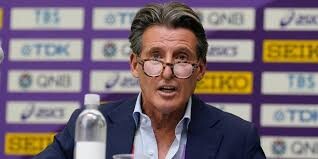
In her book, which was published on Tuesday, October 31, the South African claimed that they (World Athletics) damaged her personally and professionally through the hormone suppression medication she was required to take for six years. As reported by The Telegraph, Semenya explained how Coe had something against her.
“With me and Sebastian, it’s personal. He has something against me – that’s how I feel, and no one can change my mind,” Semenya writes.
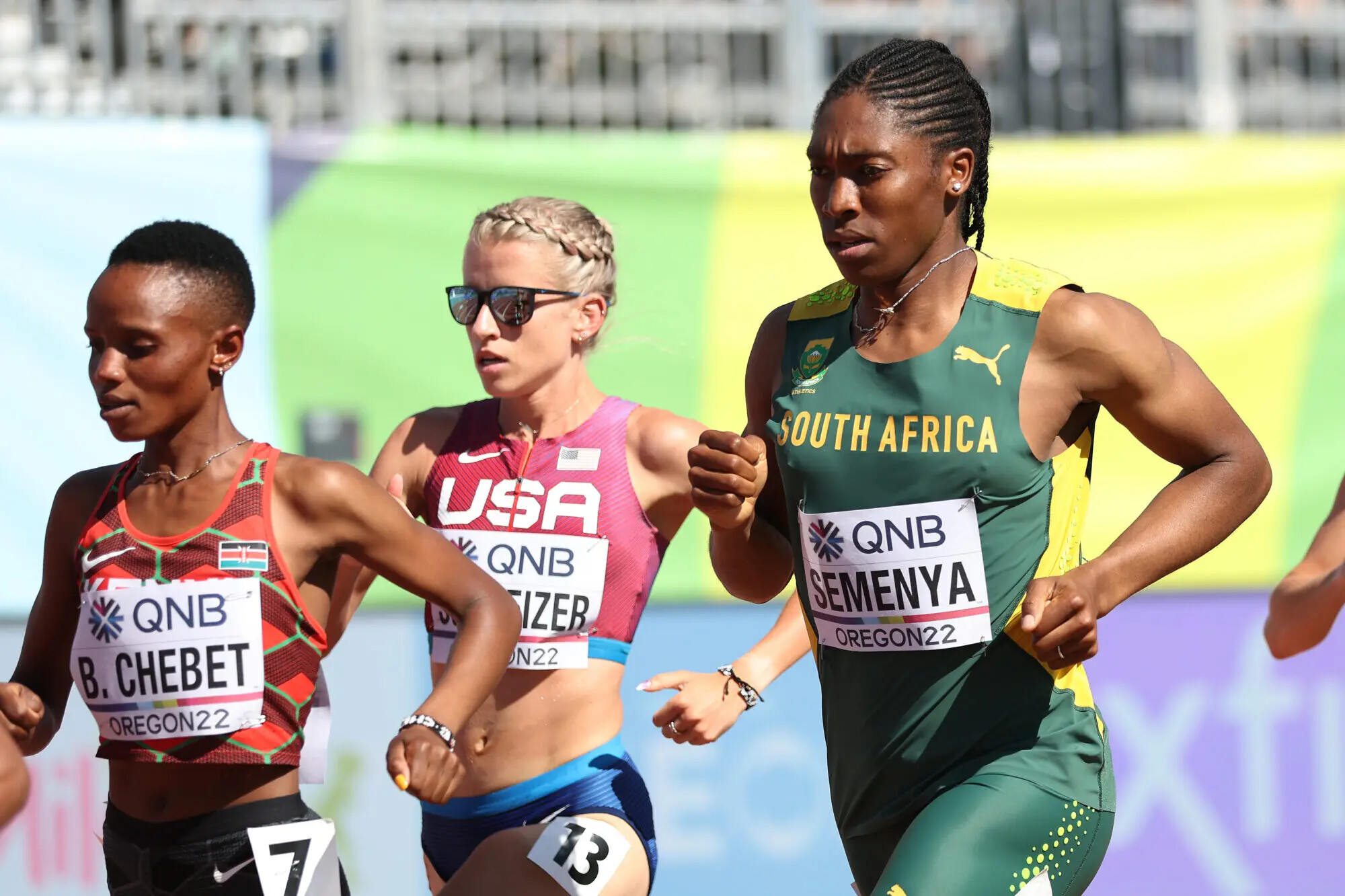
She started her professional career at 18 and her hyperandrogenism, which comes under the technical label of DSD (differences in sexual development), caused a dilemma in the world of athletics. In her book, she sets the record straight that she was born with a vagina but no womb and internal testes.
After her victory at the World Championships in 2009, World Athletics noted that she could only be allowed to compete if she suppressed her testosterone levels below 10 nmol/L.
However, the restriction was lifted in 2016 after another DSD athlete – Indian sprinter Dutee Chand – brought a legal challenge against the rule.
“The man (Coe) couldn’t help himself. Coe has always struck me as a small man, unsure of himself. He couldn’t stand being questioned about the regulations or me in particular.
He could barely say my name in interviews … My thoughts are that he should concentrate on doing the job he said he would do.
Clean up the sport … Everybody knows there is a systemic doping issue in athletics, and the IAAF has made a mess of dealing with it,” Semenya narrates.
Follow the Pulse Sports Kenya WhatsApp Channel for more news.
Meanwhile, Semenya noted that she will never again take hormone suppressants – to which she attributes side effects such as weight gain, cramps, and the weakening of bones – in order to race.
She disclosed that she did not know about her DSD condition until it was made public in 2009, soon after that first World Championship gold in Berlin.
“I found out, along with the rest of the world, that I did not have a uterus or fallopian tubes. I would say I was being treated like an animal, but I grew up tending to my family’s livestock, and we treated them with more respect than that,” she explained.
by Abigael Wuafula
Login to leave a comment
Caster Semenya wins appeal at European Court of Human Rights
South African athlete was discriminated against by rules that forced her to lower her testosterone levels, according to a judgement from the ECHR
The European Court of Human Rights has ruled in favour of Caster Semenya in her appeal against World Athletics’ rules relating to testosterone levels.
Semenya has been unable to compete at her best distance of 800m since the introduction of limits by the global governing body on testosterone levels which would have forced her to use medication. Legal challenges in the past to the Court of Arbitration for Sport and the Swiss Federal Supreme Court were rejected, but the ECHR says her human rights have been violated.
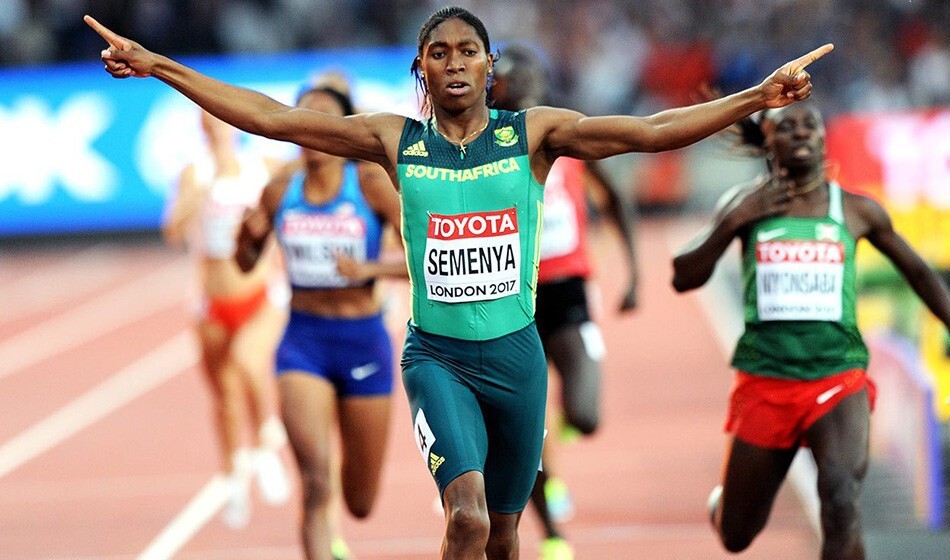
The 32-year-old was born with differences of sexual development and is not allowed to compete in events between 400m and the mile without taking drugs that reduce her testosterone levels.
In a judgement published on Tuesday (July 11), the ECHR found the Swiss government did not protect the athlete from being discriminated against when its Supreme Court refused to overturn a decision by the Court of Arbitration for Sport which upheld World Athletics’ rules governing the participation of athletes with DSD.
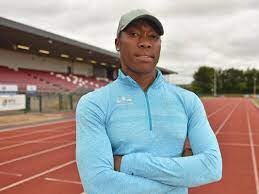
The statement read: “The Court found in particular that the applicant had not been afforded sufficient institutional and procedural safeguards in Switzerland to allow her to have her complaints examined effectively, especially since her complaints concerned substantiated and credible claims of discrimination as a result of her increased testosterone level caused by differences of sex development.”
Semenya argued that taking medication could put her health in danger and that the ruling, which prevented her defending her Olympic 800m title in 2021, denied athletes with DSD the right to rely on their natural abilities.
World Athletics says in reaction to the decision that its rules will remain in place, although the ECHR’s decision could force CAS and World Athletics to re-examine the regulations.
In a statement, the global governing body said: World Athletics notes the judgement of the deeply divided Chamber of the European Court of Human Rights (ECHR). We remain of the view that the DSD regulations are a necessary, reasonable and proportionate means of protecting fair competition in the female category as the Court of Arbitration for Sport and Swiss Federal Tribunal both found, after a detailed and expert assessment of the evidence.
“The case was filed against the state of Switzerland, rather than World Athletics. We will liaise with the Swiss Government on the next steps and, given the strong dissenting views in the decision, we will be encouraging them to seek referral of the case to the ECHR Grand Chamber for a final and definitive decision. In the meantime, the current DSD regulations, approved by the World Athletics Council in March 2023, will remain in place.”
by Athletics Weekly
Login to leave a comment
Caster Semenya: ‘My life has had its struggles, but it has mostly been joy’ she reveals in new book
Banned from competing in the sport she loved and trained her whole life for, Olympic and World champion Caster Semenya is finally ready to share the vivid and heart-breaking story of how the world came to know her name.
Thrust into the spotlight at just eighteen years old after winning the Berlin World Championships in 2009, Caster’s win was quickly overshadowed by criticism and speculation about her body, and she quickly became the centre of a debate which continues today about gender in sports, and the right to compete as you are.Told with captivating speed, immediate candour and the spirit of defiance, The Race to Be Myself is the journey of Caster’s years as an athlete in the public eye, and her private life behind closed doors. From her rural beginnings running free in the dust, to crushing her opponents in record time on the track; to the falsehoods spread about her by the press and sporting bodies, the legal trial she went through in order to compete, and the humiliation she has been forced to endure publicly and privately.
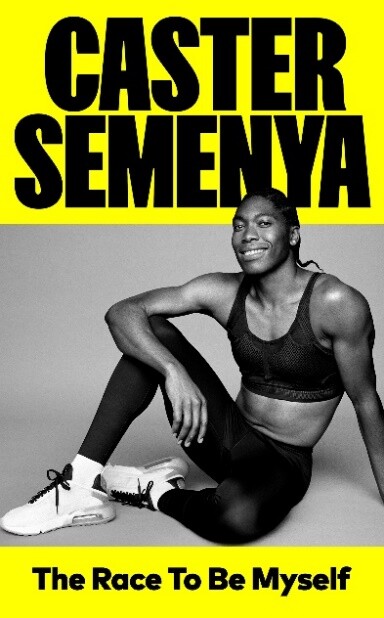
It is a searing testimony for anyone who has been forced to stop doing what they love, and deserves to run free.
“My life has had its struggles, but it has mostly been a joy. Through my example, I want to educate, enlighten, and inform about how the world can welcome those born different. You may have heard some of my story over the years, and you might have seen me running or standing proudly on the podium at the Olympics. But there is still so much I need to relate about strength, courage, love, resilience, and being true to who you are. I want this book to show people around the world how to do just that,” says Semenya.
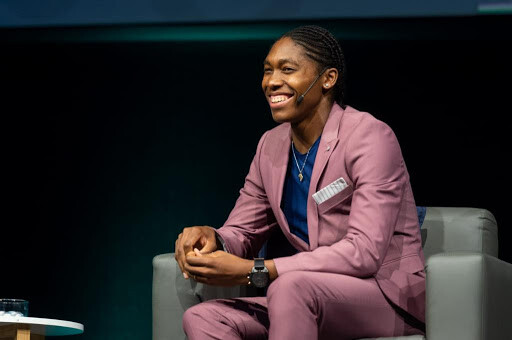
Senior Commissioning Editor at #Merky Books, Lemara Lindsay-Prince said: “I’ve always admired Caster Semenya’s journey as an extraordinary athlete and iconic activist, incredible pioneer and unfortunate pariah.
“Her fight to run as she is a race for respect, justice and ultimately everyone who has ever been told no and prevented from doing the thing they love. This book is her setting the record straight and owning her entire story. It’s unflinching in its honesty. Empowering in its tone, and captures the full scope of her life – from a little girl running in the dust, to a record breaking athlete running to be free. The Race to Be Myself is a must read!”
Login to leave a comment
Olympic silver medalist Christine Mboma to undergo hormone therapy
Last week, World Athletics, the global governing body of track and field, announced new regulations to their DSD athletes competition policy, which requires all female athletes with differences of sexual development to reduce their testosterone to not more than 2.5 nmol/L for a minimum of 24 months to be allowed to compete internationally in the female category in any event. According to The Namibian, one such athlete who has achieved prominence, Tokyo 200m Olympic medallist Christine Mboma of Namibia, intends to undergo hormone therapy to continue her career in athletics.
The new rule reduces the acceptable maximum testosterone limit to half of the previous limit, for twice the length of time.
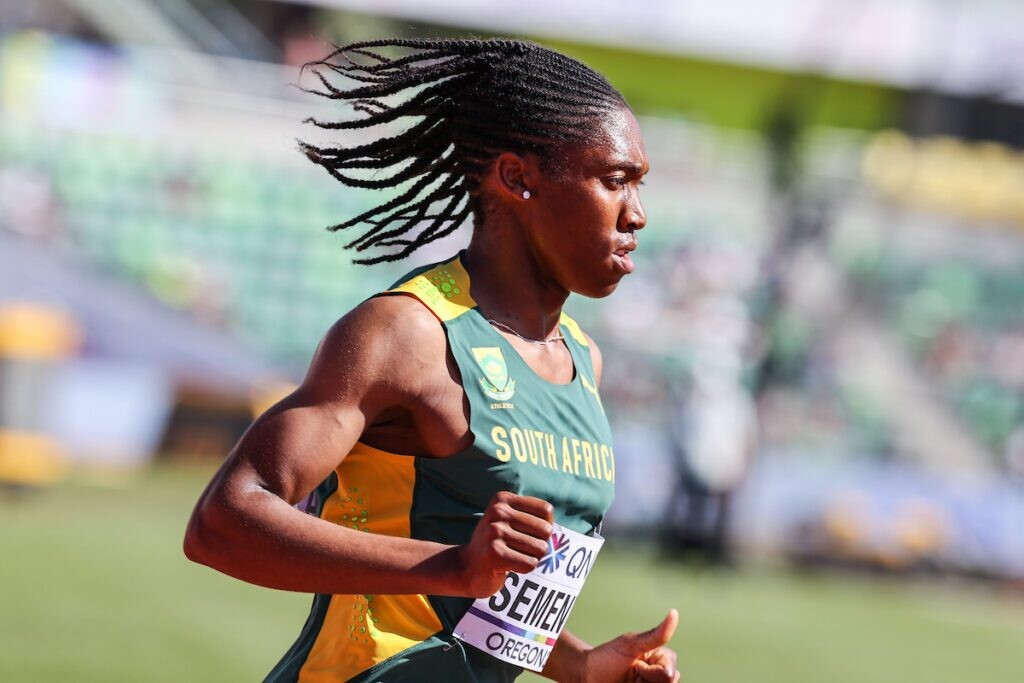
In an extensive interview with The Namibian, Mboma’s coach, Henk Botha said, “We’ve had disappointments and some obstacles in the past. There’s not a lot that we can do as Namibians, we’ll have to take this one on the chin and do our best to get Christine back on the track.”
“The one option is to stop with athletics, and the other is to go to court. Then, the third option is to reduce the levels,” said Botha. “The first two were never on our table, since we don’t have the money to go to court, and halting athletics is not something that Christine wants to do. She’s 19 and has a great career in front of her.”
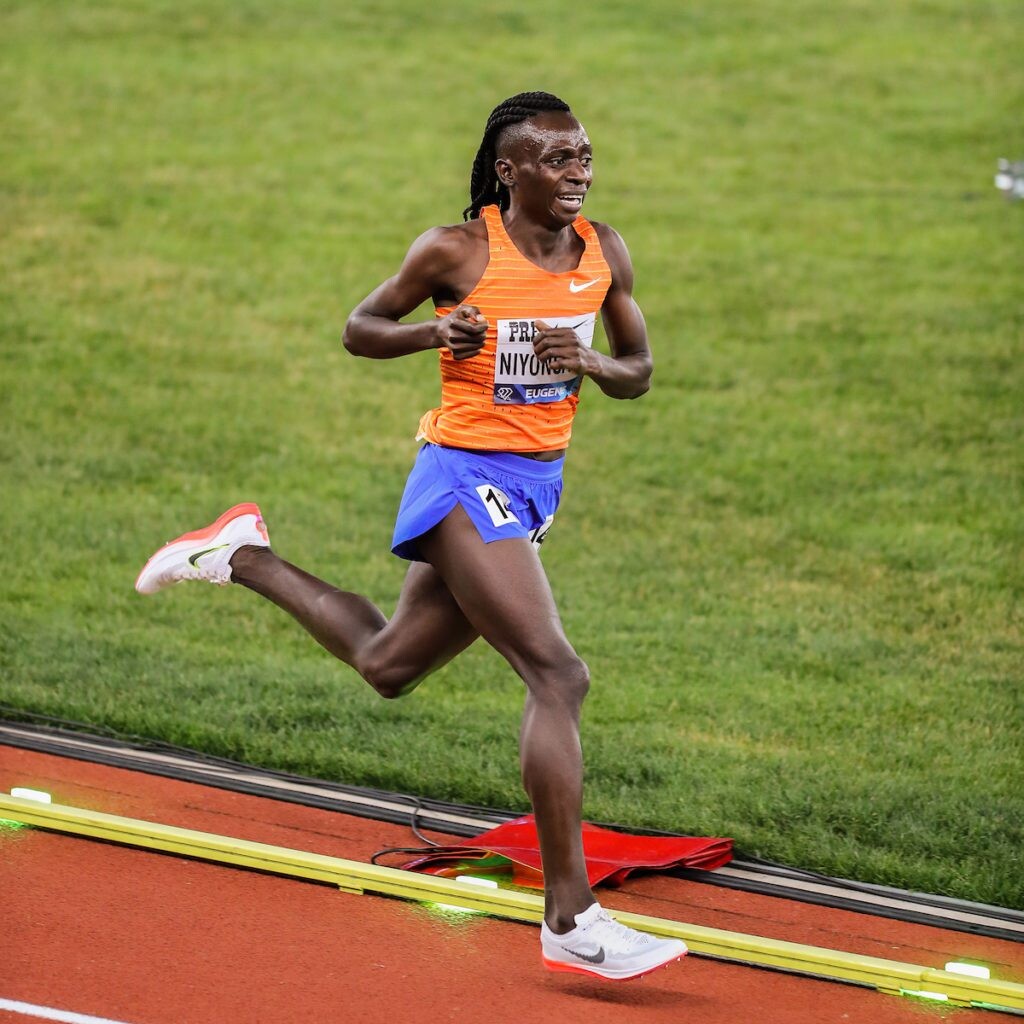
The harsh alternative DSD athletes are faced with is to quit the sport altogether.
Athletics Namibia said they fully support Mboma, describing WA’s new DSD athlete requirements as “discriminatory, unfair, stigmatizing and not safeguarding all women in sport.”
Mboma is one of five prominent DSD athletes who are or were at the top of their event in the last five years. Others are two-time Olympic 800m champion Caster Semenya, 2021 Diamond League champion and 2,000m world record holder Francine Niyonsaba, Nigeria’s Aminatou Seyni and Mboma’s Namibian compatriot, Beatrice Masilingi.
Mboma, who started her career as a 400m runner, has been forced to transition down to the 200m, due to WA limitations barring DSD athletes from racing events between the 400 and the mile.
The new rules will apply across all track events as of April 1, with all five athletes ineligible to compete under the new DSD regulations in major international competitions like the Diamond League and World Championships. All qualified athletes will be eligible for the 2024 Olympic Games provided they are able to maintain their hormone levels over the next 18 months.
Burundi’s Niyonsaba has been quiet on the World Athletics ruling, posting on her Instagram three days after the WA decision, “It’s time to build and achieve progress.” Niyonsaba took the silver medal in the women’s 800m at the Rio Olympics and has since moved up to the 5,000 and 10,000, running her first half-marathon earlier this month in Lisbon in a national record for Burundi of 68:45.
“Every athlete is built differently and has different advantages and disadvantages,” said Botha. “Instead of pointing out our differences, we should be proud that we are all different.”
Login to leave a comment
Caster Semenya’s career in danger due to new World Athletics regulation
Caster Semenya’s running career is in danger of being over after not competing at the South African championships on Thursday due to new World Athletics regulations.
Semenya had been entered in the 10 000m race that was scheduled to take place early on Thursday morning, but despite being present at the NWU McArthur Athletics Stadium in Potchefstroom, the former 800m Olympic champion watched from the sidelines as one of her training partners, Glenrose Xaba, won the gold medal in a time of 33 minutes and 2.13 seconds (33:02.13).
That was due to the change in the eligibility regulations regarding athletes who have differences of sexual development (DSD), like Semenya, which was taken by World Athletics last week.
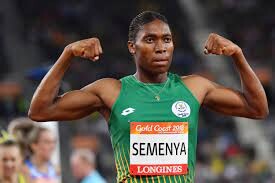
It is the same regulations that prevented the 32-year-old athlete from participating in distances from the 400m to the mile over the last few years unless her testosterone levels are suppressed to below 2.5nmol/L for a minimum of six months, via either medication or surgery.
But the regulations now cover all distances on the track and all field events too, and the time period to reach the required testosterone levels is now 24 months instead of six, which could have a devastating effect on DSD athletes around the world.
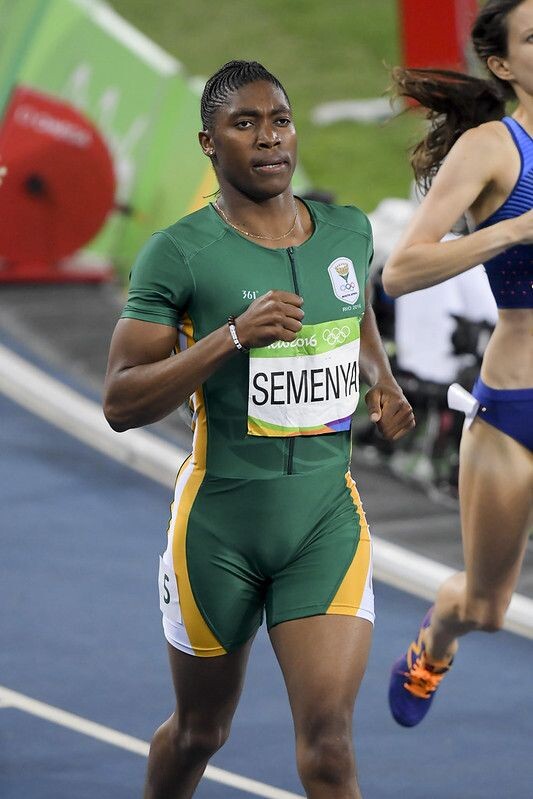
Semenya – who won 800m gold medals at the 2012 and 2016 Olympics, as well as the 2009, 2011 and 2017 world championships – has steadfastly refused to take any medical action to reach those levels, and first moved down from the 400m, 800m and 1 500m to the 200m sprint, before setting her sights on the 5 000m.
She was unable to qualify in the long-distance event for last year’s world championships in Eugene, Oregon, and appeared to be targeting the 10 000m this year after entering the national championships in that event in Potchefstroom.
The change in the regulations to include all events on the track and in the field came into effect on Friday, March 31, but while Athletics South Africa have said in a statement that they are taking legal advice on the change in the regulations, they are “duty-bound to adhere to and implement the new regulations”.
“Whilst ASA is considering the new regulations and taking legal advice thereon, in the interim, it is duty-bound to adhere to and implement the new regulations, and as such, cannot allow any of those affected athletes to participate in any world ranking competition or international events in contravention of the said regulations,” the local governing body stated.
“In this regard, ASA is still awaiting the outcome of the legal challenge lodged against the regulations, which is still to be heard and decided upon by the European Court of Human Rights.
“ASA also reaffirms its gratitude to the government of South Africa, UNHRC (UN Human Rights Commission), the WHO (World Health Organization), World Medical Association, different governments around the world, global icons and fellow national federations that have continued to rally behind this noble course of supporting the challenge against these highly discriminatory regulations.”
by Ashfak Mohamed
Login to leave a comment
Keely Hodgkinson runs 19 consecutive sub-two-minute 800m
British 800m star Keely Hodgkinson won gold at the European Indoor Championships on Sunday, defending the title she first won in 2021. On top of adding yet another medal to her resume, Hodgkinson extended an extremely impressive (but potentially overlooked) streak of now 19 straight sub-two-minute 800m races (not including heats). This is an incredible run of form and it has helped Hodgkinson win multiple titles and honors in her still-young career.
Going sub-two
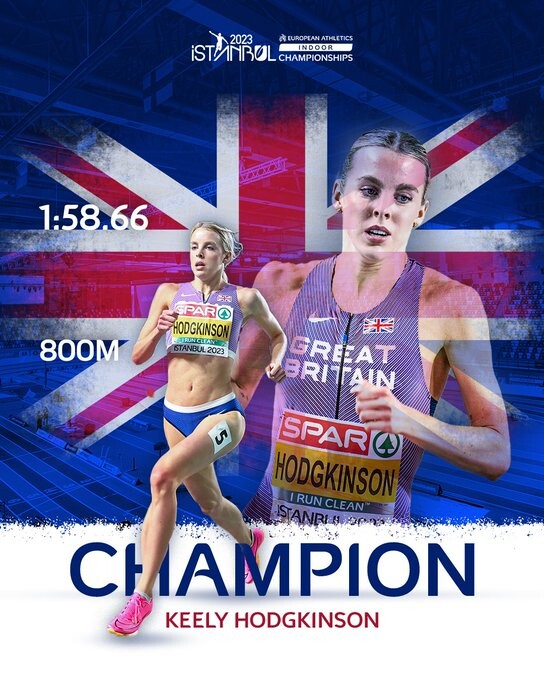
Running a sub-two-minute 800m is not an easy feat. In fact, only nine Canadian women have broken the two-minute barrier, which shows just how hard it is to do. Yet Hodgkinson has done that, race after race, dating back to June 2021. That was her breakout season, and seeing as it was an Olympic year, it couldn’t have come at a better time for her.
At the start of that season in January, Hodgkinson broke two minutes for the first time, running 1:59.03 at an indoor meet in Austria. She didn’t break two minutes again during the indoor season, but she carried that momentum into her following races and won her first European title at the indoor championships. She then kicked off her outdoor season with a 1:58.89 result in Czechia, and over the next seven finals she raced in 2021, she only once failed to break two minutes.
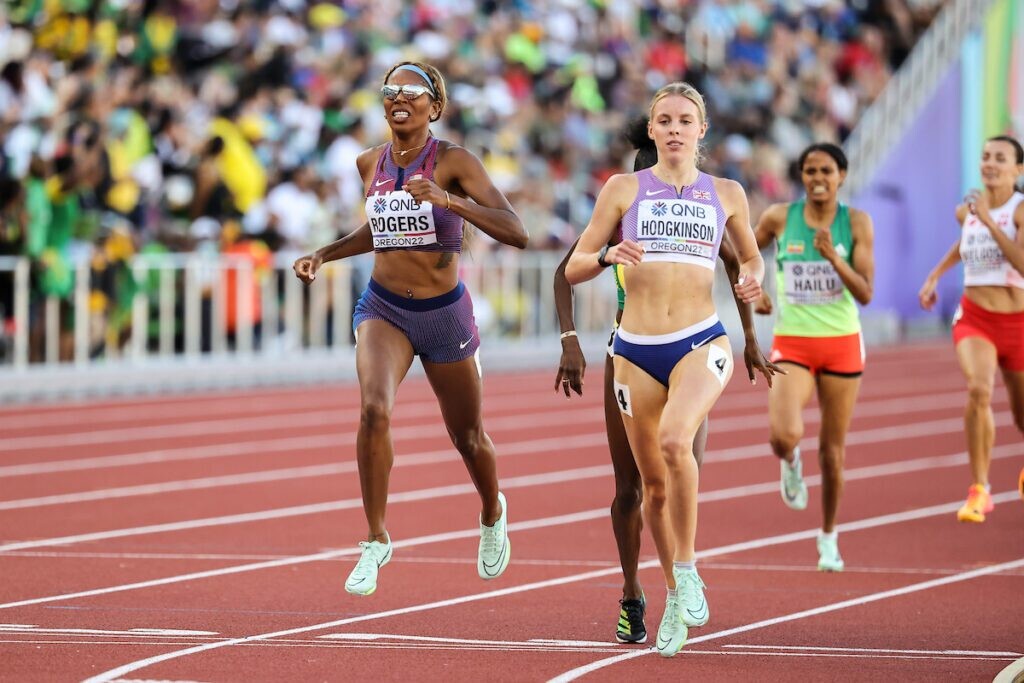
Later that year, Hodgkinson won silver at the Olympics, where she not only continued her then-new streak of sub-two performances, but also set a British record with her blazing 1:55.88 result in the finals. In 2022, her streak carried her to another silver medal, this time at the World Athletics Championships, and the outdoor European crown to match her indoor title from 2021. Hodgkinson has won every race she has run so far this year, with four sub-two results so far.
A tough streak
Hodgkinson’s streak is unprecedented in the 800m, and even the other all-time greats have failed to match her numbers. Athing Mu, the 20-year-old American who won gold ahead of Hodgkinson at the Olympics and World Athletics Championships, has only run four straight sub-two-minute results in her career. Granted, she’s young and still has plenty of time to add a longer streak to her resume, but Hodgkinson is young, too.
American Ajee Wilson owns two world championship bronze medals in the 800m and won the Diamond League 800m title in 2019, but her longest streak of sub-two runs only reached 13. This is still a super impressive tally, but it’s still pretty far below Hodgkinson’s streak, which could grow even longer over the next few months.
Two-time Olympic gold medalist Caster Semenya made it to 16 sub-two results in a row stretching from 2017 to 2019, but that’s where her streak ended (of course, Semenya may have been able to carry this streak on had she not been barred from racing the 800m). Finally, there’s the 800m world record holder, Jarmila Kratochvílová, who had a lifetime PB of 1:53.28. Even she couldn’t match Hodgkinson’s amazing streak, as her longest lasted for just 10 races.
Hodgkinson is truly a special talent, and she continues to prove that in every race she enters. It will be exciting to see her move forward with her career and to see how long she can keep her streak going before she runs north of two minutes once again.
Login to leave a comment
Transgender athletes to be allowed to compete against women in new World Athletics rules
World Athletics is set to leave the door open for transgender athletes to compete against women at the highest level.
Sports chiefs have found themselves with a tough decision to make whether to allow male-born trans women to compete in female categories. Last year the Olympic Committee published statement which stated that 'fairness and scientific evidence' should be taken into account by international federations when devising eligibility criteria for trans athletes.
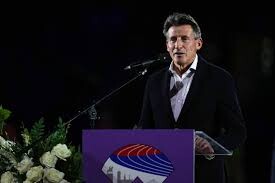
Triathlon became the first British sport to ban trans women from competing in female events instead changing the name of their men's category to 'open'. English Volleyball followed them while British Cycling banned a trans athlete competing at last year's National Omnium Championships and are completing a review of their policy.
World Athletics are yet to decide their stance in the trans athlete debate but Telegraph Sport reports that the governing body has begun a consultation with its member federations over a proposed rule change.
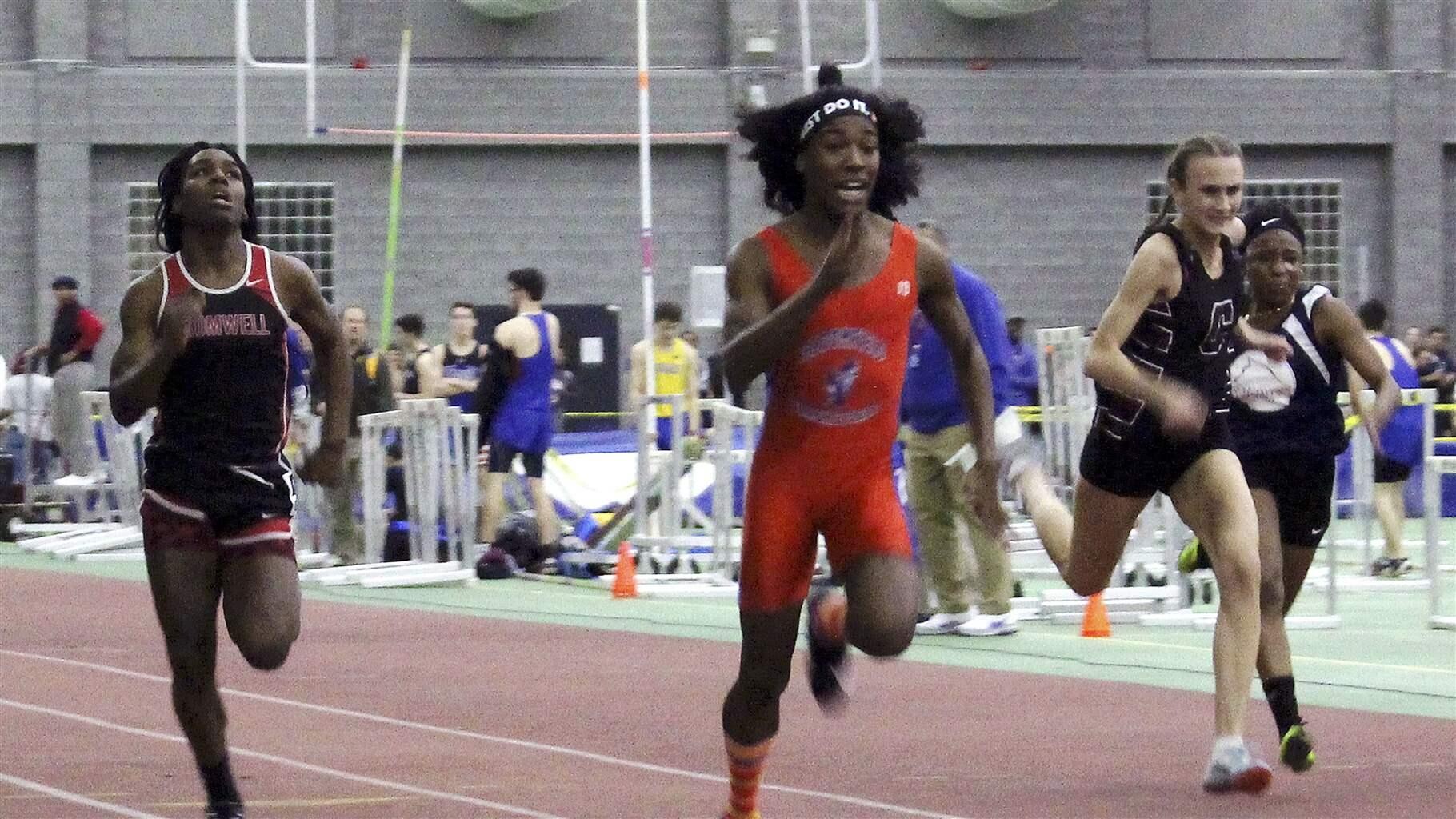
The change would see a tightening of regulations but fall short of banning trans women from competing in female events at the highest level.
The consultation sent to member federations says: “This preferred option would allow significant (although not full) reduction of anaerobic, aerobic performances and body composition changes, while still providing a path for eligibility of trans women and 46 XY DSD individuals to compete in the female category.”
The Telegraph states that the preferred option also includes a 'full harmonisation of its trans regulations' and those governing athletes with differences of sexual development (DSD), including Caster Semenya.
The “preferred option” would see a halving of the maximum permitted plasma testosterone for trans women from five nanomoles per litre to 2.5 nmol/L. There would also be a doubling of the period athletes must remain below that threshold before being allowed to compete from one to two years.
Athletes currently must remain below a 5nmol/L level for just six months to compete in track events from 400 metres to a mile.
It has been reported that the confidential consultation was sent to member federations amid 'strict secrecy' and presented to the governing body’s council at the end of November. A final decision will be made by the council in March.
by Benjamin Goddard
Login to leave a comment
10 years later: Pamela Jelimo to receive London Olympics bronze
Though out of the public limelight, the history-making Pamela Jelimo is still winning.
Jelimo, the first Kenyan woman to win an Olympic gold medal with her exploits in 800m at the 2008 Beijing Summers Games, is set to receive yet another medal.
Jelimo, the 2008 Africa 800m and 2012 World Indoor 800m champion, who finished fourth in one minute and 57.59 second set to benefit after race winner Mariya Savinova from Russia, was stripped of the gold medal for doping.
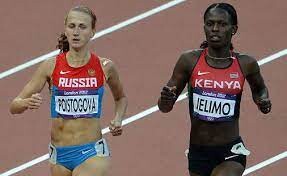
Jelimo, who celebrated her 32nd birthday on December 5, is set to receive her bronze medal from the 2012 London Olympic Games on Wednesday at the National Olympic Committee of Kenya (NOC-K) office, Gallant House, Nairobi.
Legendary Kipchoge Keino, who is an International Olympic Committee (IOC) member alongside NOC-K president, Paul Tergat, will preside over the presentation ceremony.
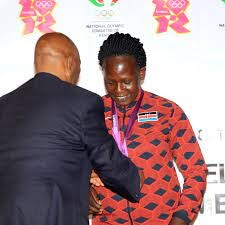
South Africa’s Caster Semenya and another Russian Ekaterina Poistogova, who had settled for silver and bronze, were scaled to gold and silver with their times of 1:57.23 and 1:57.53 respectively.
Kenya’s 2007 World 800m champion Janeth Jepkosgei, who had settled eighth in the race in 2:00.19 and Hellen Obiri, who came eighth in women’s 1,500m at the same Olympics, will receive their certificates.
Another Russian Elena Arzhakova, who finished sixth in 1:59.21 in the same race was also banned for having doped too.
With Savinova and Arzhakova banned, Jepkosgei, who had settled eighth in the race in 2:00.19 was upgraded to sixth.
On November 9, 2015, the Independent Commission Investigation of the World Anti-Doping Agency (WADA) asked for a lifetime ban for doping for Savinova, who had won gold and Poistogova, who had won bronze.
In February 2017, it was announced that Savinova was stripped of her gold medal but Poistogova was suspended in 2017 for two years, backdated to October 2014. Her London result, though, was not affected.
Alysia Johnson Montaño (1:57.93) from the United States of America and Burundi’s Francine Niyonsaba (1:59.63) finished fourth and fifth in the women’s 800m final.
A record four athletes that finished ahead of Obiri, who had settled 12th, were suspended for doping- Aslı Çakır Alptekin and Gamze Bulut from Turkey, who had won gold and silver respectively, Natallia Kareiva of Belarus, who had finished fifth and Russian Yekaterina Kostetskaya, who came sixth.
Maryam Yusuf Jamal (Bahrain), Tatyana Tomashova (Russia) and Abeba Aregawi (Ethiopia) were all scaled to gold, silver and bronze.
Aregwai, who changed allegiance to Sweden was suspended for doping in 2016.
This is the second time Olympics medals or certificates are being awarded in Kenya years later.
Asbel Kiprop received his gold medal from the 2008 Beijing Olympics in Nairobi in 2011 after the winner, Rashid Ramzi , was flagged down for doping.
by Ayumba Ayodi
Login to leave a comment
Caster Semenya unnoticed at World Championships The South African Olympic champion fails to advance in the 5,000 meters in Oregon – her first major international competition since 2017
How many times had South Africa’s Caster Semenya charged onto the Hayward Field homestretch seemingly in a different race than the rest of the pack, the sport’s most storied stadium rocking as Semenya raced into the deafening roar?
How many times had American track and field’s most knowledgeable fans, most passionate crowd stood in appreciation of the two-time Olympic, three-time World 800-meter champion?
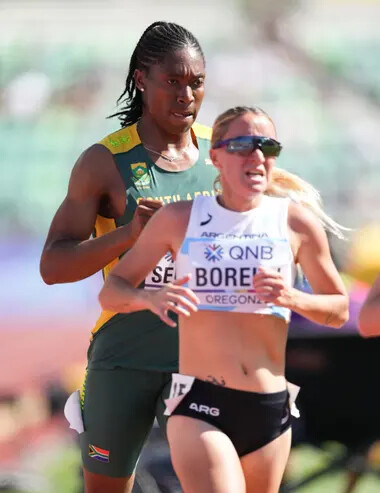
On a scalding hot afternoon at the World Championships on Wednesday, Semenya labored through the final meters of her 5,000-meter heat in front of a half-empty stadium, largely ignored or unnoticed even in a place that calls itself Tracktown U.S.A.
Semenya, one of the most compelling and controversial athletes of her generation, has fallen so far off the sport’s radar since 2019 that the most well-known of her fellow competitors on Wednesday didn’t even realize she was in the competition.
“Caster?” asked Sifan Hassan, the Olympic 5,000 and 10,000 champion from the Netherlands, who ran in a later heat on Wednesday.
“Caster Semenya ran the 5,000?” Hassan asked again. “ I had no idea. I didn’t even know she was here. Did she make it?”
Semenya, running in her first major international competition since winning the 2017 Worlds 800 title, did not advance to the final, finishing 13th in her heat, running 15 minutes, 46.12 seconds, nearly a minute off the winning time of Gudaf Tsegay of Ethiopia (14:52.69).
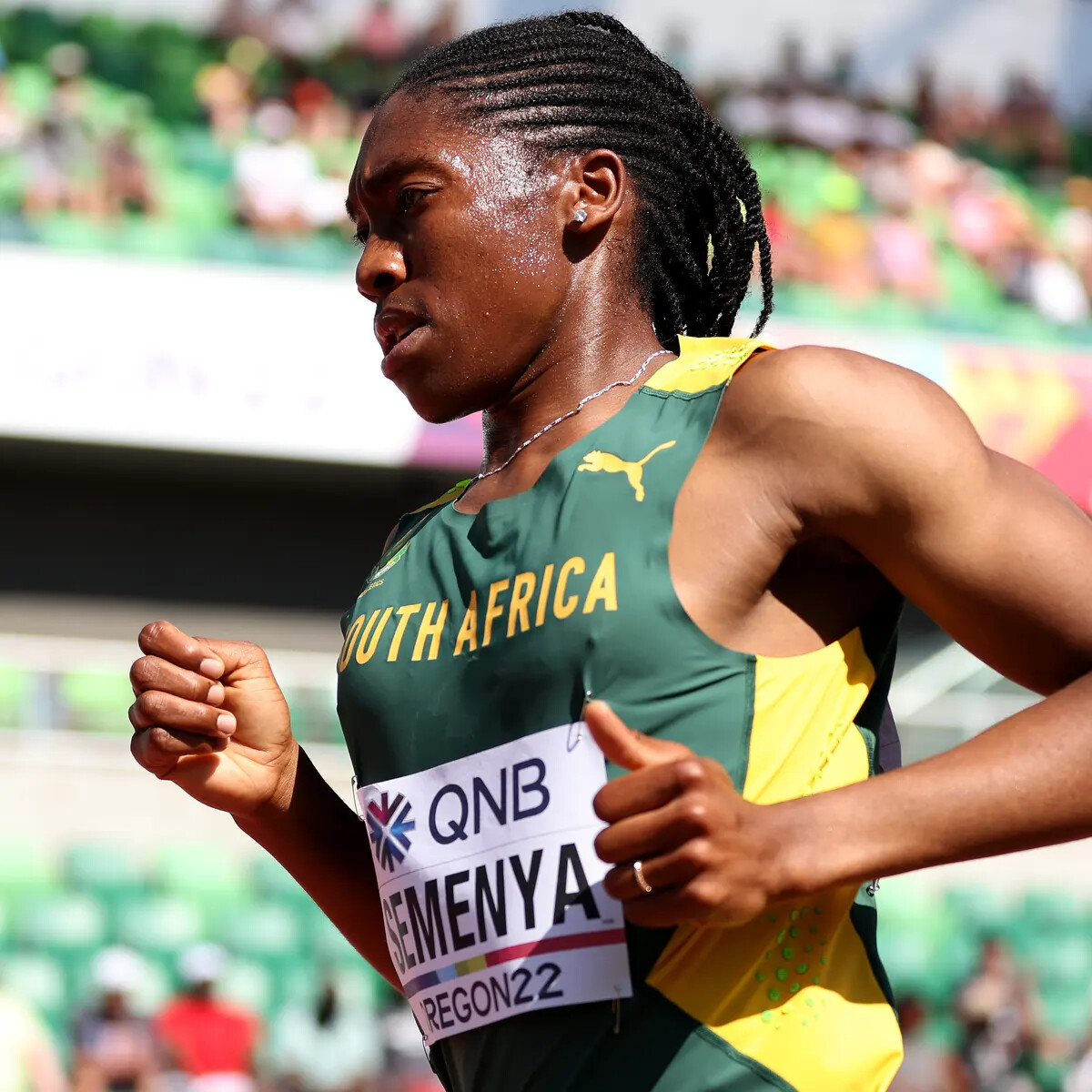
“Cooking,” Semenya said after the race, referring to the heat. She declined to answer reporters’ questions.
Under different circumstances, the sport would be obsessing over the prospect of a showdown between Semenya, 31, and Athing Mu, the 20-year-old Olympic champion from the U.S. in Sunday’s 800 final and whether the pair could challenge the world record of 1:53.28 that was set by Czechoslovakia’s Jarmila Kratochvilova in 1983.
Instead, Semenya, who was assigned female at birth, raised as a girl and identifies as a woman has not raced the 800 in meets sanctioned by World Athletics, the sport’s international governing body, because of her refusal to submit to the organization’s guidelines regarding intersex athletes.
Under the World Athletics guidelines athletes in events from the 400 to the mile – in other words, Semenya’s events – are required to take hormone suppressing drugs to reduce their testosterone to below 5 nanomoles per liter for at least six months before being allowed to compete internationally.
Semenya has an intersex condition called Differences in Sexual Development (DSD) or 46, XY that because of differences in sex development that causes male and female traits and a testosterone level higher than the typical female range. She is not transgender.
“I am a woman and I am a world-class athlete,” Semenya said in 2019, shortly before the Prefontaine Classic, her final 800. “The IAAF will not drug me or stop me from being who I am.”
Semenya had found herself unwittingly in the center of controversy almost from the moment she emerged on the world stage a decade earlier.
She won her first Worlds title in 2009 as an 18-year-old, a victory that prompted Russia’s Mariya Savinova to suggest the South African was a man.
“Just look at her,” Savinova said.
While the results of Semenya’s sex test were supposed to be confidential they were leaked to Australia’s Daily Telegraph. Semenya has internal testes but no ovaries or womb, the newspaper reported quoting the test report.
“She is a woman, but maybe not 100 percent,” IAAF secretary general Pierre Weiss said at the time, doing nothing to discourage the headline writers at New York’s Daily News who blared that the World champion “is a woman … and a man.”
Semenya began taking a hormone suppressant drug. She finished second to Savinova at both the 2011 Worlds and 2012 Olympics.
“The IAAF used me in the past as a human guinea pig to experiment with how the medication they required me to take would affect my testosterone levels,” she said in 2019. “Even though the hormonal drugs made me feel constantly sick the IAAF now wants to enforce even stricter thresholds with unknown health consequences.
“I will not allow the IAAF to use me and my body again. But I am concerned that other female athletes will feel compelled to let the IAAF drug them and test the effectiveness and negative health effects of different hormonal drugs. This cannot be allowed to happen.”
Semenya was awarded the 2012 Olympic gold medal in 2017, two years after the World Anti-Doping Agency recommended that Savinova receive a lifetime ban for doping and her results dating to July 2010 be disqualified.
Given the event’s suspect history, the irony of World Athletics now demanding she dope to level the playing field is not lost on Semenya.
“I’m not going to do that,” she told the Orange County Register after the 2019 Prefontaine meet. “I’m a very clean athlete. I believe in the clean sport. I believe in the equal opportunities. At the end of the day, this is a woman’s sport, this is a man’s sport. If they’re going come (at) me with that nonsense then why do you lead?”
Semenya challenged World Athletics guidelines with the Court of Arbitration for Sport. A three-member CAS panel in June 2019 said the World Athletics policy was “discriminatory” toward athletes with DSD but two of the panel members, nevertheless agreed with the World Athletics that policy was “necessary, reasonable and proportionate” to counter advantages DSD athletes have over other female competitors. Semenya and other female athletes with DSD should be considered “biological males” World Athletics told CAS.
Switzerland’s Supreme Court rejected Semenya’s appeal in September 2020. She filed an appeal with the European Court of Human Rights in February 2021.
While Semenya fell short in her bid to reach the Olympic 200-meter qualifying standard last year, the success of other intersex athletes has raised further questions about the World Athletics policy.
by Scott Reid
Login to leave a comment
World Athletics Championships Budapest23
Budapest is a true capital of sports, which is one of the reasons why the World Athletics Championships Budapest 2023 is in the right place here. Here are some of the most important world athletics events and venues where we have witnessed moments of sporting history. Throughout the 125-year history of Hungarian athletics, the country and Budapest have hosted numerous...
more...Caster Semenya to make surprise comeback at world championships
Caster Semenya is listed to compete at next week's world championships in Oregon, potentially setting up a surprise return to the big stage for the two-time Olympic champion and one of the most contentious athletes.
Semenya was listed on Friday for the women's 5000m, an event she has turned to after being banned from running in her favorite 800m race by track and field's testosterone regulations.
Semenya's inclusion on a competitor list released by World Athletics was unexpected after she didn't make the qualifying time for the 5000 and was not included in the South Africa team for the worlds named this week.
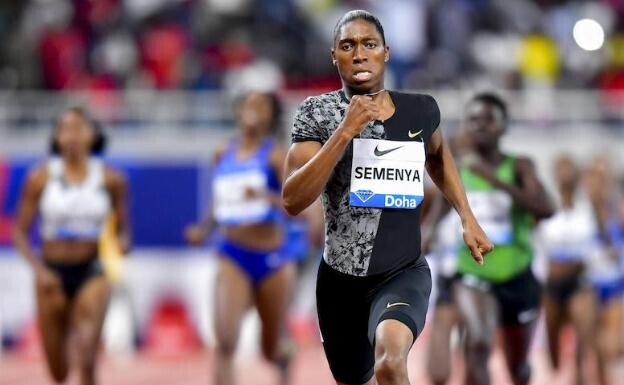
NBC reported that Semenya was moved up onto the list for the worlds after some higher-ranked runners didn't enter the championships. South Africa's track federation and Semenya's representatives didn't immediately respond to requests for clarification.
If she runs, it will be the first time Semenya has appeared at a world championships or Olympics since 2017, when she won her third world title in the 800. She also has two Olympic golds over two laps but has been barred from running in races from 400m to one mile since 2019 under rules that bar women who have an intersex condition called 46,XY difference in sex development.
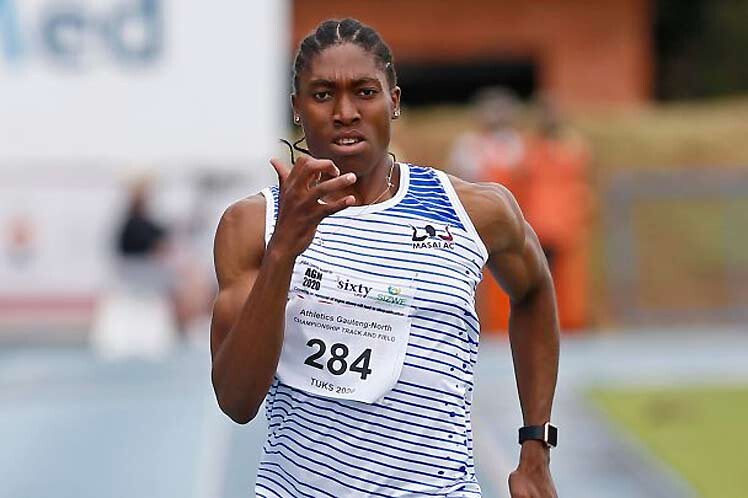
Semenya has twice gone to court to appeal against the rules but has lost both cases. She is pursuing a third appeal at the European Court of Human Rights.
Semenya's appearance at a worlds would also come just as athletics authorities are considering changes to their DSD regulations that might go so far as to completely exclude women athletes with 46,XY DSD and high natural testosterone from all female events at major meets.
Semenya was assigned female at birth, raised as a girl and identifies as a woman. She has never publicly identified herself as intersex – that is, having both male and female traits – or as having the 46,XY DSD condition.
However, she essentially acknowledged having the condition by appealing the DSD rules at the Court of Arbitration for Sport in 2018. Semenya has publicly acknowledged having high natural testosterone but has declined to submit to the DSD rules that state she must undergo treatment to suppress her natural hormone levels to below a specific threshold if she wants to compete in the 800m.
by Gerald Imray
Login to leave a comment
World Athletics Championships Budapest23
Budapest is a true capital of sports, which is one of the reasons why the World Athletics Championships Budapest 2023 is in the right place here. Here are some of the most important world athletics events and venues where we have witnessed moments of sporting history. Throughout the 125-year history of Hungarian athletics, the country and Budapest have hosted numerous...
more...The integrity of women’s sport is really important here, and we can not have a generation of young girls thinking there is not a future for them in the sport says Sebastian Coe
World Athletics president Sebastian Coe has stated that the global athletics governing body will look at their rules concerning the inclusion of transgender athletes in female events at a Council meeting toward the end of this year.
This statement comes days after the International Swimming Federation (FINA), swimming’s governing body, voted to stop trans female athletes from competing in women’s elite races if they have gone through any part of the gender transformation process after puberty or age 12. FINA also stated that they will establish an open category in some events for swimmers whose gender identity is different than their birth sex.
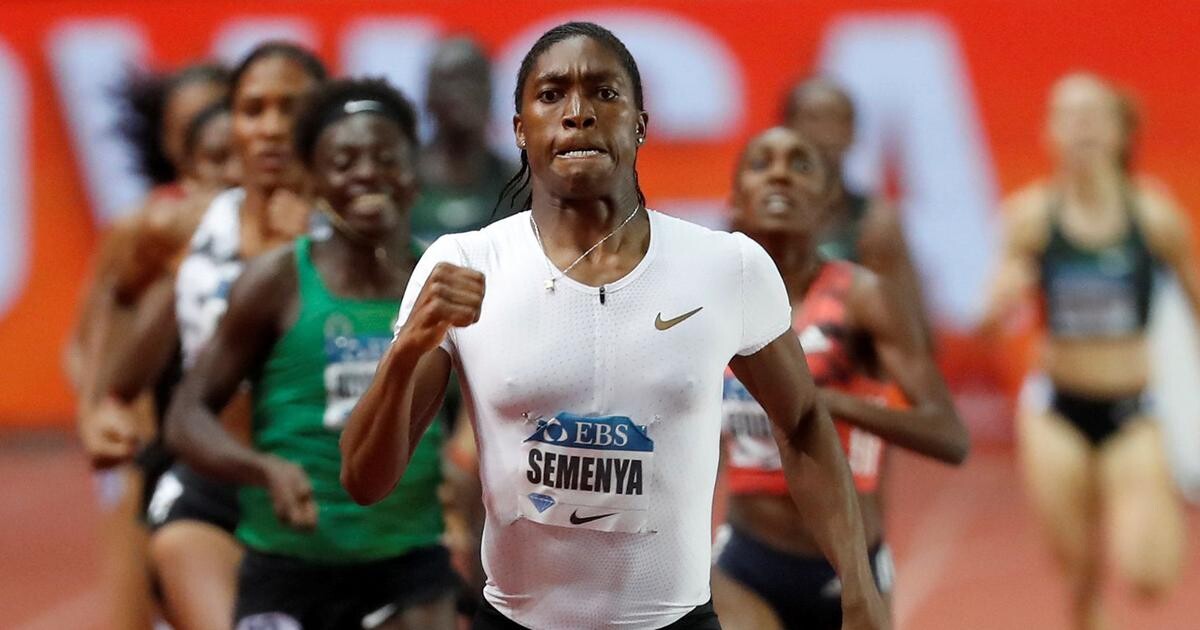
(Photo - Caster Semenya is a woman and a man. The South African champ has no womb or ovaries and her testosterone levels are more than three times higher than those of a normal female, according to reports.)
Transgender rights have become a major talking point in sports in an effort to balance inclusivity with ensuring they do not have an unfair advantage arising from the residual effects of puberty.
The debate intensified this year after University of Pennsylvania swimmer Lia Thomas became the first transgender NCAA champion in history, winning the women’s 500-yard freestyle.
In an interview with BBC Sport, Coe, a two-time Olympic 800m champion, outlined his support for the recent measures taken by FINA.
“The integrity of women’s sport is really, really important here, and we can’t have a generation of young girls thinking there is not a future for them in the sport. So we have a responsibility…maintaining the primacy and the integrity of female competition is absolutely vital, and that’s why we were at the forefront of tabling those regulations that allow as close as you can get to a level playing field,” says Coe.
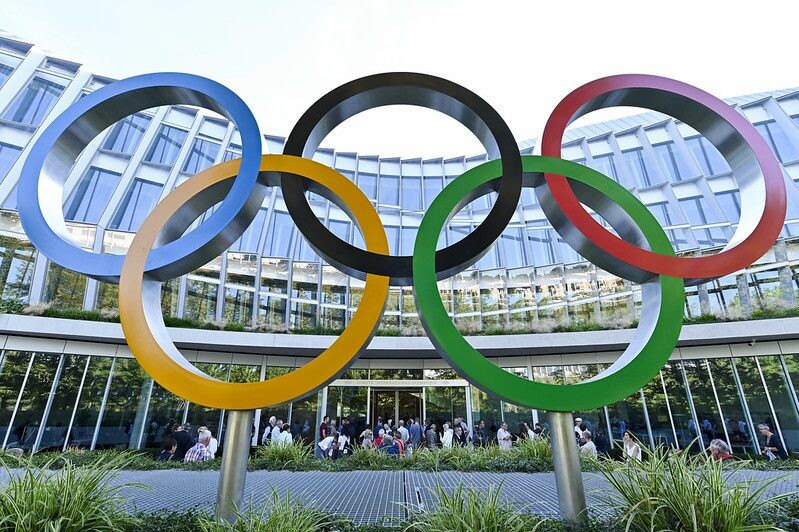
Coe on FINA’s ruling:
“This is as it should be. We have always believed that biology trumps gender and we will continue to review our regulations in line with this. We will follow the science.”
FINA’s new guideline means that Thomas, who has expressed a desire to compete for Team U.S.A. at the Paris Olympics, is now blocked from participating in the women’s category at the Games. There have been talks to establish an “open” category at world championships for athletes whose gender identity is different than their assigned gender at birth.
The current World Athletics guideline from 2018 states that transgender women can compete in the women’s category if they reduce their testosterone levels to below five nanomoles per litre for at least 12 months before competing.
“We continue to study, research and contribute to the growing body of evidence that testosterone is a key determinant in performance, and have scheduled a discussion on our regulations with our council at the end of the year,” says Coe.
International sports federations may set their own policies but will be subject to World Athletics and IOC rules when it comes to sending athletes to the World Championships and Olympic Games.
by Running Magazine
Login to leave a comment
Prefontaine Classic promises world record attempts and rich competition despite late losses
It is a measure of Eugene’s Prefontaine Classic meeting - which tomorrow forms the third stop on the Wanda Diamond League tour - that it can lose four Olympic gold medalists at late notice and still remain packed with compelling competition and world record attempts.
The arrangement of all that athletics action was altered today following forecasts of rain and high winds - likely to be blowing into the faces of the sprinters - on Saturday.
Accordingly the men's pole vault, featuring Olympic gold and silver medalists Mondo Duplantis of Sweden and Chris Nilsen of the United States, the women's discus, featuring the US Olympic champion Valarie Allman, and the women's high jump, involving Ukraine's world indoor champion Yaroslava Mahuchikh, have been moved to Friday night's programme, where world record attempts are being made over two miles and 5,000 meters.
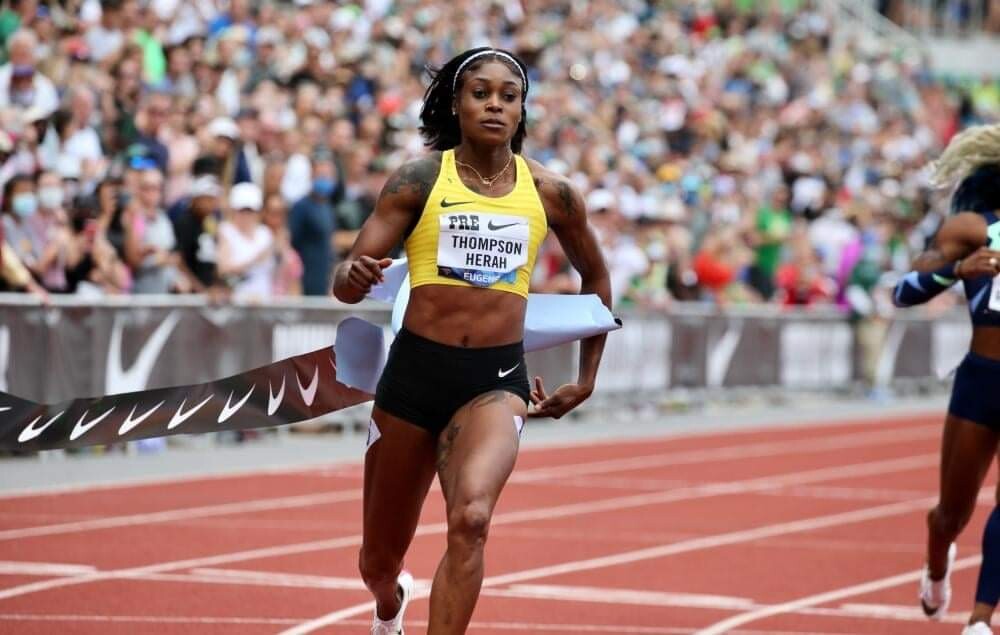
The news that the United States' Olympic women’s 800 meters champion Athing Mu will not now race against Britain’s Tokyo 2020 silver medalist Keely Hodgkinson, and that Italy’s men’s 100m champion Marcell Jacobs will not be in a field including the man he beat to gold in Japan, home sprinter Fred Kerley, was disappointing.
Also missing from the planned line-up at the new-look Hayward Field, which will stage this year’s World Athletics Championships, are home talents Matthew Centrowitz, the Rio 2016 1500m gold medalist, Tokyo 2020 and world 400m hurdles silver medalist Rai Benjamin and double world pole vault champion Sam Kendricks.
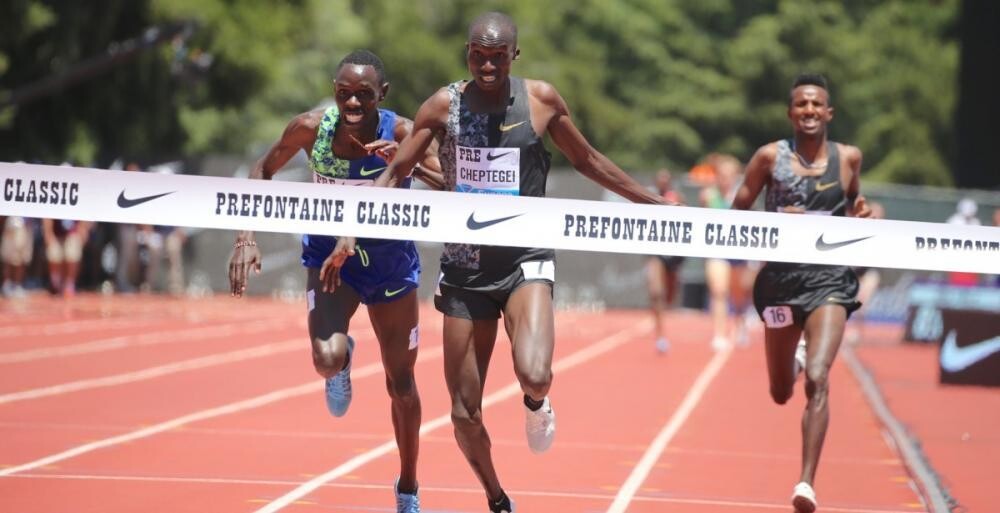
And South Africa’s double Olympic 800m champion Caster Semenya, who had planned a first top-level race since 2019, has also withdrawn.
All this means the limelight will shine all the more intensely on stellar performers such as Jamaica’s double Olympic women’s 100 and 200m champion Elaine Thompson-Herah, who runs over the shorter sprint against a field including the American who missed last year’s Olympics because of a three-month suspension after testing positive for cannabis, Sha’Carri Richardson.
Britain’s world 200m champion Dina Asher-Smith, who last Saturday won the Birmingham Diamond League 100m from which Thompson-Herah had made a late withdrawal, is also in the mix, as is Switzerland’s world indoor 60m champion Mujinga Kambundji and Jamaica’s Tokyo 2020 bronze medalist Shericka Jackson.
Thompson-Herah chose to make a low-key start to her outdoor season, choosing to compete in Kingston, where she clocked 10.94sec despite a strong headwind of -1.8 meters per second.
It was on this track last year that she ran 10.54, putting her second on the all-time list.
The men’s 100m is also loaded given the presence of Kerley and his fellow Americans Trayvon Bromell, who will be keen to restore normal working after his early exit in Birmingham because of a false start, world champion Christian Coleman, world 200m champion Noah Lyles and Canada’s Olympic 200m champion Andre De Grasse.
And 18-year-old Erriyon Knighton, who last year became the youngest male athlete to represent the United States since middle distance runner Jim Ryun in 1964 and missed a 200m medal by one place, will seek to break 10sec for the first time.
Knighton already tops this year’s 200m world list with his startling 19.49sec in Baton Rouge last month, which put him fourth on the all-time list.
The women’s 200m will see double Olympic 400m champion Shaunae Miller-Uibo taking on Jamaica’s 35-year-old Beijing 2008 and London 2012 100m champion Shelly-Ann Fraser-Pryce, who won world gold at this distance in 2013 and took silver at the London 2012 Olympics.
The men’s 400m will see Kirani James of Grenada, the London 2012 champion and Tokyo 2020 bronze medalist, take on home athletes including Michael Cherry, Michael Norman – a major talent currently seeking a performance to do himself justice - Vernon Norwood and Kahmari Montgomery.
The absence of Benjamin from the 400m hurdles will offer Brazil’s Tokyo 2020 bronze medalist Alison Dos Santos - who beat Benjamin in the opening Diamond League meeting of the season in Doha – a perfect chance to shine,
In the women’s 100m hurdles, Puerto Rico’s Olympic champion takes on the American who took silver behind her in Tokyo, world record holder Kendra Harrison.
The traditional Friday evening distance racing in Eugene will include a women’s two miles and a women’s and men’s 5000m race.
At the latter, which will be followed by an official Diamond League 5,000m on Saturday, Uganda’s Joshua Cheptegei is billed to make an attempt at breaking his own world record of 12min 35.36sec, which he ran in Monaco in August 2020.
On Saturday afternoon the majority of the rivals Cheptegei beat to win Olympic 5,000m gold in Tokyo last year will line up for the Diamond League 5.000m, where Olympic 10,000m champion Selemon Barega of Ethiopia, Olympic 10,000m bronze medalist Jacob Kiplimo of Uganda, Olympic 5,000m silver Mohammed Ahmed of Canada and two-time Olympic 5,000m medalist Paul Chelimo of the United States are the main contenders.
Friday night will also see Ethiopia’s 24-year-old Letesenbet Gidey aiming to lower the women’s 5000m world record of 14:06.62 that she set in Valencia in October 2020.
Gidey has since lowered the women’s 10,000m world record to 29min 01.03sec and the world half marathon record to 1hr 2min 52sec.
Elsewhere on Friday, the women’s two miles will see Sifan Hassan of the Netherlands, the Olympic 5,000 and 10,000m champion, facing Diamond League 5,000m champion Francine Niyonsaba of Burundi.
The latter, who was disqualified at the Tokyo 2020 Games, beat Kenya’s double Olympic 1500m champion Faith Kipyegon over 3,000m in Doha earlier this month.
The world best of 8:58.58, set by Ethiopia’s Meseret Defar in 2007, is sure to be under threat.
Saturday’s middle-distance action will be highlighted by the clash of Olympic 1500m champion Jakob Ingebrigtsen and world champion Timothy Cheruiyot, who renew their rivalry in the Bowerman Mile.
Ingebrigtsen beat Cheruiyot for the first time in the Olympic final in Tokyo last year but the Kenyan beat his Norwegian rival a few weeks later to win over 1500m at the Diamond League final in Zurich.
Both men will need to be primed, however, to beat Kenya’s Abel Kipsang, who out-kicked Cheruiyot to win in Doha recently and who backed it up with 1500m victory in Birmingham last Sunday.
Kipyegon meanwhile will take on Britain’s Tokyo 2020 silver medalist Laura Muir and Gudaf Tsegay of Ethiopia in the women’s 1500m.
Hodgkinson faces an 800m field that includes home runner Ajee Wilson, who took the world indoor title earlier this year.
The men’s shot put will involve the respective Tokyo 2020 gold, silver and bronze medalists Ryan Crouser and Joe Kovacs of the United States and New Zealand’s Tom Walsh.
by Mike Rowbottom
Login to leave a comment
Prefontaine Classic
The Pre Classic, part of the Diamond League series of international meets featuring Olympic-level athletes, is scheduled to be held at the new Hayward Field in Eugene. The Prefontaine Classicis the longest-running outdoor invitational track & field meet in America and is part of the elite Wanda Diamond League of meets held worldwide annually. The Pre Classic’s results score has...
more...Caster Semenya runs a new personal best in a 3000m win in Cape Town
The two-time Olympic gold medalist, who is eyeing a place in the South African team for the 2022 World Athletics Championships in Oregon, was using the shorter race to build up speed for preferred 5000m.
Caster Semenya was the star attraction of the second edition of the Athletics South Africa Grand Prix in Cape Town on Wednesday (March 23) and the two-time Olympic champion didn't disappoint, racing to her fastest ever women's 3000m.

Running in only her second major event this season, the double women's 800m gold medalist took charge of the race with two laps to go and held on to cross the finish line in a personal best of 8:54.97.
Semenya, who was using the race to build up speed for her now preferred event the 5000m, trailed early leader Kyla Jacobs before making the decisive move and dip below nine minutes for the first time over the shorter distance.
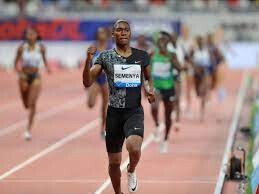
“The run was a little bit tricky,” Semenya said in an interview with World Track.
“Fortunately before the start, the wind died down a bit and worked in our favor. It was a great race, happy with the result. The target obviously was to break nine minutes and we achieved the goal [so] now we’ll have to go back to the drawing board and work more on mileage.”
The leaner looking Semenya finished comfortably ahead of her closest challenger Aynslee Van Graan who timed 9:09.63 while her compatriot and training partner Glenrose Xaba finished in third place in 9:12.51.
The triple 800m world champion’s previous personal best over the 3000m was 9:04:20 from Potchefstroom in May 2021 when she was chasing qualification for the Tokyo 2020 Games in 2021.
She missed out on her target of 15:10.00 which meant she didn't qualify for the Olympics after finishing in fourth place in a 5000m meet in Belgium in 15:50.12 in June 2021.
The South African 5000m national champion, who raced to her personal best of 15:32.15 in May 2021 opened her season with a 5000m of 15:36.55 on March 12 at the Gauteng North Championships in Pretoria.
She is eyeing qualification for the World Athletics Championships in Oregon. The qualification mark for the worlds set for July 15 to 24 for the women’s 5000m is 15:10.00.
by Evelyn Watta
Login to leave a comment
World Athletics Championships Budapest23
Budapest is a true capital of sports, which is one of the reasons why the World Athletics Championships Budapest 2023 is in the right place here. Here are some of the most important world athletics events and venues where we have witnessed moments of sporting history. Throughout the 125-year history of Hungarian athletics, the country and Budapest have hosted numerous...
more...South African Caster Semenya cleared to compete until Swiss court ruling
Caster Semenya will be allowed to compete without restriction until the Federal Supreme Court of Switzerland has passed judgment on a new IAAF ruling.
The Court of Arbitration for Sport (CAS) ruled that the IAAF could implement a regulation that would require Semenya to take medication to lower her testosterone levels in order to compete against women in track events ranging from 400 meters to a mile.
However, the two-time Olympic 800 meters champion has continued to challenge the ruling and lodged an appeal in Switzerland last week.
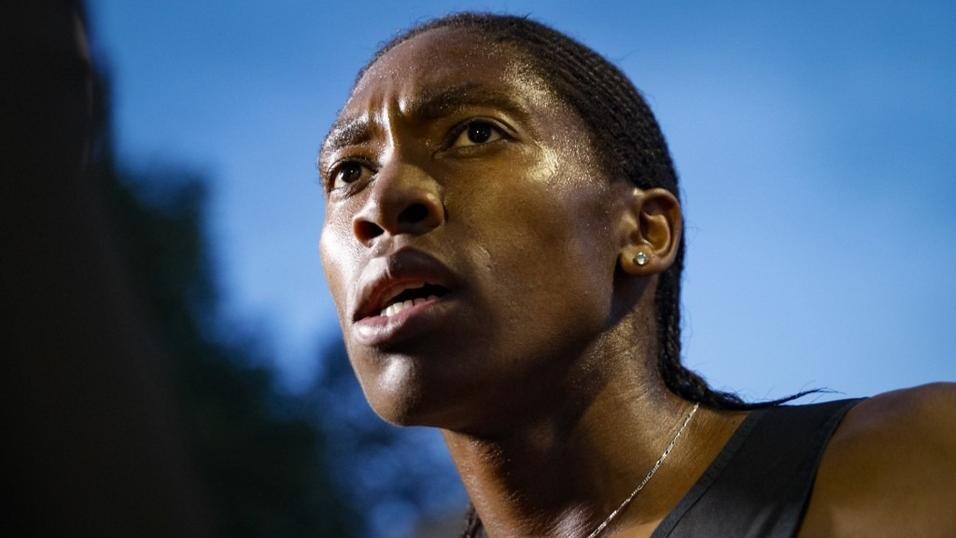
The 28-year-old asked the Swiss Federal Supreme Court to set aside the decision in its entirety.
It has now been confirmed that the IAAF must suspend its implementation of the regulations until the Swiss Supreme Court, which will receive submissions from the body, has made a ruling.
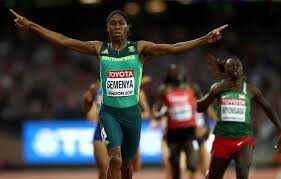
Semenya, who ruled out retiring after winning the 800 at the Diamond League event in Doha last month, two days after the CAS ruling was announced, will be able to compete for the time being.
"I am thankful to the Swiss judges for this decision," she said in a statement released Monday. "I hope that following my appeal I will once again be able to run free."
Dorothee Schramm, Swiss counsel for Semenya, said: "The Swiss Supreme Court has granted welcome temporary protection to Caster Semenya. This is an important case that will have fundamental implications for the human rights of female athletes."
by Ben Spratt
Login to leave a comment
IOC plans to move away from its current approach to protect and promote intersex and transgender athletes due to conflicting opinions
The International Olympic Committee has delayed its decision on addressing the fairness and inclusion of women’s sports at the Olympic Games, and the protection of transgender athletes during competition.
The IOC wanted to reach a decision before the 2022 Winter Games, but it has now been delayed due to conflicting opinions.
The news was revealed by the IOC’s Science and Medical Director, Dr. Richard Budgett, who wants to prioritize inclusion for international sports federations.
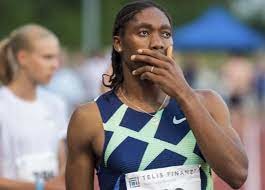
The current guideline from 2015 states that trans-women can compete in the women’s category if they choose to reduce their testosterone levels for 12 months below 10 nanomoles per litre.
However, for the IOC to protect the human rights of an intersex or transgender athlete during competition, the policy needs to shift.
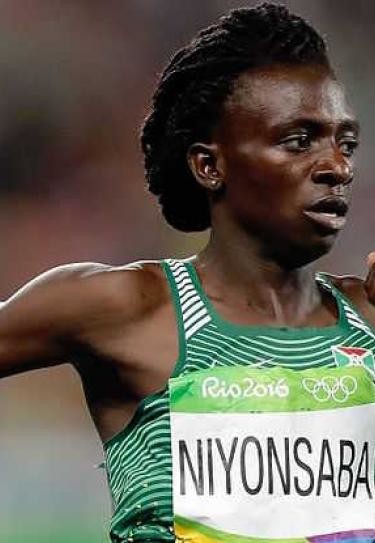
In Tokyo 2020, DSD-athlete Christine Mboma and Francine Niyonsaba had to compete outside of their middle distance events due to high testosterone regulations, and 2016 800m gold medallist Caster Semenya (also a DSD athlete) failed to qualify for the Games outside of her discipline.
The plan is to move away from the current approach to protect and promote intersex and transgender athletes in competitions. The idea is to allow trans-women to compete in the women’s category without having gender reassignment surgery, as long as they can keep their testosterone levels low.
When the IOC and World Athletics choose to make their decision, international federations will have to follow suit to determine specific rules for each sport.
by Marley Dickinson
Login to leave a comment
Caster Semenya's lawyers demand World Athletics drop controversial testosterone rules that forced South African to abandon her attempts to defend her 800m Olympics Title
Caster Semenya's laywers have fresh hope that World Athletics' controversial testosterone laws will be ditched after the governing body's scientists admitted the findings that helped trigger the rules 'could have been misleading'.
Semenya was not able to defend her double Olympic 800m title in the Tokyo Games due to rules prohibiting athletes with differences of sexual development from competing unless they take hormone-lowering medication.
World Athletics are now facing calls to scrap the regulations after their scientists admitted some findings were 'on a lower level of evidence'.
The 2017 findings noted a performance increase in females with high testosterone levels.
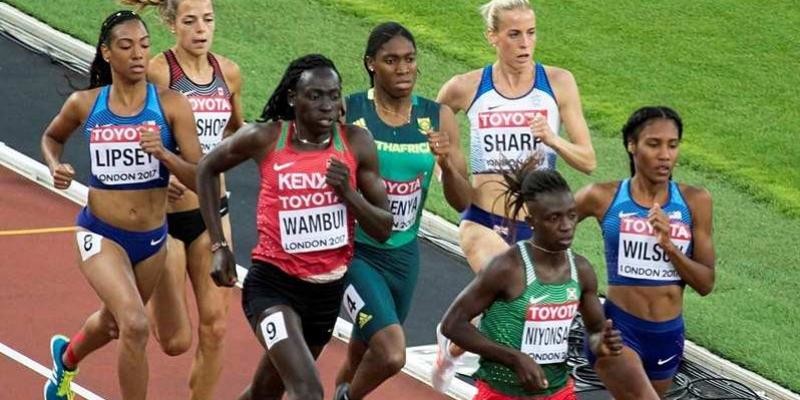
But the British Journal of Sports Medicine has now released a 'correction' to the findings, leading campaigners to argue the rules should be ditched.
In the new report, Stephane Bermon, director of World Athletics' Health and Science Department, and his predecessor Pierre-Yves Garnier, wrote: 'To be explicit, there is no confirmatory evidence for causality in the observed relationships reported. We acknowledge that our 2017 study was exploratory.'
They add: 'With this in mind, we recognise that statements in the paper could have been misleading by implying a causal inference.
'Specifically, 'Female athletes with high fT [testosterone] levels have a significant competitive advantage over those with low fT in 400 m, 400 m hurdles, 800 m, hammer throw, and pole vault.'
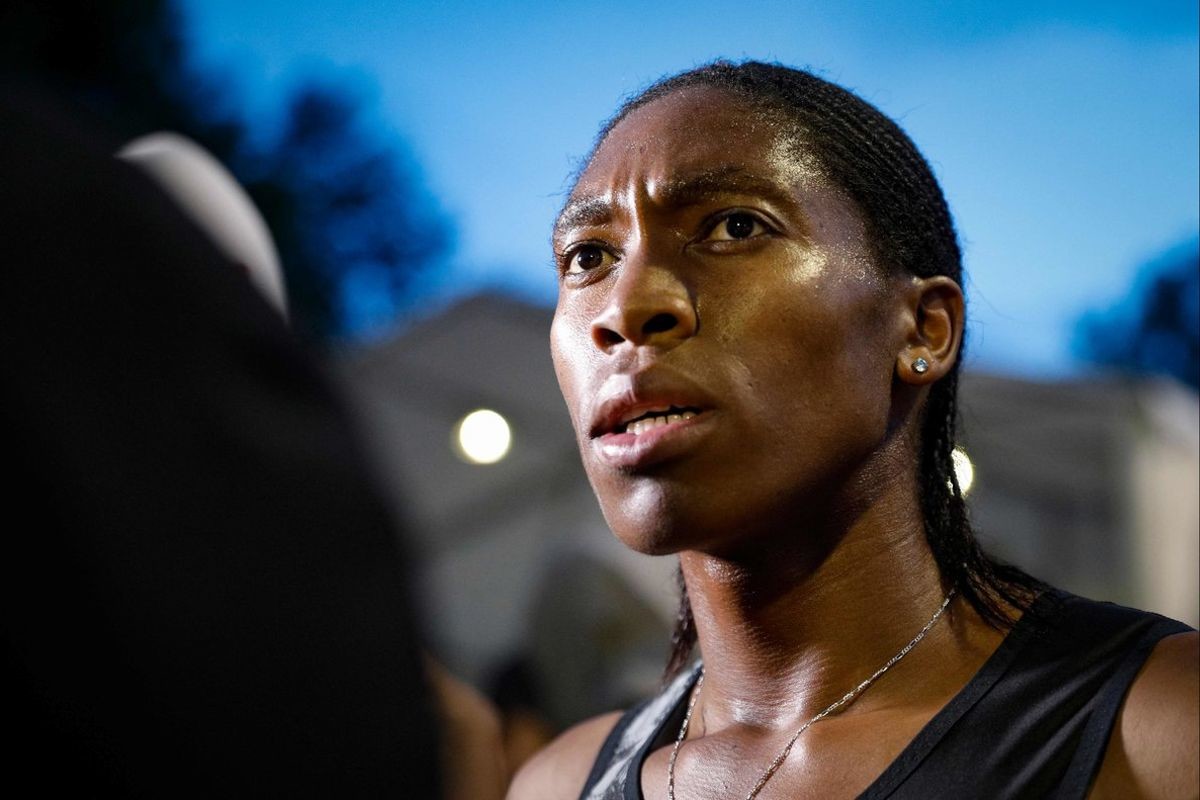
'This statement should be amended to: 'High fT levels in female athletes were associated with higher athletic performance over those with low fT in 400 m, 400 m hurdles, 800 m, hammer throw, and pole vault.'
'This is very significant new information,' Semenya's lawyer Gregory Nott, of Norton Rose Fulbright, told Telegraph Sport.
'We are in the midst of the European Court of Human Rights case and will be discussing with our London QC and the whole legal team how to introduce the information into the proceedings.
'World Athletics have recently given notice of their wish to intervene in the European Court of Human Rights proceedings and we would hope that they will now support setting aside the regulations.
'It is more than surprising that World Athletics did not reveal this evidence before the recent Tokyo Olympics and allow Caster to defend her 800m title.'
Semenya spoke of her disappointment at not being able to compete in Tokyo after losing her appeal to Switzerland's Federal Supreme Court in September last year.
'I am very disappointed. I refuse to let World Athletics drug me or stop me from being who I am,' she said.
by Lewis Steele
Login to leave a comment
Women that have been barred from Olympics for being manly
One day, Annet Negesa was pushing her body to endure and make her the champion she believed she was born to be. On another day, her Olympics dreams were crushed because she was faster, stronger.
Annet Negesa reportedly still harbours intentions to run for her country. She runs every day, with the hope of returning to international competitions one day.
Hers is a case of unfinished business, a dream that was cut short in June 2012 when she received a call from a doctor from track and field’s world governing body telling her, according to the New York Times newspaper - that “she would no longer be competing in the London Olympics because her testosterone levels were too high for competition,” thereby giving her an unfair advantage over other female athletes.
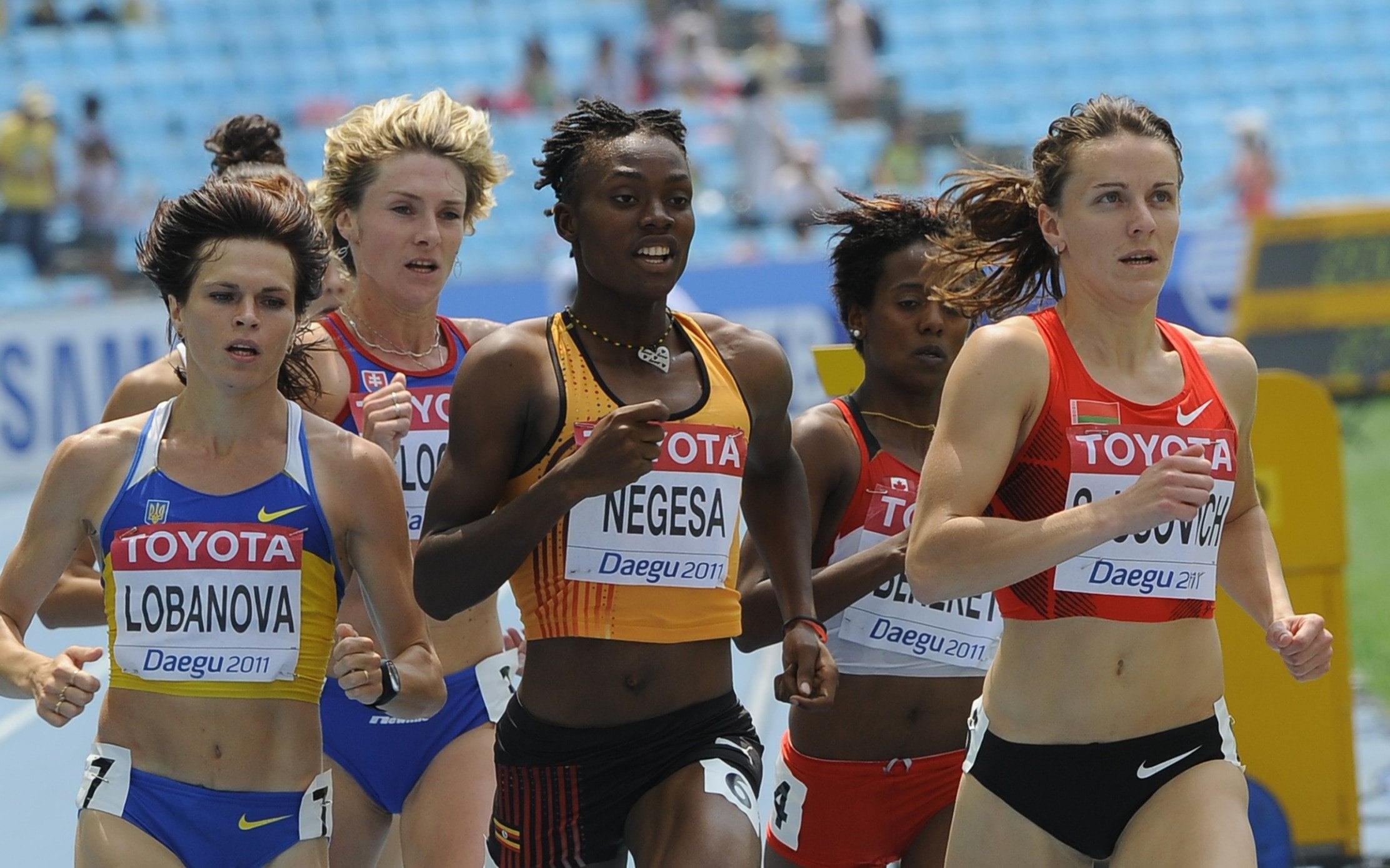
Negesa, 20 then, was one of Uganda’s top athletes. On the back of her London preparations, she set a national record for 800 metres earlier that year at a meet in Netherlands.
She was a three-time national champion and brought home a gold medal at the 2011 All-Africa Games.
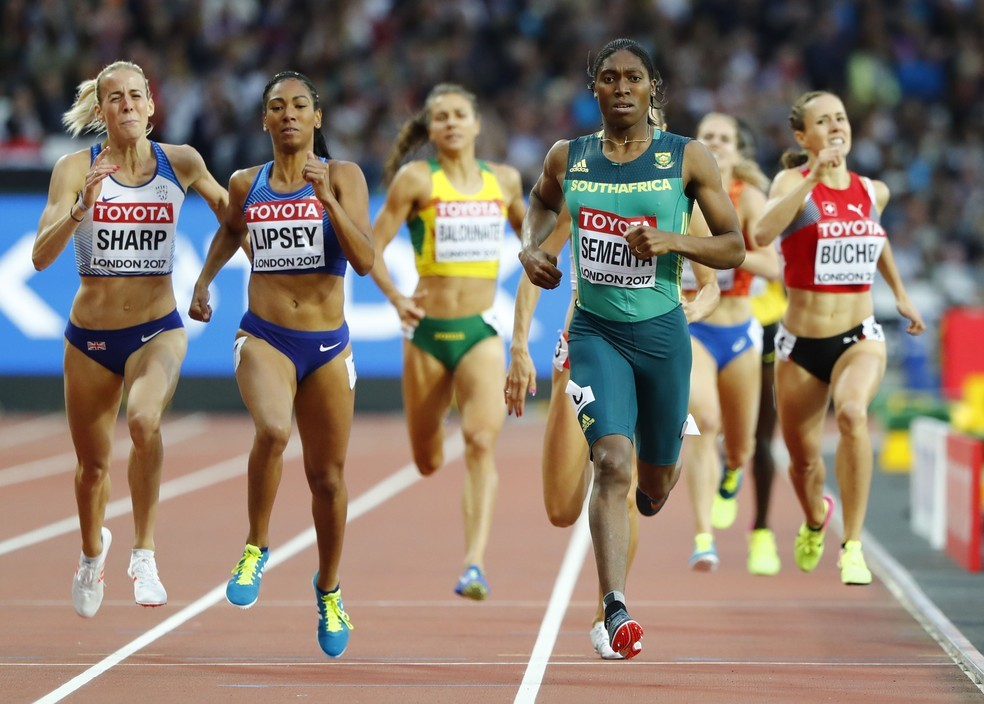
She identifies as female and was born with external female genitalia but also with internal male genitalia that produce levels of testosterone that men do.
Most women, including elite female athletes, have natural testosterone levels of 0.12 to 1.79 nanomoles per litre, according to World Athletics. The typical male range after puberty is reportedly much higher, at 7.7 to 29.4 nanomoles per litre.
After years of litigation, the Court of Arbitration for Sport (CAS) in 2019 upheld World Athletics’ testosterone restrictions for female athletes in races with distances from 400 meters to the mile after renowned athlete Caster Semenya (we shall get to her later in the article), filed an appeal.
The court ruled by a 2-to-1 vote that the restrictions were indeed discriminatory but also a “necessary, reasonable and proportionate” means of achieving the World Athletics goal of preserving a level playing field in women’s track events.
Therefore intersex athletes (these are said to be roughly one in every 2,000 births), who want to participate in middle-distance women’s track events must take hormone-suppressing drugs and reduce testosterone levels to below five nanomoles per litre (5 nmol/L) for six months before competing, then maintain those lowered levels.
Unfortunately, the intervention seems to have come seven years late for Negesa, who claims World Athletics physician Dr Stéphane Bermon gave her surgery as her first option to reduce testosterone levels in 2012.
But Negesa has since battled persistent headaches and achy joints that have not allowed her to pursue her career. Her postoperative care, which according to documents seen at the Kampala Hospital by the New York Times should have been recommended in further discussions with Dr Bermon, did not include the kind of hormone treatment that might have helped her body adjust to the change.
After Negesa appeared in a ‘break the silence’ documentary on German television’s ARD network in October 2019, World Athletics issued a statement denying that it participated in or recommended a specific treatment to Negesa.
Third category
Nine years after Negesa’s predicament, another recommendation to World Athletics; to introduce a third category of events in order to allow competitors with high testosterone levels to compete in their preferred disciplines, seems to be gathering steam after Kenyan 800m runner Margaret Wambui was ruled out of the Tokyo 2020 Olympics.
“It would be good if a third category for athletes with high testosterone was introduced; because it is wrong to stop people from using their talents,” Wambui told BBC Sport Africa.
The sport’s governing body, World Athletics, says it has no plans to introduce such a category and will stick to its current classifications of men’s and women’s events.
The idea of a third category in athletics has been floated before, but Wambui is the first athlete to express outright support for the suggestion.
“We would be the first people to compete in that category - so we can motivate others who are hiding their condition,” she said.
Since World Athletics introduced its latest rules governing DSD (disorders of sex development) athletes in 2018, not one of the three athletes who stood on the 800m podium in Rio has contested the distance at a global international championship.
At the 2016 Games, Wambui was beaten to gold by Semenya and silver by Burundi’s Francine Niyonsaba.
“It is sad to see that the whole podium won’t be there.” “They cut short our careers, because that wasn’t our plan. I feel bad that I won’t be in the Olympics because of World Athletics rules,” says Wambui.
by Daily Monitor
Login to leave a comment
Tokyo 2020 Olympic Games
Fifty-six years after having organized the Olympic Games, the Japanese capital will be hosting a Summer edition for the second time, originally scheduled from July 24 to August 9, 2020, the games were postponed due to coronavirus outbreak, the postponed Tokyo Olympics will be held from July 23 to August 8 in 2021, according to the International Olympic Committee decision. ...
more...Top athletes Christine Mboma and Beatrice Masilingi left off Namibian Olympic team over high natural testosterone levels
Two of the world’s top female 400m runners have been discretely scratched from their country’s Olympic team after medical tests indicated they have high natural testosterone levels. Namibia’s Christine Mboma and Beatrice Masilingi, both 18 years old, will not be allowed to compete in the 400m in Tokyo this summer.
Mboma is currently ranked number one in the world at the 400m, after she ran won the 400m at the Irena Szewinska Memorial/Byrdgoszcz cup in Poland on June 30 in a world-leading time of 48.54. Masilingi ran 49.53 at a meet in Zambia in April, which still stands as the third-fastest time run this year.
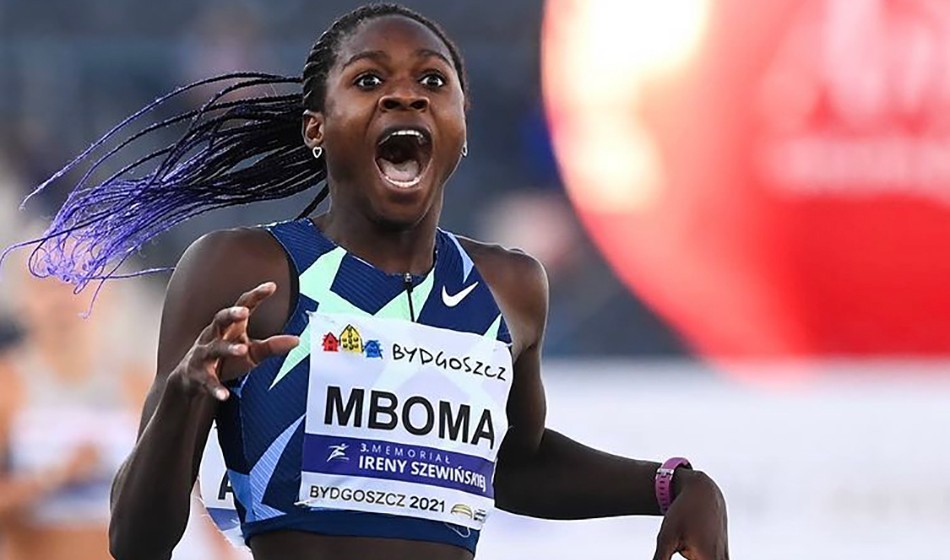
Both women have been found to have naturally high levels of testosterone, but are not DSD athletes and both have XX chromosomes. Still, their hormone levels have rendered them ineligible to compete in any distance ranging from the 400m to the mile. This is the same rule that prevents DSD athletes like South Africa’s Caster Semenya, Burundi’s Francine Niyonsaba and Kenya’s Margaret Wambui from competing in the 800m at the elite level.
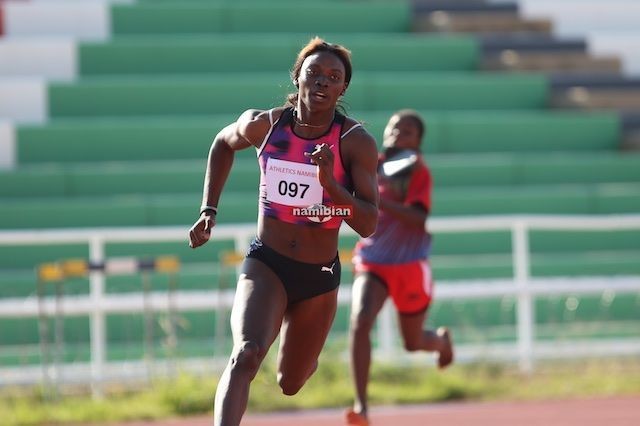
The Namibian Athletic Committee has said in a statement that neither athlete was aware they had this condition, and the country’s athletic federation has said both women will now focus their full attention on the 200m.
Since they were introduced in 2018, the World Athletics testosterone regulations have been hotly debated in the world of elite sports, and Semenya has appealed the decision in several courts. The two-time Olympic 800m champion has lost two appeals, but is currently waiting on a third hearing. For now, however, the rule stands, and all athletes affected by the rule will be forced to compete in different events.
by Brittany Hambleton
Login to leave a comment
Tokyo 2020 Olympic Games
Fifty-six years after having organized the Olympic Games, the Japanese capital will be hosting a Summer edition for the second time, originally scheduled from July 24 to August 9, 2020, the games were postponed due to coronavirus outbreak, the postponed Tokyo Olympics will be held from July 23 to August 8 in 2021, according to the International Olympic Committee decision. ...
more...Caster Semenya fails to make olympic qualifiyng mark in 5,000m in latest attempt
Caster Semenya failed in her latest attempt to achieve an Olympic qualifying time for the 5,000m.
The South African finished in fourth, running 15:50.12 in Belgium which is short of the 15:10.00 qualifying mark required for Tokyo 2020.
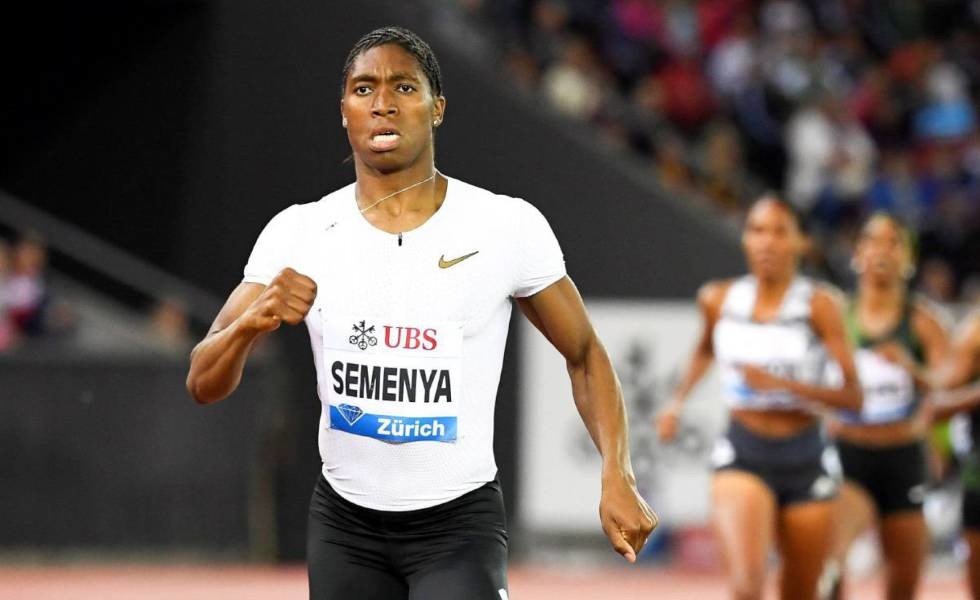
Semenya would not have been allowed to compete in Tokyo even if she achieved the time, the deadline of June 29 set by governing body World Athletics has passed with no rooms for exceptions.
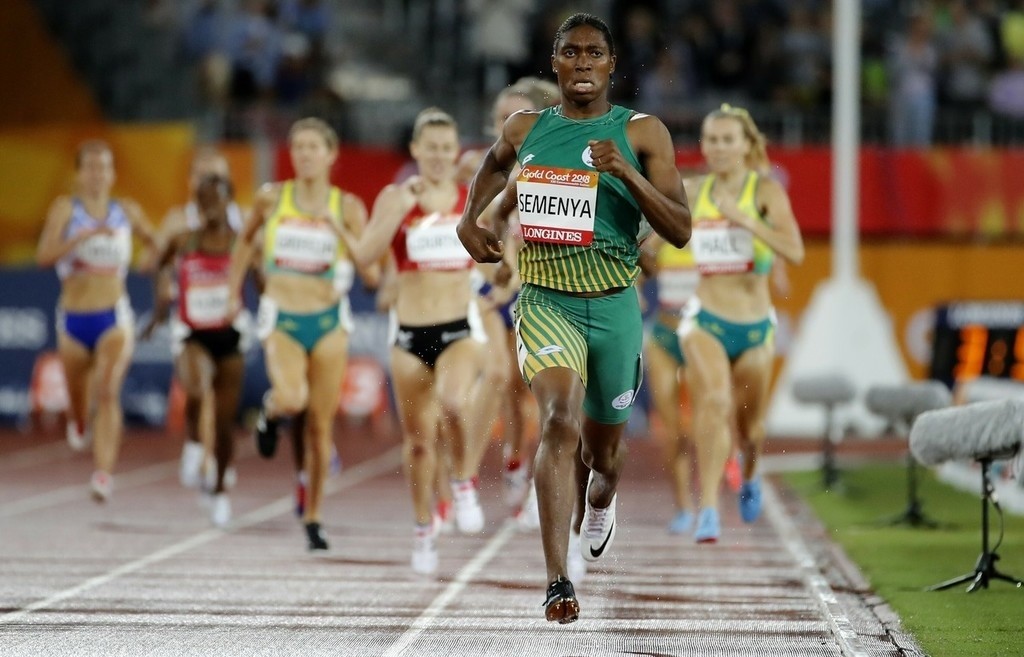
"We did double check with World Athletics about the deadline and it was cast in stone. There would have been no special grace for Caster," Athletics South Africa spokesman Sifiso Cele said.
Semenya ran 15:52.28 in April, 15:32.15 in May and 15:57.12 earlier this month.
The 30-year-old can only run in 100m, 200m or long-distance races and said in February she was challenging the testosterone policy at the European Court of Human Rights with a third legal appeal.
No date has been set for her case with it likely to be heard after the Tokyo Olympics gets underway on July 23.
by Eurosport
Login to leave a comment
Tokyo 2020 Olympic Games
Fifty-six years after having organized the Olympic Games, the Japanese capital will be hosting a Summer edition for the second time, originally scheduled from July 24 to August 9, 2020, the games were postponed due to coronavirus outbreak, the postponed Tokyo Olympics will be held from July 23 to August 8 in 2021, according to the International Olympic Committee decision. ...
more...Time is running out for Caster Semenya as African Championships have been cancelled
The African Athletics Championships in Lagos have been cancelled because of the COVID-19 pandemic, removing another avenue for South African runner Caster Semenya to qualify for the Tokyo Olympics.
The event was scheduled for Lagos later this month after Nigeria had stepped in at the last moment to replace Algeria as hosts, but the Nigerian government has disallowed the event due to COVID-19 concerns.
Semenya, who is hoping to qualify for the 3000m and 5000m races, is waiting on a ruling from the European Court of Human Rights over her testosterone-related ban from her preferred races of 800m and 1500m.
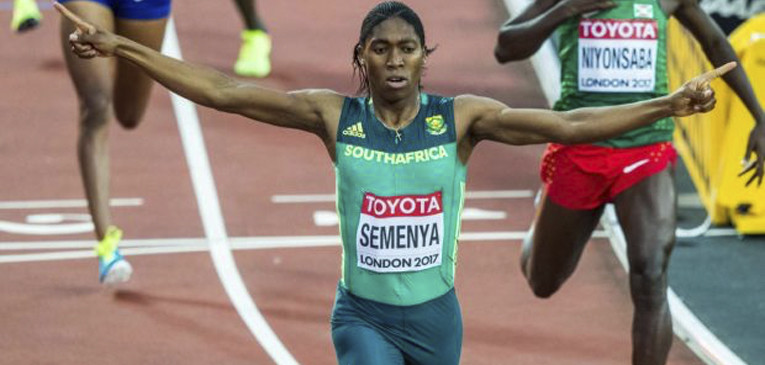
She had been intending to use the African Championships to qualify in the 5000m, after failing to do so at a recent meet in Pretoria.
The Confederation of African Athletics (CAA) said on Tuesday: "It is with great regret that we announce the cancellation of the Senior African Championships which were scheduled in Lagos from June 23-27.
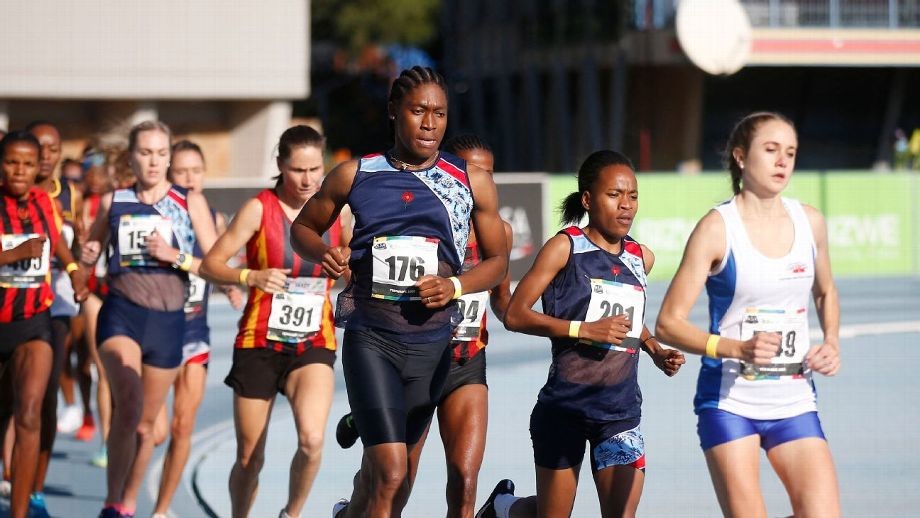
"Unfortunately, Nigeria, which pledged to host, has since told us their authorities have not given permission to host such a large-scale competition."
While there are no other plans for continental meetings to allow athletes to obtain the required qualification standards for Tokyo, South African athletes still have a number of opportunities to qualify before the cut off date of June 29.
James Moloi, president of Athletics South Africa, said on Tuesday: "Most of Africa and indeed, the major part of the world, is still being held hostage by the pandemic.
"It's a pity, therefore, that our athletes will not be benefitting from the great competition that the African Champs offer and it's unlikely that there will be another opportunity to host the continental event before the Olympic Games.
"However, this is not entirely a lost course for our athletes who are still looking for competition to qualify for the Games as there are several competitions that are available in our domestic calendar at our ASA provinces."
He added of Semenya's races: "KZN Athletics, for instance, will include the 5000m events in their Middle Distance Meeting [on 18 June]."
Travel restrictions make it difficult for athletes to go to meetings in Europe or the US, leaving many African athletes with few options over the next three weeks.
by Lindsay Du Plessis
Login to leave a comment
Tokyo 2020 Olympic Games
Fifty-six years after having organized the Olympic Games, the Japanese capital will be hosting a Summer edition for the second time, originally scheduled from July 24 to August 9, 2020, the games were postponed due to coronavirus outbreak, the postponed Tokyo Olympics will be held from July 23 to August 8 in 2021, according to the International Olympic Committee decision. ...
more...Burundi's Francine Niyonsaba, who changed events due to testosterone rule, runs Olympic qualifier
She ran a time of 14 minutes 54.38, which is also a new national record, as she finished fourth in the race to easily better the Olympic qualifying time of 15:10.00.
It was just her second race over the distance having just missed out on the qualifying standard when she ran 15:12.08 at a meeting in Spain last month.
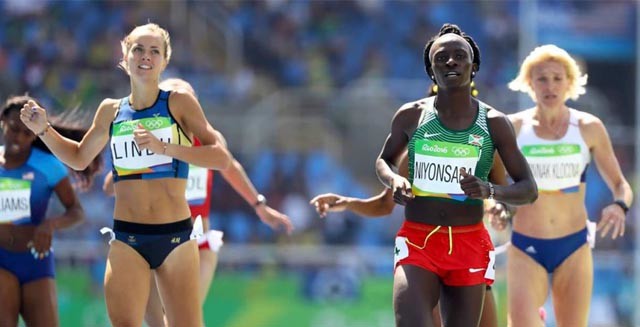
"A challenge is not a barrier. It's an opportunity to do better. Heading to Tokyo with a great qualifying time," she posted on Twitter.
The race was won by Kenya's Beatrice Chebet, who finished just over two seconds ahead of Niyonsaba.
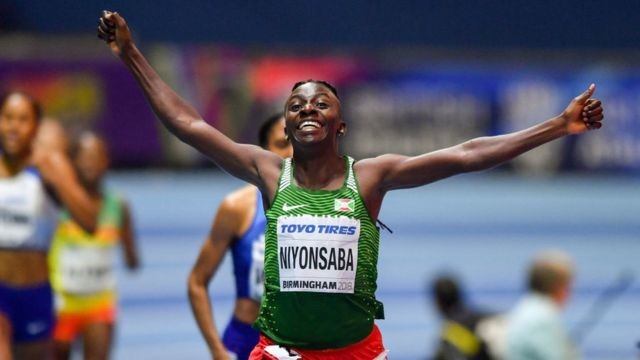
The 28-year-old, who won silver over 800m at the 2016 Games in Rio, has decided to move up to the long distance event rather than taking testosterone-reducing drugs.
Under the latest World Athletics regulations Niyonsaba is classified as having 'Differences of Sexual Development' - or 'DSD' - and so is not allowed to compete in events between 400m and a mile without taking testosterone-reducing drugs.
At the same meeting on the outskirts of Paris Burkina Faso's Hugues Fabrice Zango continued his good form with another win on the triple jump with a leap of 17.67 metres.
Ivory Coast's Marie Josee Ta Lou won the women's 100m in a time of 11.06 seconds just ahead of The Gambia's Gina Bass in 11.30.
Ta Lou's compatriot Arthur Cisse was victorious in the men's event clocking a time of 10.11 seconds.
Kenya's Abel Kipsang was the other African winner on the night in the men's 1500m as he finished ahead of compatriot Charles Simotwo, with Morocco's Brahim Kaazouzi in third place.
On Friday South Africa's Caster Semenya, Niyonsaba's great rival over 800m and another athlete classified as DSD, finished outside the qualifying mark for the 5,000m.
The 30-year-old finished in 15 minutes 32.15 seconds at meeting in Durban - 22.15secs outside the qualifying time.
It was her second bid to qualify for the 2020 Tokyo Olympics.
by Sport Africa
Login to leave a comment
Tokyo 2020 Olympic Games
Fifty-six years after having organized the Olympic Games, the Japanese capital will be hosting a Summer edition for the second time, originally scheduled from July 24 to August 9, 2020, the games were postponed due to coronavirus outbreak, the postponed Tokyo Olympics will be held from July 23 to August 8 in 2021, according to the International Olympic Committee decision. ...
more...South African Caster Semenya runs PB, misses 5,000m Olympic standard by 22 seconds
Olympic and world 800m champion Caster Semenya raced a 5,000m on Friday at a race in her home country of South Africa, and while her 15:32.15 run was a 20-second PB, it was still well off the Olympic standard of 15:10.00.
A 2019 World Athletics ruling bars Semenya, who is an athlete with DSD (differences of sexual development), from competing in races from the 400m up to the mile, so she has set her sights on the 5,000m for the upcoming Tokyo Games.
Since the WA ruling blocked Semenya and other DSD athletes (who have higher-than-normal levels of testosterone) from competing in anything from the 400m to the mile, it gave her a couple of options: drop down to sprint races or jump up to longer runs. A third option offered by WA was for DSD athletes to take medications to lower their testosterone, but Semenya refused to do so.
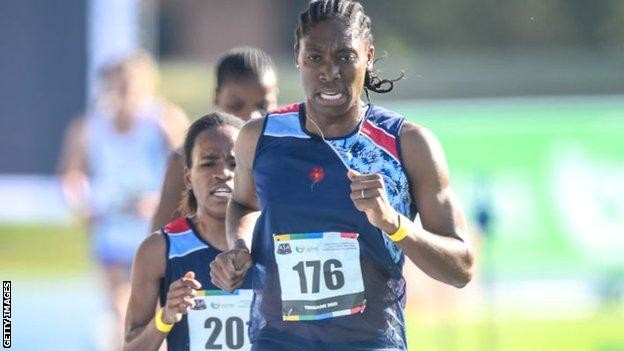
At first, Semenya dabbled in sprints, and in 2020, she got her 200m PB down to 23.49 seconds. This was still well off the Olympic 200m standard of 22.80, though, and Semenya shifted gears once more, this time jumping up to the 5,000m (which is the next-shortest race available to her and other DSD athletes in the Olympic program). She has raced the 5,000m three times in 2021, improving with each run.
First, she ran 16:14.43 in March, finishing more than a minute off Olympic standard. A few weeks later, she broke 16 minutes for the first time in her career, posting a huge PB of 15:52.28. Unfortunately for Semenya, despite the big step toward Olympic standard, this time was still 42 seconds slower than she needed to run. On Friday, she got closer to standard, but she still sits well away from 15:10.00. The Olympic qualifying window closes at the end of June.
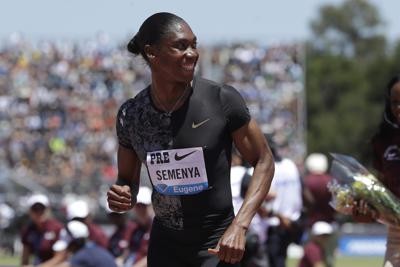
One piece of good news for Semenya is the fact that only one South African woman has hit Olympic standard during this current qualifying period. Dominique Scott ran 14:59.08 at a race in the U.K. in July 2019, which gives her by far the best result among South African women since the qualifying window opened in May of that same year.
This is good for Semenya because it means she doesn’t have to compete with other South African Olympic hopefuls. Each country can only send three men and three women per event to the Olympics, and if three South African women had already hit standard, it would likely mean that Semenya would have to not only run under 15:10.00, but also beat the slowest of those athletes.
Semenya is not the only DSD athlete looking to make the Tokyo Games in the 5,000m — Burundi’s Francine Niyonsaba has also made the jump up in distance. Niyonsaba won silver behind Semenya in the 800m at the Rio Olympics in 2016 and the 2017 world championships. While Semenya was the stronger of the two in the 800m, it looks like Niyonsaba is better at the 5,000m, as she recently ran a Burundian national record of 15:12.08. This time won’t get her into the Olympics, but seeing as she’s just two seconds off standard, she appears to have a much better shot at making it to Tokyo than Semenya does.
by Ben Snider-McGrath
Login to leave a comment
Francine Niyonsaba runs 5,000m debut, finishes just off Olympic standard in 15:12.08
World and Olympic 800m silver medallist Francine Niyonsaba of Burundi raced a 5,000m in Spain on May 22, and she finished with a national record of 15:12.08.
Niyonsaba’s result was just off the Olympic standard of 15:10.00, and it was her first official race over 5,000m. Like South Africa’s Caster Semenya, Niyonsaba is an athlete with DSD (differences of sexual development), and a 2019 World Athletics ruling prevents her from competing in any events from 400m up to the mile.
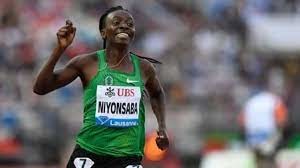
Niyonsaba, Semenya and other DSD athletes (who have higher-than-usual rates of testosterone) had to make a tough decision when WA barred them from competing in certain events. They could take hormone-suppressing drugs to lower their testosterone levels, drop down in distance to compete in sprinting events like the 100m and 200m or jump up to races longer than a mile. Refusing to take any hormone suppressants, Semenya has spent the past couple of seasons testing out both ends of the racing spectrum, running races as short as 200m and as long as 5,000m.
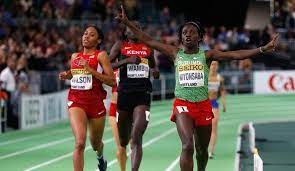
Semenya has made progress in both arenas, but her PBs of 23.49 seconds in the 200m and 15:52.28 in the 5,000m are well off the Olympic standards of 22.80 and 15:10.00. Niyonsaba, however, has set her sights solely on the 5,000m, and her undivided focus on the longer race seems to have paid off, as she is now just a couple of seconds away from qualifying for the Tokyo Games.
Niyonsaba announced her plans to compete in the 5,000m in February, and she now has a little over a month to lower her PB by a couple of seconds in order to qualify for the Summer Games. (The Olympic qualifying window closes on June 29.) After the race, Niyonsaba took to social media to express her excitement in the run, writing, “So happy to be back in international competition with a great debut of 15:12 in the 5K..it was a big challenge but I faced it with great determination and perseverance.”
by Ben Snider-McGrath
Login to leave a comment
South African Caster Semenya won 5,000m race, falls short of Tokyo qualifying time
Double Olympic 800 meters champion Caster Semenya moved closer to qualifying for the 2020 Tokyo Games in a new event after defending her South African championships 5,000m title in Pretoria Thursday.
Semenya trimmed nearly 15 seconds off her personal best by crossing the line in 15 minutes 52.28 sec - 42.28 sec outside the Tokyo qualifying time of 15:10.
The race was staged at an altitude of 1,339 m (4,393 feet) and Semenya is considering running the same distance at sea level, where the air is less thin and times generally faster.
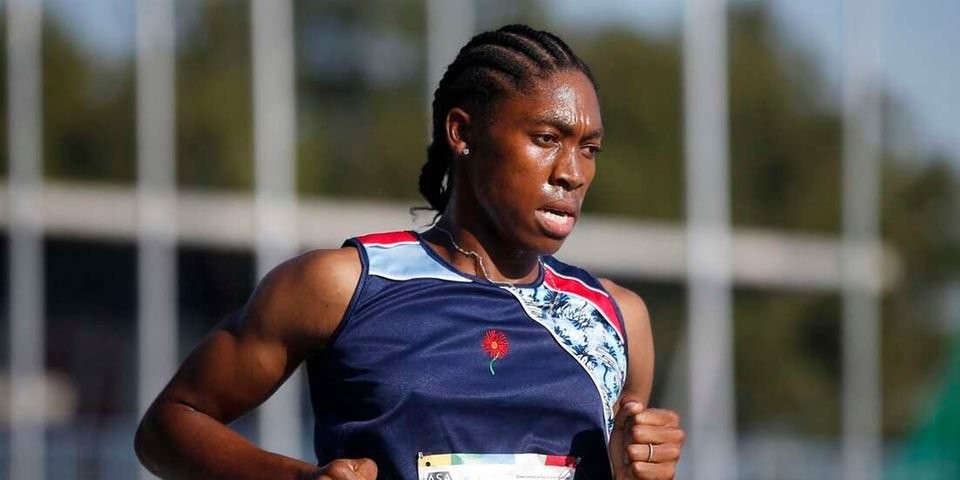
"If the guys in Durban (sea-level city) do something in May, I might run," Semenya said after her victory.
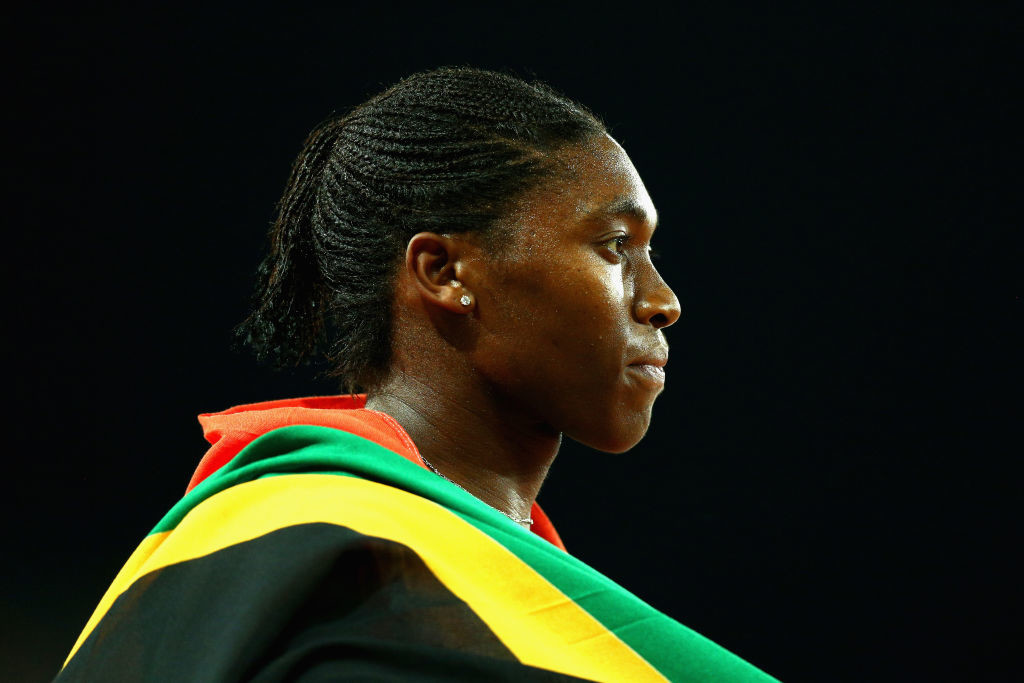
The qualifying deadline for Tokyo is June 29 with the Games scheduled from July 23 to August 8.
Semenya cannot defend the 800m title in Japan as she refuses to abide by World Athletics' testosterone-reducing regulations covering distances from 400m to the mile.
The South African is among a minority of female athletes who have an unusually high level of testosterone, which gives them added strength.
Two legal bids by the South African to overturn the ban have failed and she has taken her fight to the European Court of Human Rights, who have not indicated when the case will be heard.
"I am pretty happy with how I ran (today) - it is all about having fun. I can't really focus on Tokyo if I'm still building up myself at the moment."
The 30-year-old winner of the London and Rio 800m Olympic gold medals turned the tables on her training partner Glenrose Xaba, who clocked 15:55.25 and had beaten Semenya comfortably in a regional meet two weeks ago.
Last year, Semenya announced she would pursue Olympics 200m qualification.
But the three-time 800m world champion has changed her mind, believing distance races will lengthen her career.
"I am 30 years old and if I were to do sprints it would be a risk to my muscles. In distance (running), there is more time to find consistency," said the three-time world 800m champion.
Login to leave a comment
Caster Semenya ran just the second 5,000m of her racing career on Saturday
South Africa’s Caster Semenya ran just the second 5,000m of her racing career on Saturday, finishing in second place at the AGN Championships in Pretoria. The multiple world and Olympic 800m champion finished in 16:14.43, finishing far back of the race winner and well off the Olympic standard of 15:10.00. She owns a 5,000m PB of 16:05.97 from 2019.
Semenya has DSD (differences of sexual development), and after a 2019 World Athletics ruling, athletes with DSD aren’t allowed to compete in events from the 400m up to the mile. Semenya has challenged this ruling many times, taking it to several courts, but she has been unsuccessful in her attempts to have it overturned.
(Semenya is currently waiting on an appeal with the European Court of Human Rights, which is likely her last chance to get the ruling changed.)
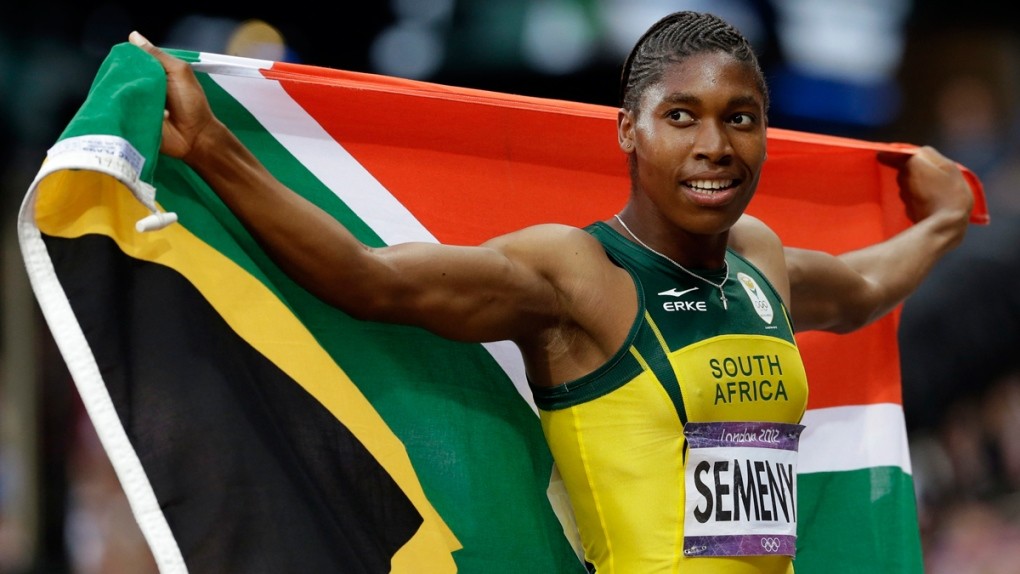
One way Semenya could continue to compete in the 800m would be to take medications to lower her testosterone levels, but she has refused to do so. This leaves her with one option: to compete outside of that banned zone from the 400m up to mile, meaning she has to drop to the 200m or jump to the 5,000m if she wants to race at the Olympics again.
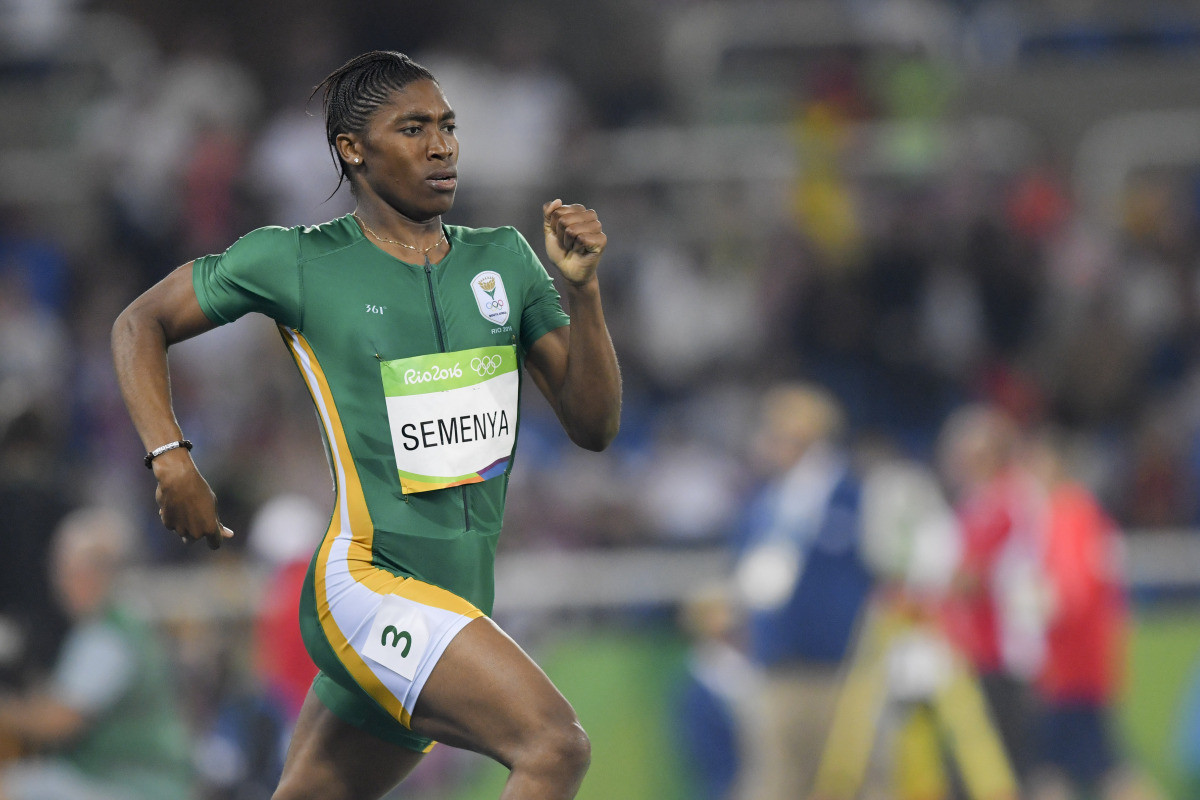
Last year, Semenya entered several sprinting races ahead of the pandemic. She won each of them (even setting the South African 300m record in 36.78) and eventually lowered her 200m PB to 23.49 seconds, still more than half a second off the Olympic standard of 22.80.
Despite the large jump required to qualify for the Olympics, Semenya remained confident, and last May she said she planned to stick with the 200m “no matter what.” Now, with just a few months to go until the Tokyo Games, she seems to have reconsidered, although it doesn’t look like the 5,000m standard will be any easier to reach before the summer.
by Ben Snider-McGrath
Login to leave a comment
Sebastian Coe claims he went out of his way to keep competitive options open for differences in sexual development athletes
World Athletics President Sebastian Coe has defended the decision his Federation took over athletes with differences in sexual development (DSD), claiming he had sought to keep competitive options open in the female category even though a different alternative may have been open to him.
The World Athletics rules, which went into effect in 2019, cap athlete testosterone levels in women’s events from the 400 metres through the mile for athletes with DSD such as South Africa’s Olympic 800m champion Caster Semenya.
World Athletics said that no female athletes would have a level above the cap - five nanomoles per litre - unless they had a DSD or a tumour, and that in the case of athletes in the DSD category testosterone-suppressing medication would need to be taken in order to bring levels into the agreed range.
Semenya has lost appeals at the Court of Arbitration for Sport and the Federal Supreme Court of Switzerland against the World Athletics regulations over the past two years.
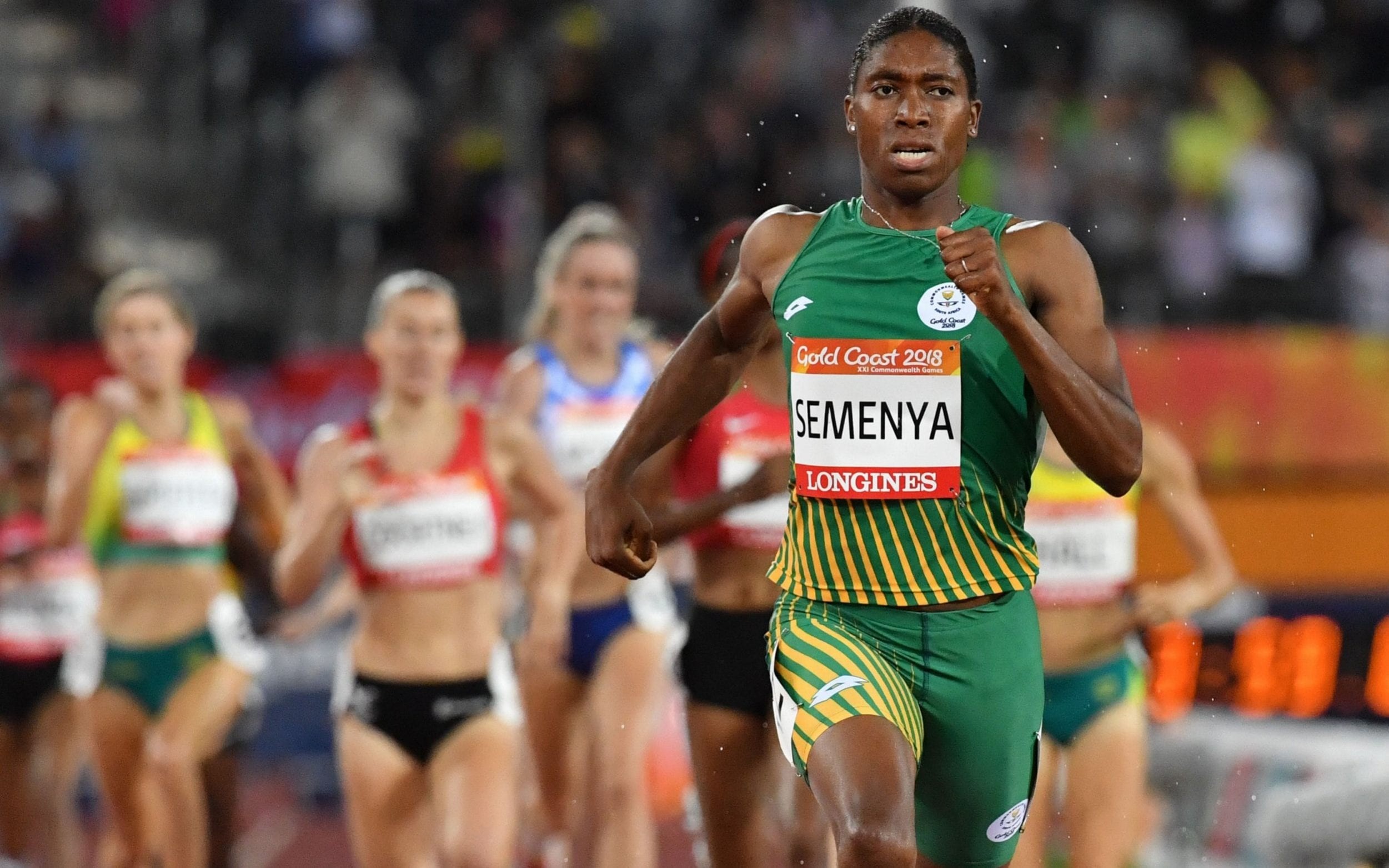
But earlier this month the South African Government’s Department of Sport, Arts and Culture pledged R12 million (£576,600/$803,000/€671,500) to help her appeal to the European Court of Human Rights against her testosterone ruling.
Speaking in a Sports Law Q&A podcast, Coe told British lawyer Jonathan Taylor: "If I’m being hard-nosed about it, if I’d stuck simply to the definitions around biology then I would probably have got support for preventing those athletes from competing at all in a female category,
"I didn’t want to do that."
Coe added: "So finding the right level of controllable testosterone over a period that allowed them to compete at those distances was for me absolutely in alignment with every philosophy, every principle that I went into the sport for.
"But then you get the next challenge about human rights.
"I am very acutely conscious of human rights.
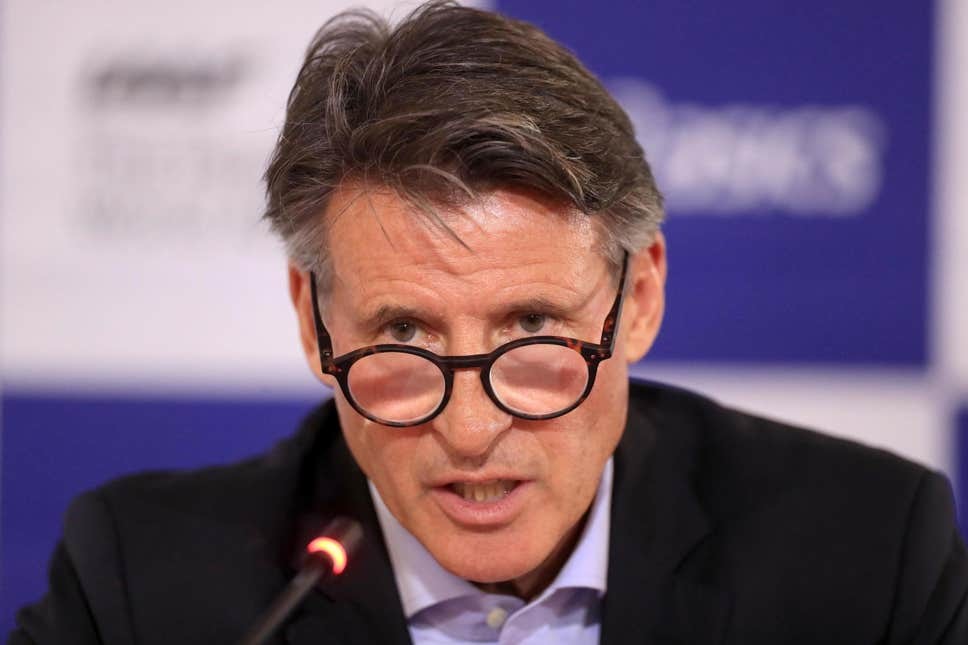
"But the question I then ask is whose human rights are we talking about here?
"Are we talking about the millions of girls that enter athletics and want to feel that they are competing at least on a level footing, do I have a concern about them?
"Yes I do.
"But I also wanted to preserve that in a way that didn’t stigmatise and cause hurt to other athletes.
"It was a difficult decision to make.
"The easier decision would frankly have been to have sat there and done nothing at all, which if I’m being honest is where pretty much the most of sport has gone now.
"We have a similar challenge around transgender and our policy there was in large part driven and in alignment with what we have done around DSD.
"So you don’t come into any sport at the level I chose to get elected at and think you are going to make a lot of friends.
"You do have to do what you think is in the best interests of the sport and possibly that judgement is made way beyond the term that you are serving."
Referring to the decision taken in 2016 to ban Russian athletes competing in the wake of the scandal over organised doping in that country, Coe added: "I know that the approach we took about Russia didn’t leave us in a position of unalloyed joy with other sporting organisations out there.
"When we all went to the Rio Games you could feel the icy blast about what we’d done.
"But I don’t want athletics to ever be on the wrong side of history."
by Mike Rowbottom
Login to leave a comment
Semenya has received financial backing in bid to overturn World Athletics' ruling
Two-time Olympic gold medalist Caster Semenya has received a significant financial boost in her bid to overturn World Athletics' rules to allow her to compete in her favored events at this year’s Tokyo 2020 Games.
The South African Government’s Department of Sport, Arts and Culture has pledged R12 million (£576,600/$803,000/€671,500) to help Semenya appeal to the European Court of Human Rights against her testosterone ruling, according to newspaper The South African.
The funding pledge comes after Athletics South Africa asked the department to support Semenya’s quest to defend her 800 meters Olympic title.
Semenya is hoping to reverse a rule that would force her to take testosterone-suppressing medication to compete in her best events.
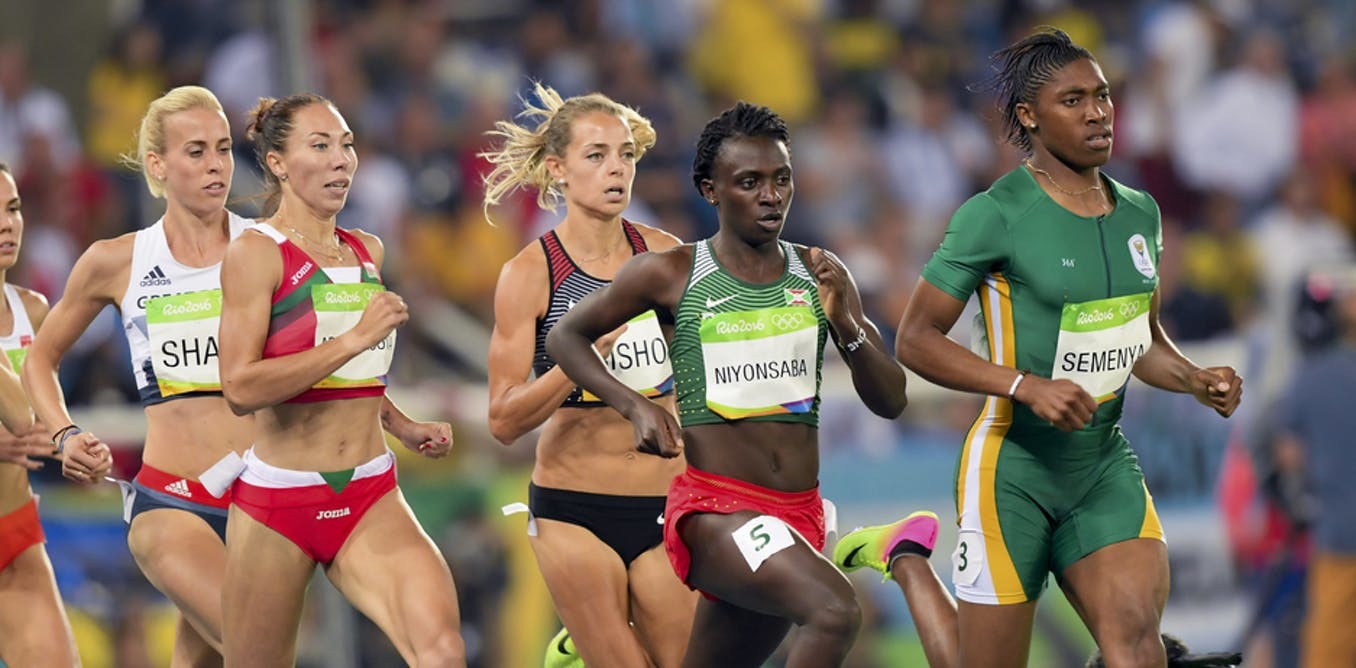
The World Athletics’ rules, which went into effect in 2019, cap athlete testosterone levels in women’s events from the 400m through the mile for athletes with differences of sexual development (DSD).
World Athletics said that no female athletes would have a level above the cap - five nanomoles per litre - unless they had a DSD or a tumor.
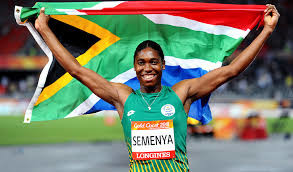
Semenya has lost appeals at the Court of Arbitration for Sport and the Federal Supreme Court of Switzerland against the World Athletics regulations over the past two years.
Last month South Africa’s Government confirmed it was planning to appeal to the European Court of Human Rights.
Yesterday, Sports Minister Nathi Mthethwa pledged to help fund Semenya’s efforts when answering parliamentary questions.
"The department has also been approached by the Department of International Relations and Co-operation (DIRCO) after they received a letter from the Commission for Gender Equality, which expressed interest in the matter and requested support from the Government to co-ordinate solidarity against World Athletics Female Athletes Classification Regulations," Mthethwa said in a report by The South African.
Mthethwa also said the Government had communicated with DIRCO to sponsor a resolution at the Human Rights Council.
"The hope that the appeal at the European Court of Human Rights may be successful is largely informed by this development and as a Government renowned for the protection and promotion of human rights, we should take an interest in the matter, moreover because our own shining star, Ms Semenya, is being targeted," added Mthethwa.
World Athletics has consistently said the rules are necessary to ensure female athletes can participate on fair and equal terms.
Semenya will be supported by a legal team led by Norton Rose Fulbright lawyers Gregory Nott and Patrick Bracher in Johannesburg, as well as Christina Dargham in Paris.
London based barristers Schona Jolly and Claire McCann, and Toronto-based lawyers James Bunting and Carlos Sayao are also part of Semenya’s legal team.
"I hope the European Court will put an end to the longstanding human rights violations by World Athletics against women athletes," said Semenya.
"All we ask is to be allowed to run free, for once and for all, as the strong and fearless women we are and have always been."
by Geoff Berkeley
Login to leave a comment
Caster Semenya has filed an application to the European Court of Human Rights in a final bid to overturn rules preventing her from defending her Olympic 800m title
The double Olympic and three-time world champion last year saw her appeal to Switzerland’s supreme court dismissed against a Court of Arbitration for Sport ruling in 2019 that upheld controversial World Athletics rules for female runners with differences of sexual development (DSD).
Those rules prevent Semenya and other DSD athletes competing internationally at distances from 400 meters to the mile unless they lower their levels of testosterone through medication or surgery - something Semenya says she will not do.
On Thursday, the South African confirmed an application has now been filed to the European Court of Human Rights, as she continues to try different routes to have the regulations overturned following two appeal failures.
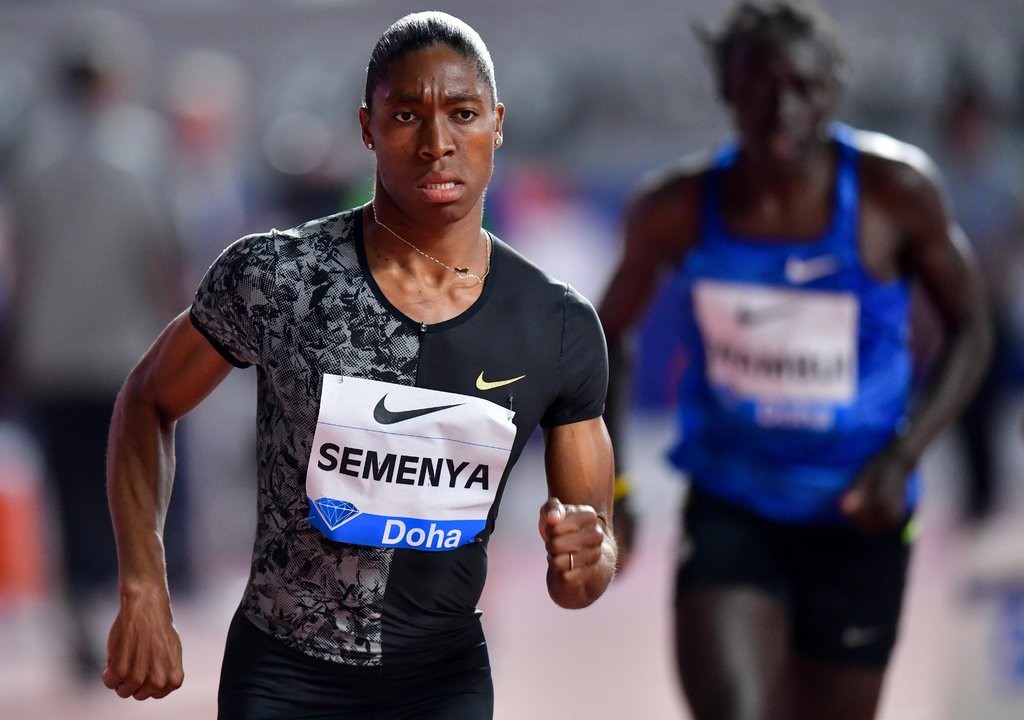
“I hope the European court will put an end to the longstanding human rights violations by World Athletics against women athletes,” said Semenya.
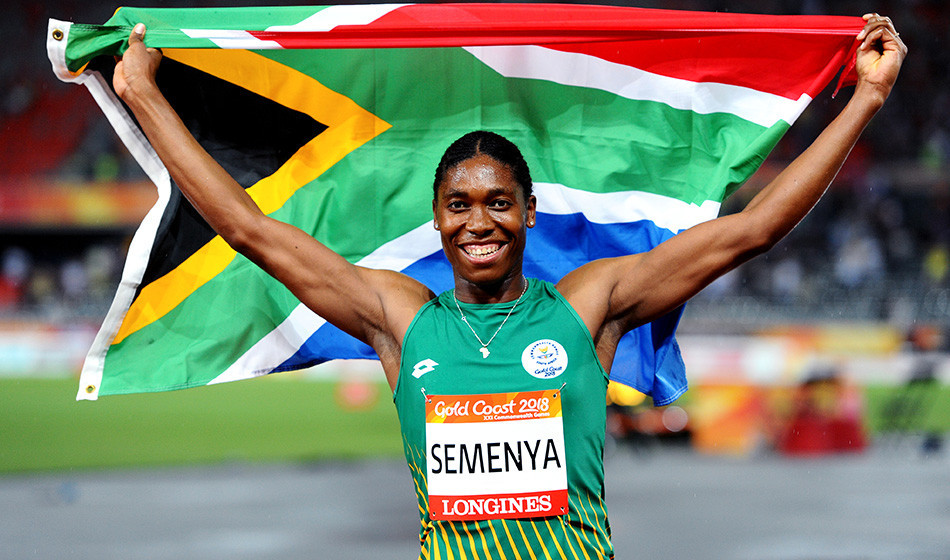
“All we ask is to be allowed to run free, for once and for all, as the strong and fearless women we are and have always been.”
Semenya’s team of lawyers, who span South Africa, France, Britain and Canada, said: “While the timeline of the application remains to be determined by the court, Caster remains ever hopeful that she will soon be allowed to return to the starting line in the 800m at international competition.
“Caster’s indomitable spirit continues to be a source of inspiration to all those fighting alongside her for the equality and dignity of women throughout the world.”
Even if the court disagrees with both the Court of Arbitration for Sport and Switzerland’s supreme court by ruling that World Athletics’ regulations should be overturned, it seems highly unlikely such a decision would be made before the upcoming Tokyo Games given the short time frame.
Last year, Semenya announced her intention to try and compete over 200m - a distance for which she would not need to take any medication - in Japan, although she ranked just 165th in the world in 2020 despite many leading athletes skipping the year due to the coronavirus pandemic.
Speaking when Semenya initially announced her intention to take the case to the European Court of Human Rights last year, World Athletics said: “For many years World Athletics has fought for and defended equal rights and opportunities for all women and girls in our sport today and in the future.
“Throughout this long battle, World Athletics has always maintained that its regulations are lawful and legitimate, and that they represent a reasonable, necessary and proportionate means of ensuring the rights of all female athletes to participate on fair and equal terms.
by Bem Bloom
Login to leave a comment
2016 Olympic 800m silver medalist Francine Niyonsaba bids to race 5,000m at Tokyo Olympics
Francine Niyonsaba, the 2016 Olympic silver medalist in the women’s 800m, announced this week that she will be attempting to qualify for the Tokyo 2021 Olympics in the 5,000m after being barred from running any event between 400m and the mile unless she takes testosterone-suppressing measures.
The 27-year-old from Burundi finished in second place behind Caster Semenya at both the 2016 Olympics and the 2017 world championships, and both athletes (along with 2016 Olympic bronze medallist Margaret Wambui) have been at the centre of an ongoing and heated debate about hyperandrogenism in women’s sport. In April 2018, the IAAF announced that any athlete who has Differences of Sexual Development (DSD) will be ineligible to compete in any event between the 400m and the mile. Having DSD means that the athlete has levels of circulating testosterone (in serum) that are five nanomoles/litre or above and is androgen-sensitive.
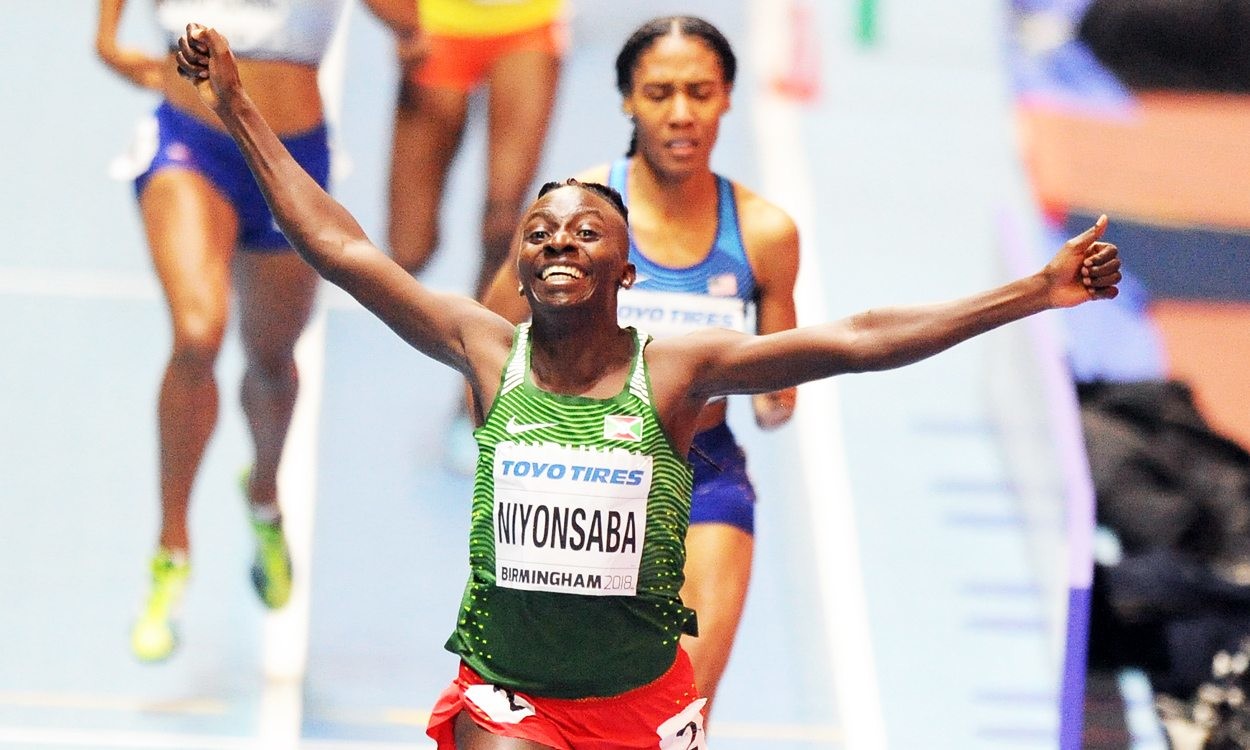
According to the regulations, if an athlete with a DSD wishes to compete in any of the restricted events, she must fulfill the following criteria:
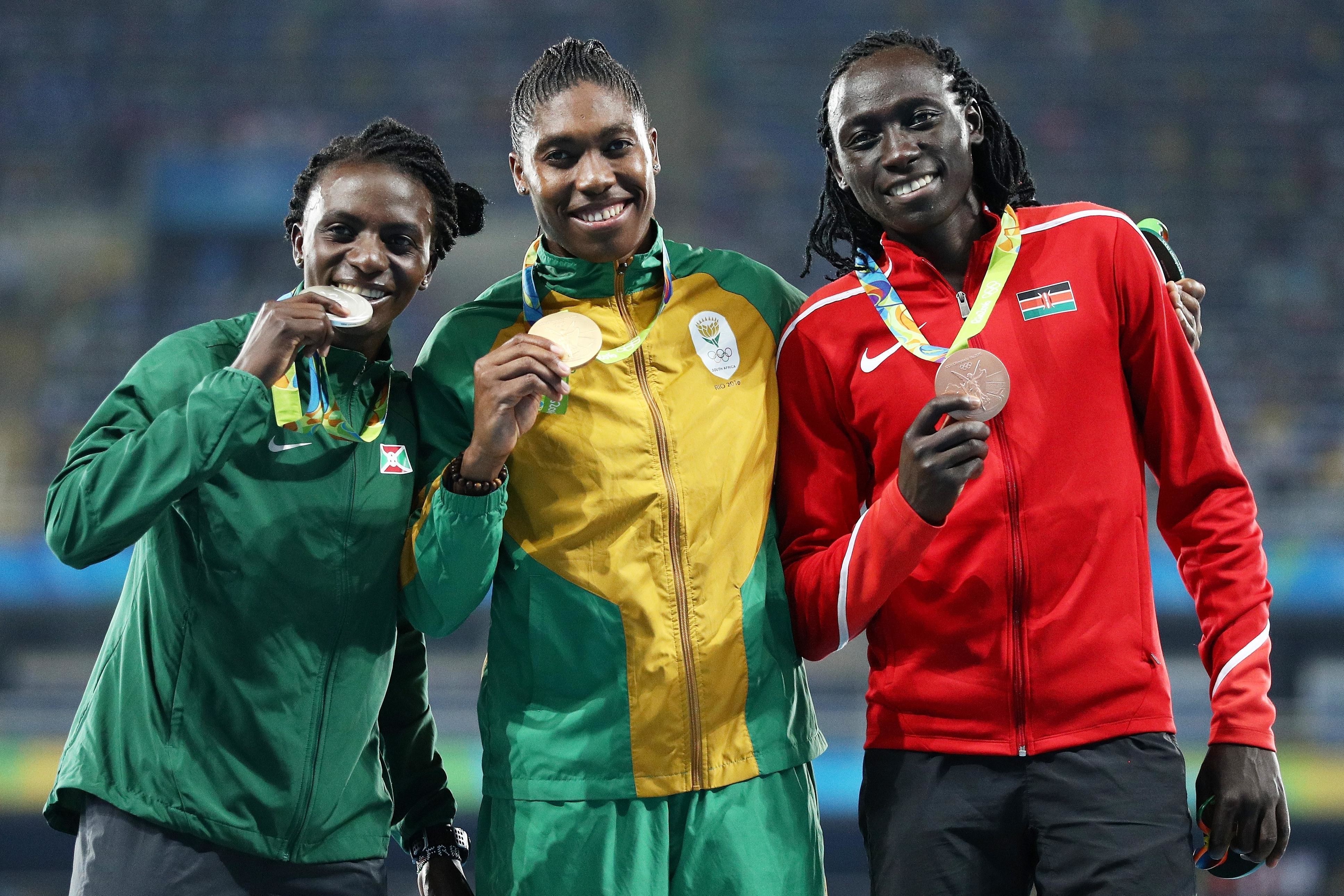
(a) she must be reconized at law either as female or as intersex (or equivalent);
(b) she must reduce her blood testosterone level to below five nmol/L for a continuous period of at least six months (e.g., by use of hormonal contraceptives); and
(c) thereafter she must maintain her blood testosterone level below five nmol/L continuously (ie: whether she is in competition or out of competition) for so long as she wishes to remain eligible.
In light of these new restrictions, many DSD athletes, including Semenya and Niyonsaba, have instead chosen to compete in other events. Semenya has previously said she is bidding to make the Tokyo Olympics in the 200m, while Niyonsaba has chosen to jump up in distance. In 2019 she alluded to this decision in an interview with the Olympic Channel. When the interviewer asked her what she would do if she was forced to move up in distance, her response was “I can even run the marathon.”
“Running to get good results is just about training,” she said. “Nothing else. I’m always saying ‘be what you are, whatever you do.’ That’s how you get to success.”
She added that she will keep her vision and her passion because she loves running, and she will not stop. According to her Instagram, Niyonsaba recently ran a 10K cross-country race in 33:45, and while it doesn’t translate directly to the track, she was not far off the Olympic 10,000m qualifying standard of 31:25. Certainly the world of track will be watching to see what she does next, but with her determination, we expect great things.
“In my dream, I want to retire with the gold medal,” she said. “I know… I want to retire with the gold medal.”
by Brittany Hambleton
Login to leave a comment
Tokyo 2020 Olympic Games
Fifty-six years after having organized the Olympic Games, the Japanese capital will be hosting a Summer edition for the second time, originally scheduled from July 24 to August 9, 2020, the games were postponed due to coronavirus outbreak, the postponed Tokyo Olympics will be held from July 23 to August 8 in 2021, according to the International Olympic Committee decision. ...
more...Two-time Olympic 800m champion Caster Semenya takes a new step in appeal
Two-time Olympic 800m champion Caster Semenya‘s lawyer said her team will take her case to the European Court of Human Rights, hoping to reverse a rule that would force her to take testosterone-suppressing measures to compete in her best events.
“We will be taking World Athletics to the European Court of Human Rights, and public support goes a long way to help show how the rules from World Athletics are against public interest,” Greg Nott said in a statement Tuesday. “With growing support from institutions and bodies across the globe, we remain hopeful that World Athletics will see the error it has made and reverse the prohibitive rules which restrict Ms. Semenya from competing.”
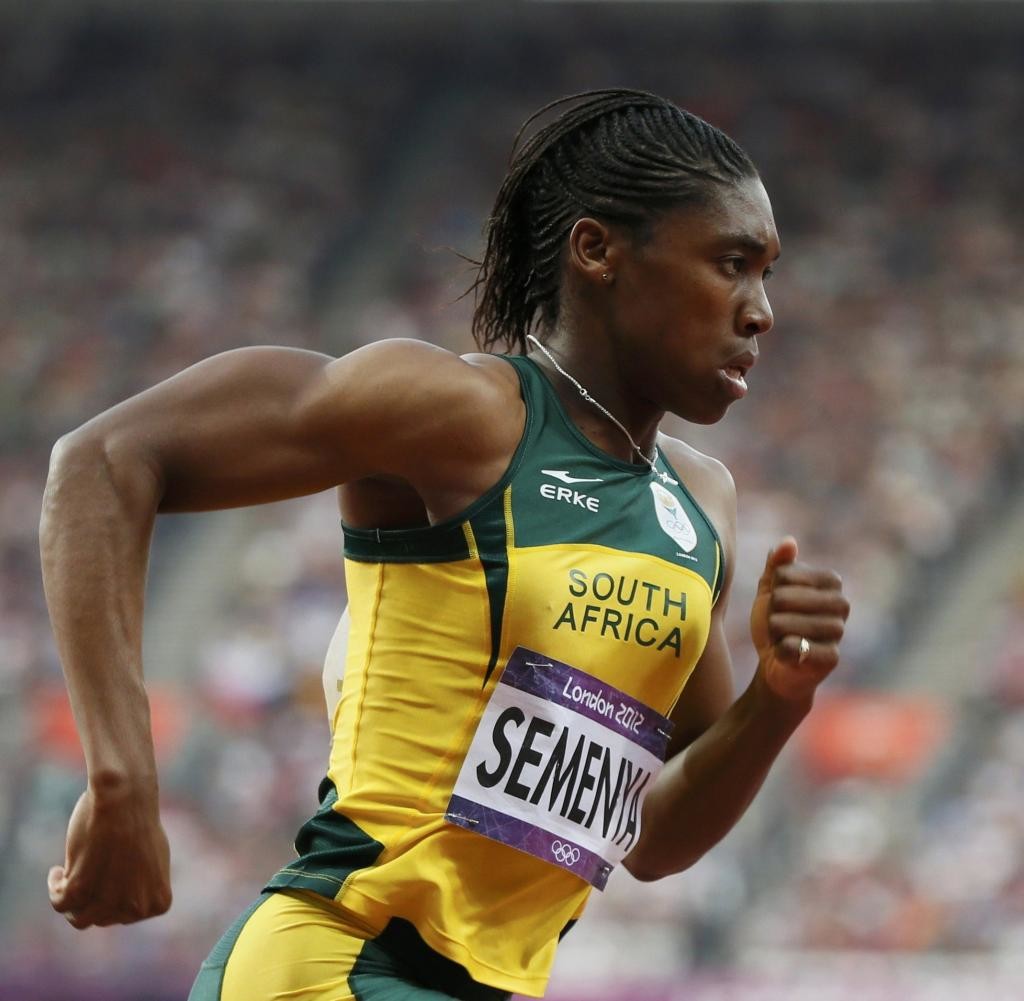
In the last two years, Semenya lost appeals through the Court of Arbitration for Sport and the Federal Supreme Court of Switzerland.
Semenya said she refused “to let World Athletics drug me or stop me from being who I am,” in a press release in September, after losing her Swiss court appeal. “Excluding female athletes or endangering our health solely because of our natural abilities puts World Athletics on the wrong side of history. I will continue to fight for the human rights of female athletes, both on the track and off the track, until we can all run free the way we were born. I know what is right and will do all I can to protect basic human rights, for young girls everywhere.”
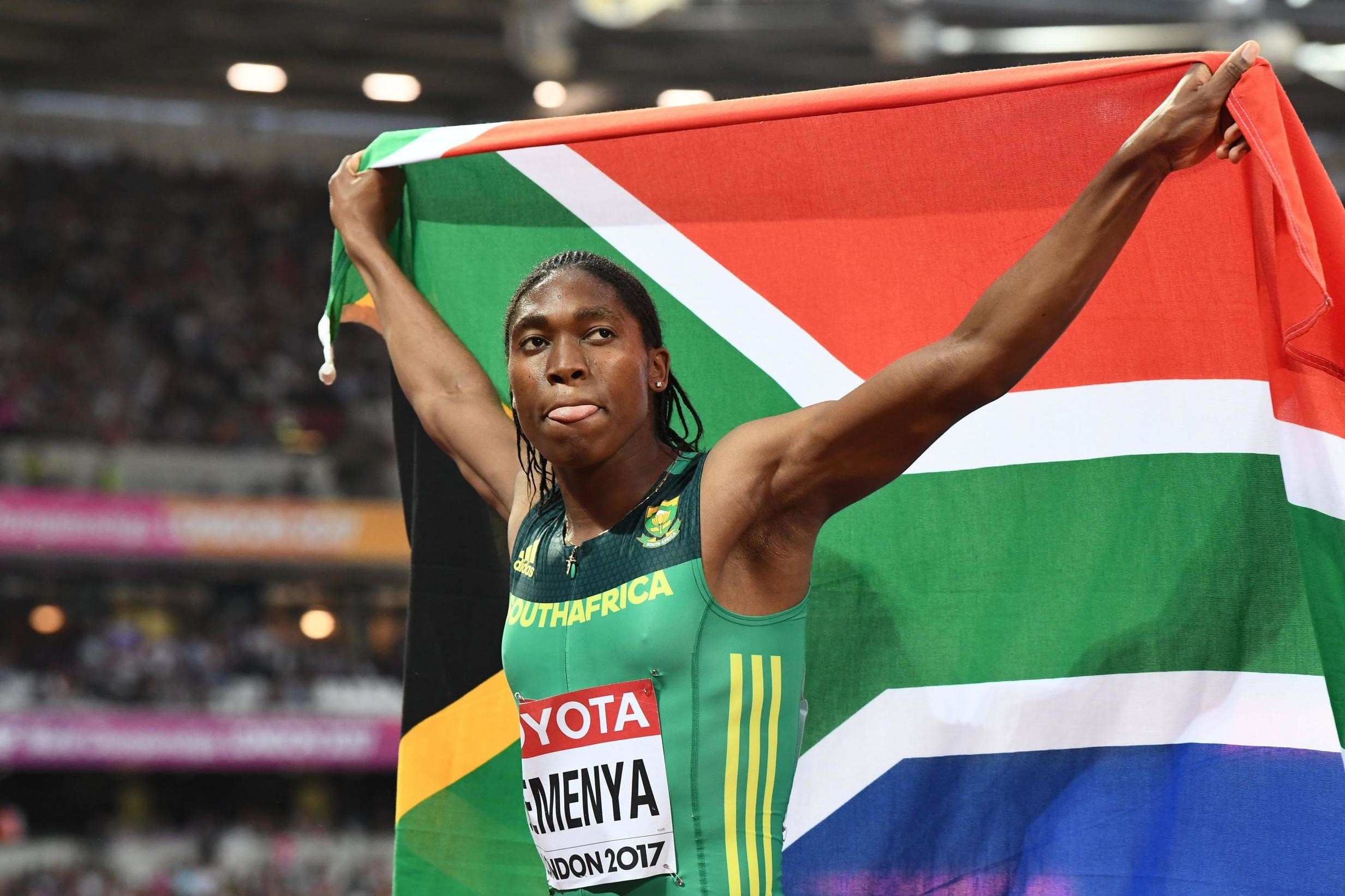
The World Athletics rule, which went into effect in 2019, caps athlete testosterone levels in women’s events from the 400m through the mile for athletes with differences of sexual development (DSD). World Athletics said that no female athletes would have a level above the cap — five nanomoles per liter — unless they had a DSD or a tumor.
“Throughout this long battle, World Athletics has always maintained that its regulations are lawful and legitimate, and that they represent a fair, necessary and proportionate means of ensuring the rights of all female athletes to participate on fair and equal terms,” World Athletics said in a statement after the Swiss court ruling. “It has rejected the suggestion that they infringe any athlete’s human rights, including the right to dignity and the right to bodily integrity.”
Last March, Semenya announced she switched to the 200m, a distance outside of the new testosterone-cap rule, to pursue Tokyo Olympic qualification. Her personal-best 200m time is shy of automatic Olympic qualification.
Semenya is undefeated at 800m since the start of 2016. She and the other two Rio 800m medalists have said they are affected by the new rule.
by OlympicTalk
Login to leave a comment
Semenya and Van Niekerk among Athletics South Africa preparatory Olympic squad
Olympic champions Caster Semenya and Wayde van Niekerk are among 43 athletes included in Athletics South Africa’s preparation squad for the Tokyo 2020 Olympic Games.
The preparation squad for the rescheduled Games features 32 men and 11 women, while a further 15 sprinters are in consideration for relay teams.
"We believe that we have assembled a very strong squad and we are confident that all the athletes are capable to be part of the final team, but that will be dependent entirely on them," Athletics South Africa President Aleck Skhosana told SuperSport.
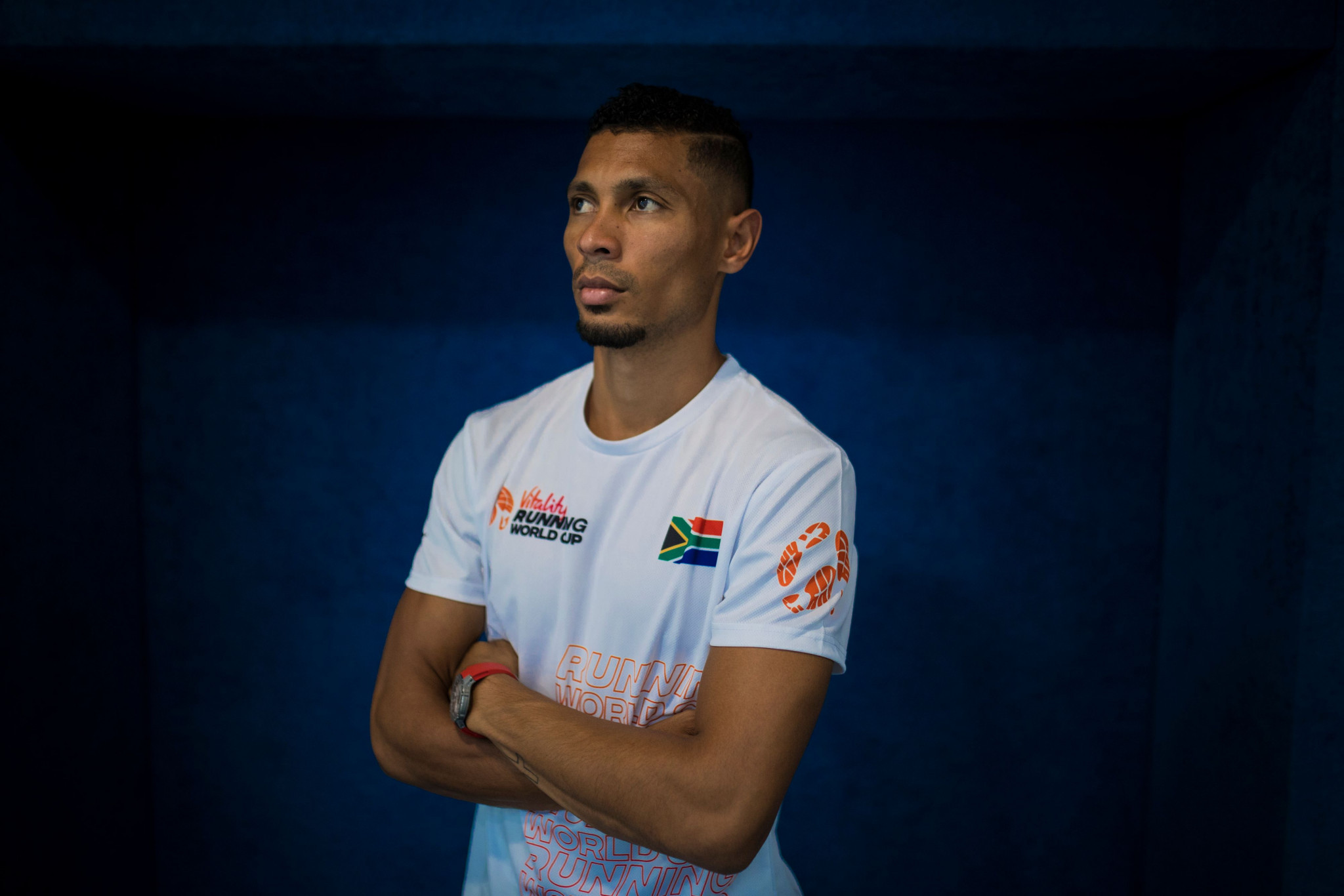
"But they will have to stay focused to achieve that as they train in their various disciplines.
"Given the current global challenge caused by the coronavirus pandemic, we encourage athletes to take advantage of every available opportunity for competition because we don’t know what the future holds in terms of the fight against this virus.
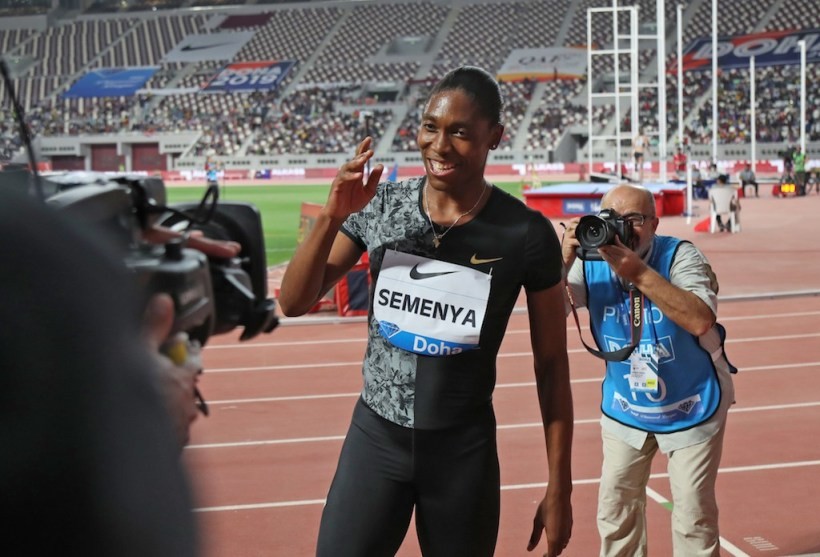
"Whether it will get stronger or whether it will be defeated, we don’t know.
"So, we urge athletes to use opportunities at club, provincial or national level to prepare themselves."
Semenya is among the most well-known athletes in the squad.
The double Olympic champion last month lost an appeal to the Swiss Supreme Court over a World Athletics ruling which means she must take testosterone-reducing medication in order to be eligible to compete.
The current rules force athletes with differences in sexual development (DSD) to take drugs to medically reduce their naturally-occurring testosterone if they want to compete in women's events ranging from 400 meters to a mile.
She had previously appealed to the Court of Arbitration for Sport (CAS) over the policy, but was unsuccessful.
The ruling means Semenya is unable to defend her 800m Olympic crown at the postponed Tokyo 2020 Games unless she takes medication.
Earlier this year Semenya expressed an interest in competing in the 200m at Tokyo 2020, an event not covered by the regulations.
Van Niekerk also features in the squad.
He set the 400m world record of 43.03sec when he earned Olympic gold at Rio 2016.
He competed in his first international race in more than three years last month.
Van Niekerk had been recovering from an anterior cruciate ligament injury picked up in 2017.
The preparatory squad also includes long jumper Luvo Manyonga and javelin thrower Sunette Viljoen, who both won silver medals at Rio 2016.
Manyonga won the men’s long jump world title in 2017.
Reigning Commonwealth Games men’s 100m champion Akani Simbine has been touted as a potential medal contender next year and also is included.
by Michael Pavitt
Login to leave a comment
Tokyo 2020 Olympic Games
Fifty-six years after having organized the Olympic Games, the Japanese capital will be hosting a Summer edition for the second time, originally scheduled from July 24 to August 9, 2020, the games were postponed due to coronavirus outbreak, the postponed Tokyo Olympics will be held from July 23 to August 8 in 2021, according to the International Olympic Committee decision. ...
more...lawyer of Caster Semenya is preparing to approach the European Court of Human Rights to challenge the ban
The lawyer of South Africa’s Olympic 800m champion Caster Semenya, barred from certain races unless she takes hormone suppressants, has told AFP he is preparing to approach the European Court of Human Rights to challenge the ban.
Two-time Olympic gold medalist Semenya has differences of sexual development (DSD), a condition that causes her body to produce elevated testosterone levels.
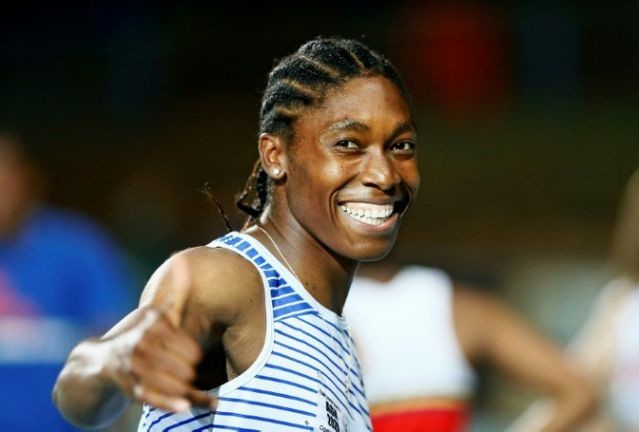
The World Athletics governing body in 2018 banned Semenya and other DSD athletes from races between 400 metres and a mile unless they take hormone-suppressing drugs.
Semenya, 29, unsuccessfully challenged those rules at the Court of Arbitration for Sport (CAS).
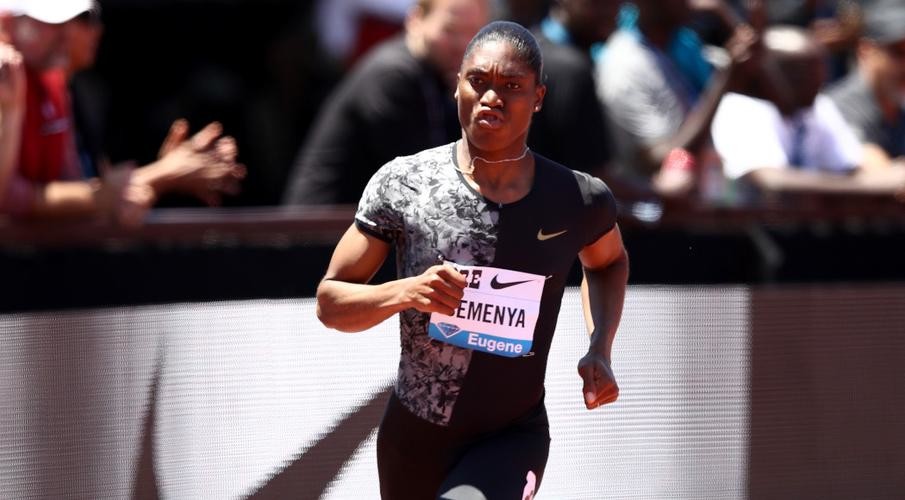
She then turned to Switzerland’s Supreme Court, which dismissed the appeal last month.
“It didn’t come as a complete surprise,” Semenya’s lawyer Gregory Nott said in an interview on Wednesday, noting that Swiss federal court cases were “very difficult to win”.
“As usual in Caster’s being, she took it very strongly and very well,” he recalled. “She is also up for further fighting.”
Nott said a legal team was preparing the paperwork to take the case before the European court (ECHR) — a process that would take “a few more months”.
Semenya would then decide whether to proceed or not, he added.
“We are merely the horse and she is the jockey, so we listen to what Caster has to say,” said Nott. “She has a mind of her own.”
In its judgement, the Swiss court concluded that the CAS decision “cannot be challenged”.
“Fairness in sport is a legitimate concern,” the court said, adding that the ECHR also attached “particular importance to the aspect of fair competition”.
by Agence France Presse
Login to leave a comment
Olympic champ Caster Semenya couldn`t defend 800m title in Tokyo without taking medication
Two-time Olympic champion Caster Semenya lost her long legal battle Tuesday against track and field's rules that limit female runners' naturally high testosterone levels.
Switzerland's supreme court said its judges dismissed Semenya's appeal against a Court of Arbitration for Sport ruling last year that upheld the rules drafted by track's governing body affecting female runners with differences of sex development.
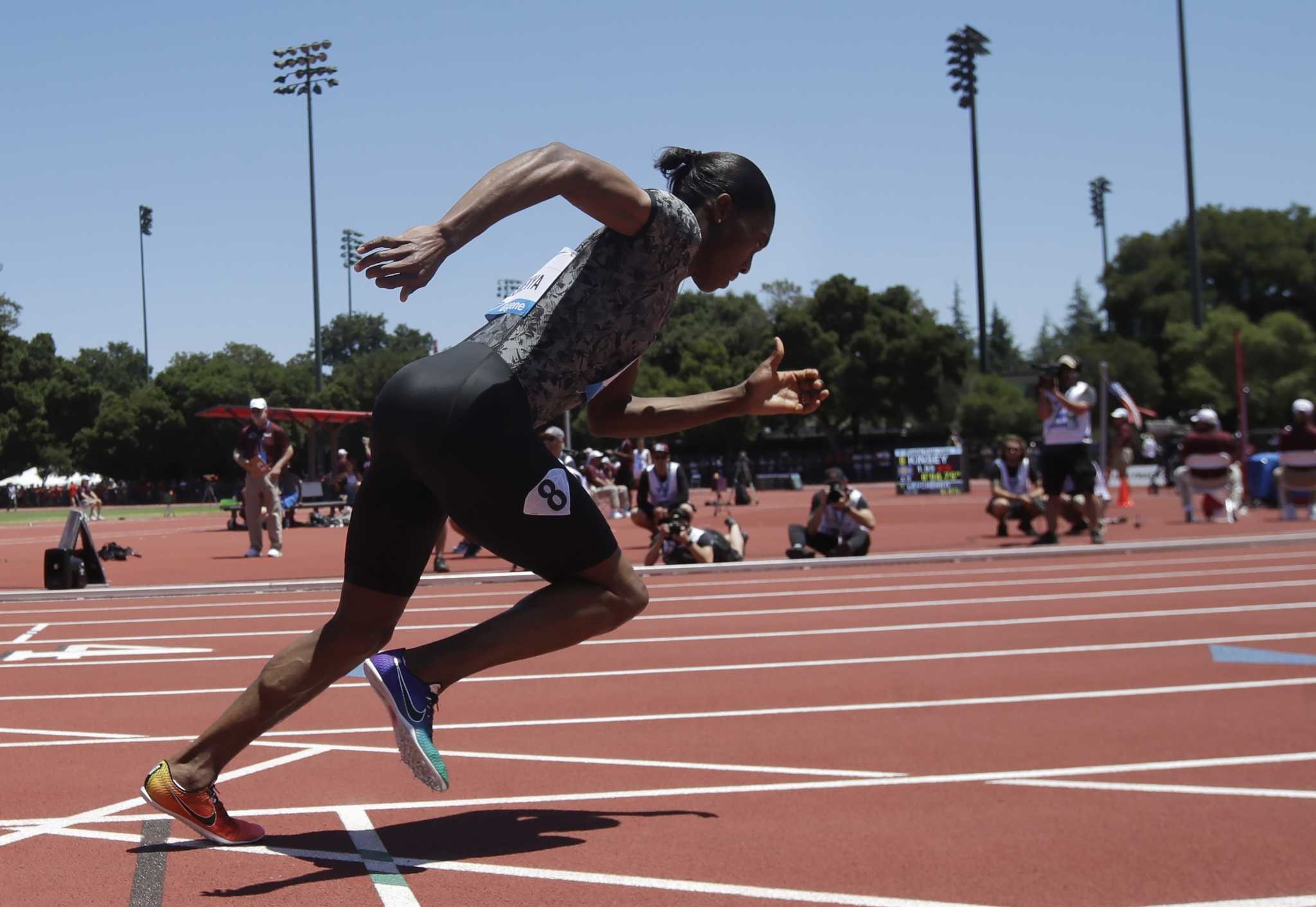
The 71-page ruling means Semenya cannot defend her Olympic 800-meter title at the Tokyo Games next year — or compete at any top meets in distances from 400 metres to the mile — unless she agrees to lower her testosterone level through medication or surgery.
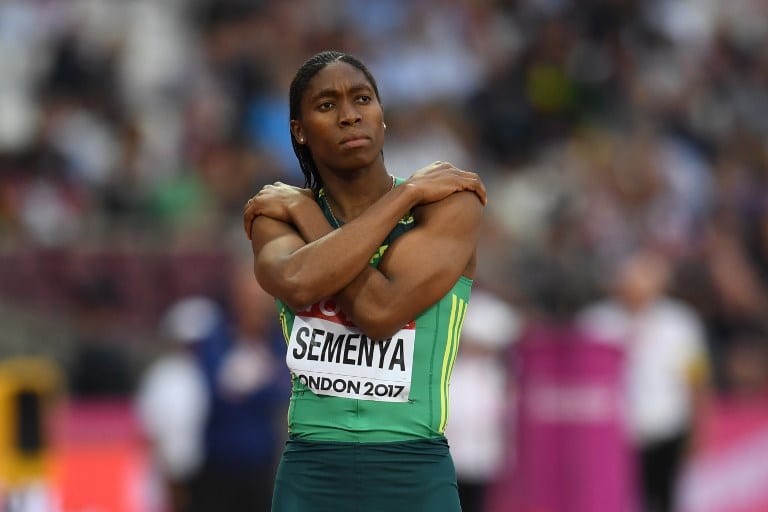
The 29-year-old South African repeatedly said she will not do that and reiterated her stance in a statement through her lawyers Tuesday.
"I am very disappointed by this ruling, but refuse to let World Athletics drug me or stop me from being who I am," Semenya said. "Excluding female athletes or endangering our health solely because of our natural abilities puts World Athletics on the wrong side of history."
The Swiss Federal Tribunal said Semenya's appeal "essentially alleges a violation of the prohibition of discrimination."
In a May 2019 verdict, the sport court's three judges had said in a 2-to-1 ruling the discrimination against Semenya was "necessary, reasonable and proportionate" to maintain fairness in women's track. Testosterone is a hormone that strengthens muscle tone and bone mass, and is a doping product if injected or ingested.
The panel of five federal judges said it was limited to examining "whether the CAS decision violates fundamental and widely recognized principles of public order. That is not the case."
Semenya's "guarantee of human dignity" was also not compromised by the CAS ruling, the judges decided.
"Implicated female athletes are free to refuse treatment to lower testosterone levels. The decision also does not aim to question in any way the female sex of implicated female athletes," the federal court said.
It's unclear what Semenya will choose to do next. She could compete in the 100 or 200 or at distances longer than the mile but she has never had the success in those events that she has had over two laps.
However, she had already switched her training this year to 200, hinting that she was prepared to lose in court.
Greg Nott, Semenya's long-time lawyer in South Africa, said her international team of lawyers was "considering the judgment and the options to challenge the findings in European and domestics courts."
Any appeal to the European Court of Human Rights would likely not receive a judgment until after the Tokyo Olympics open next July.
Tuesday's judgment also came at a financial cost to Semenya and South Africa's track federation, which joined her appeal. Each was ordered to pay 7,000 Swiss francs ($7,600 US) to the court and 8,000 Swiss francs ($8,700) toward World Athletics' legal costs.
by Graham Dunbar, Gerald Imray
Login to leave a comment
Tokyo 2020 Olympic Games
Fifty-six years after having organized the Olympic Games, the Japanese capital will be hosting a Summer edition for the second time, originally scheduled from July 24 to August 9, 2020, the games were postponed due to coronavirus outbreak, the postponed Tokyo Olympics will be held from July 23 to August 8 in 2021, according to the International Olympic Committee decision. ...
more...South African Olympic champion Caster Semenya is focused on the 200m no matter the result of her appeal
South African Olympic champion Caster Semenya has locked her focus into the 200m, no matter the result of her appeal to overturn last year's Court of Arbitration for Sport (CAS) decision.
Before the Covid-19 pandemic rocked the sporting globe, Semenya was in a court battle to get the CAS decision that allowed athletics governing body, the International Association of Athletics Federations (IAAF), to prescribe hormone-suppressing drugs for any woman with disorder of sex development (DSD) competing in 400m to 1 500m events.
Her last throw of the dice was the Swiss Federal Supreme Court, who had yet to reach a verdict by the time of the global sporting shutdown. In the meantime, Semenya, who outright refused to take the drugs, went to work on the 200m sprint distance.
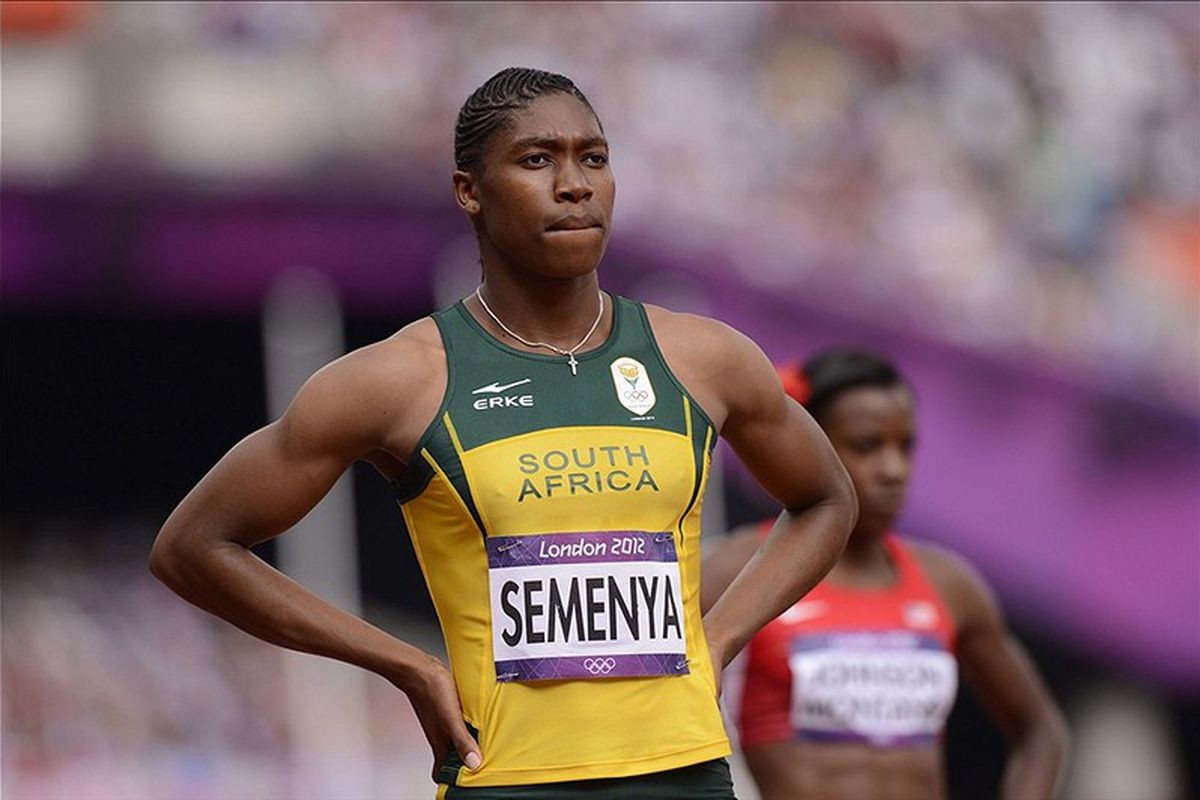
"That’s decided; we’ll stick to 200m no matter what," Semenya told Athletics South Africa (ASA).
"We don’t care about any other decision-making. We will do what we can control now, which is the 200m. That’s the race we’re going to focus on the entire season and we do not care about any other stuff. Two hundred it is."
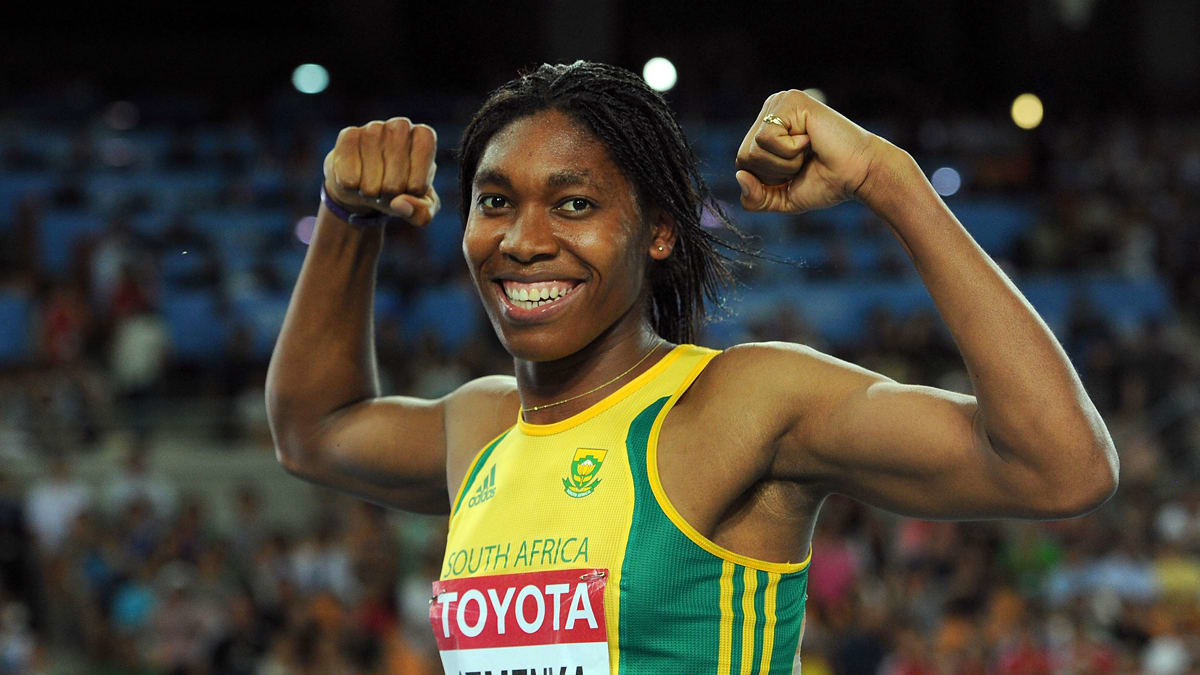
Before the lockdown, Semenya ran impressive 200m times at the Gauteng North Championships in March, recording 23.80 and a personal best 23.49 in her first few outings. However, she still had considerable work to reach the qualifying time of 22.80 for next year’s Tokyo Games.
It’s an unprecedented feat. The closest anyone’s ever been successful at short and middle distance events was Cuban Alberto Juantorena, who won an historic 400m and 800m double at the Montreal Games in 1976. Semenya has a mountain to climb just to make it to her third Games.
Semenya said, though, that she harbored love for the 200m race from her younger days before she developed into one of the best 800m runners of all time and a two-time Olympic 800m gold medalist.
"I’m that athlete who does not worry about times; I take it as it comes. We ran 23.80 and then 23.49 and in the nationals we were hoping to go a little bit down," she said.
"I’ve always said that I’m a power athlete; I can do anything from 100m to a marathon. I have power and speed, which has helped me run a better 800m. From a young age I did the 200m and it has always been easy to do sprints - I was born with sprints.
"It’s crazy but I’m enjoying it. I wish I ran 200m from age 12. I don’t know where I could have been now."
by Sibusiso Mjikeliso
Login to leave a comment
Double Olympic and three-time world 800m champion Caster Semenya is currently unable to contest her favored event unless she takes medication
Caster Semenya has announced she will compete over 200 meters this year in a bid to make the Tokyo Olympics.
Semenya, 29, is currently unable to compete internationally at distances from 400m to the mile under World Athletics regulations requiring women in those events who have naturally occurring high levels of testosterone – termed athletes of different sexual development [DSD] – to take medication.
The South African double Olympic and triple world 800m champion has repeatedly refused to take the required medication and did not defend her world title in Doha last year. Instead, she has now decided to turn her attention to a distance that does not fall under the regulations.
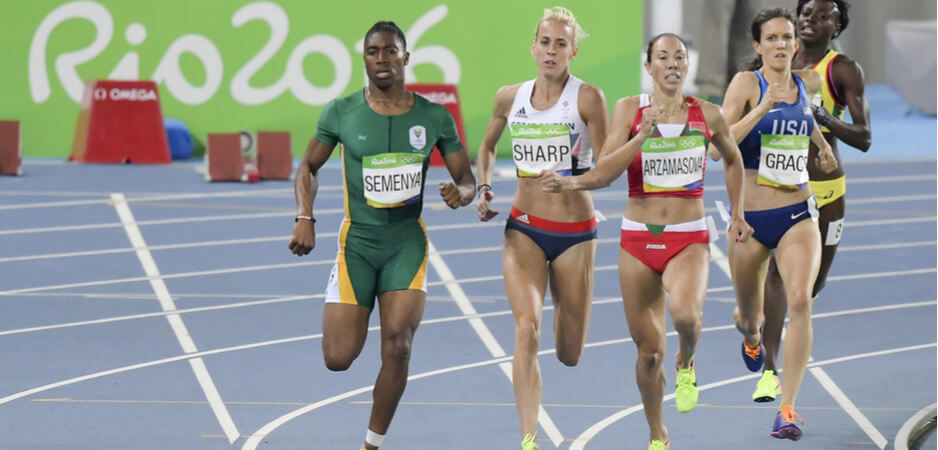
"As you are all aware, I am unable to compete in the 800m and defend my title at the Tokyo Olympic Games later this year," said Semenya on Friday.
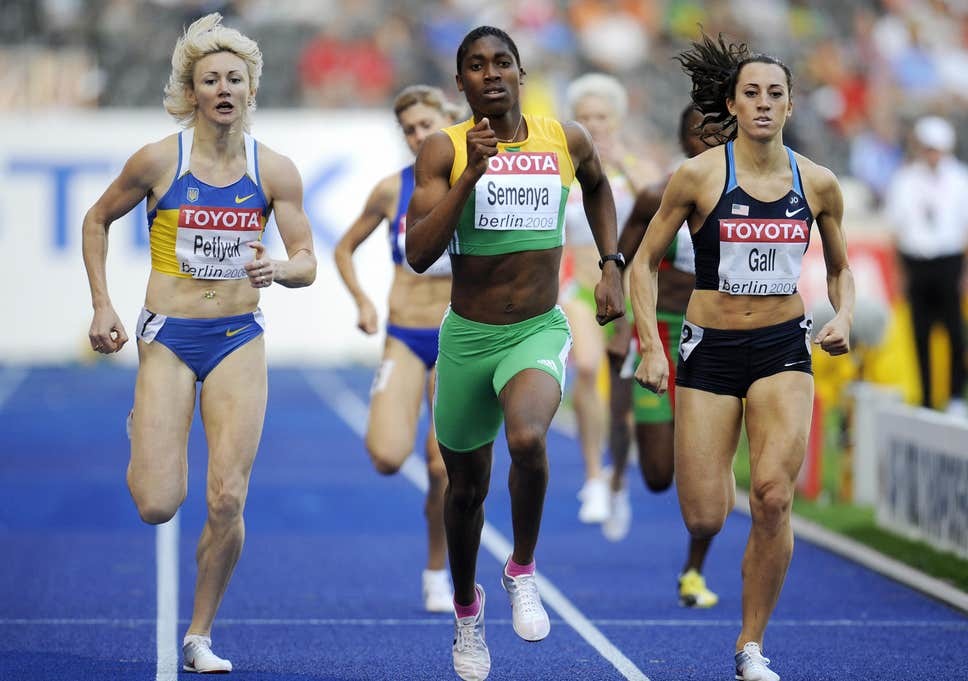
"My dream has always been, and will continue to be, to compete at the highest level of sport, and so in order to pursue my goals and dreams, I have decided to change events, and compete in the 200m.
"This decision has not been an easy one, but as always, I look forward to the challenge, and will work hard, doing all I can to qualify for Tokyo and compete to the best of my ability for South Africa."
Having operated predominantly in middle-distance events during her career, Semenya has few 200m races under her belt prior to this year. Her official personal best of 24.26sec was set last month, although she clocked an unratified 23.49sec at a low-key South African event on Friday.
She would still need to improve significantly on that to secure her place in Tokyo by meeting the Olympic qualifying standard of 22.80sec.
By way of reference, even the 23.49sec she recorded on Friday would have placed her just 18th in the British rankings last year. Dina Asher-Smith's winning time in claiming world gold was 21.88sec.
Semenya's legal challenge against World Athletics' testosterone regulations remains ongoing as she challenges a ruling by the Court of Arbitration for Sport which found in favor of the governing body.
by Ben Bloom
Login to leave a comment
Tokyo 2020 Olympic Games
Fifty-six years after having organized the Olympic Games, the Japanese capital will be hosting a Summer edition for the second time, originally scheduled from July 24 to August 9, 2020, the games were postponed due to coronavirus outbreak, the postponed Tokyo Olympics will be held from July 23 to August 8 in 2021, according to the International Olympic Committee decision. ...
more...South Africa's 800m queen Caster Semenya says she has a surprise planned for her participation at the 2020 Tokyo Olympics
The 29-year-old Rio 2016 gold medalist had been the center of a controversial ruling from the IAAF that has placed restrictions on natural testosterone levels for female athletes competing in the 800m and 1 500m distances.
That directly impacts Semenya, who now has to take medication to lower her natural testosterone levels if she is to take part over those distances in Tokyo.
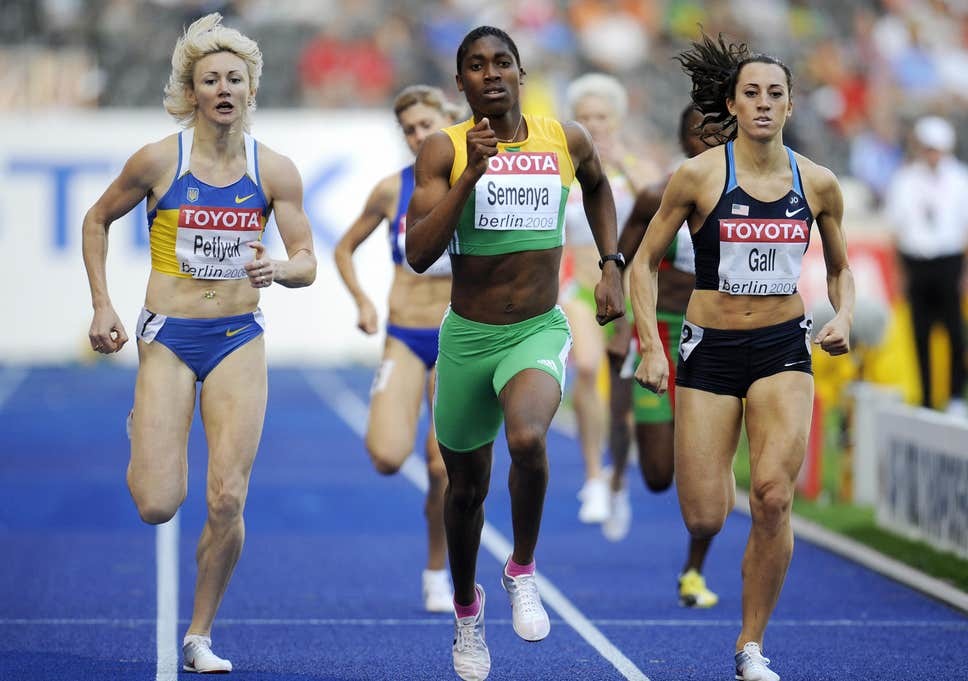
In an interview with Netwerk24, however, Semenya revealed that she has something up her sleeve.
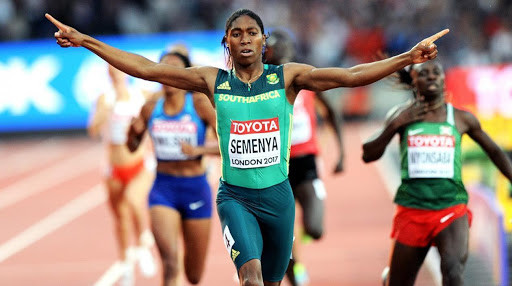
"I'm going to surprise you ... and you're going to like the surprise," Semenya said when asked what her plans for Tokyo were.
Semenya acknowledged that there was very little she could do about the IAAF rulings, but she would not let that get in the way of her ambitions to compete at a third Olympics.
"My biggest goal remains to be at the Olympics and I will work hard to achieve that," she said.
"No ruling is going to get in the way of that."
When asked about her appeal to the IAAF following the ruling, Semenya would not engage.
"I don't want to say anything about that ... there are other people you need to ask," she said.
"It's an issue I have no control over.
"My focus now is on me and nothing else."
Login to leave a comment
Tokyo 2020 Olympic Games
Fifty-six years after having organized the Olympic Games, the Japanese capital will be hosting a Summer edition for the second time, originally scheduled from July 24 to August 9, 2020, the games were postponed due to coronavirus outbreak, the postponed Tokyo Olympics will be held from July 23 to August 8 in 2021, according to the International Olympic Committee decision. ...
more...Caster Semenya has run her first public race in eight months, breaking the national 300m record at a low-level meeting at a South African university
Caster Semenya runs first public race for eight months in 300m before proclaiming: 'Track and field, you will still see my face'. "I'm here to stay."
The Olympic 800m champion is currently banned from competing in her favored event at major meets, and any distance from 400m to one mile, unless she follows World Athletics rules that require her to medically reduce her natural testosterone levels to compete in women's competitions.
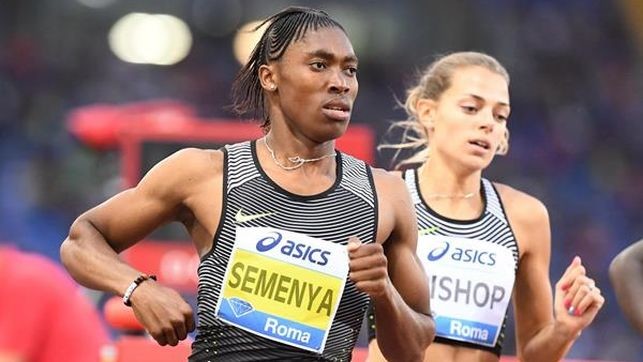
The regulations were designed for female athletes with differences of sex development like Semenya and have been severely criticized.
The race at the University of Johannesburg on Friday night, which also featured high school students, was Semenya's first appearance since June last year when she won an 800m race at the Prefontaine Classic in America.
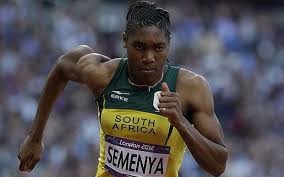
"Track and field, you will still see my face," Semenya said after winning Friday's 300m race in 36.78 seconds. "That is all I can say for now."
It's not the first time Semenya has guaranteed a comeback. The Olympics are just five months away and it's doubtful if Semenya will be able to defend her title in the 800m. But maybe she has another plan.
Semenya, who turned 29 last month, has twice appealed against the regulations. She lost her first appeal at sport's highest court. Her second legal challenge at the Swiss supreme court is still being considered. Her chances of winning that second appeal are seen as slim.
Semenya has repeatedly refused to adhere to the testosterone regulations and her decision to open the Olympic year with a 300m race might be significant.
The rules do not apply to races below 400m and Semenya could compete in the 200m at the Olympics without having to reduce her hormone level.
Semenya didn't indicate if that was her intention when she stated that her track career was not over. The South African has rarely run the 200m and her personal best is 24.26 seconds. Semenya would have to improve that by nearly two seconds to meet the qualifying standard of 22.80 seconds for the Tokyo Olympics.
Login to leave a comment
The reigning 800m world champion Donavan Brazier sees an NFL career in his future
For most people, winning a world championship and racing for an Olympic medal would be enough to satisfy them. Donavan Brazier wants to try for more, but not in running. He wants to take a shot at making it in the NFL.
The 22-year-old 800m world champ and American record-holder has his sights set on Olympic gold, and he is the obvious favourite to win in Tokyo. At the 2019 world championships in Doha, Brazier won in an American record time of 1:42.34, which was over a second ahead of silver.
In an interview with Reuters before his win at the Millrose Games this past weekend, Brazier expressed his interest in an NFL career.
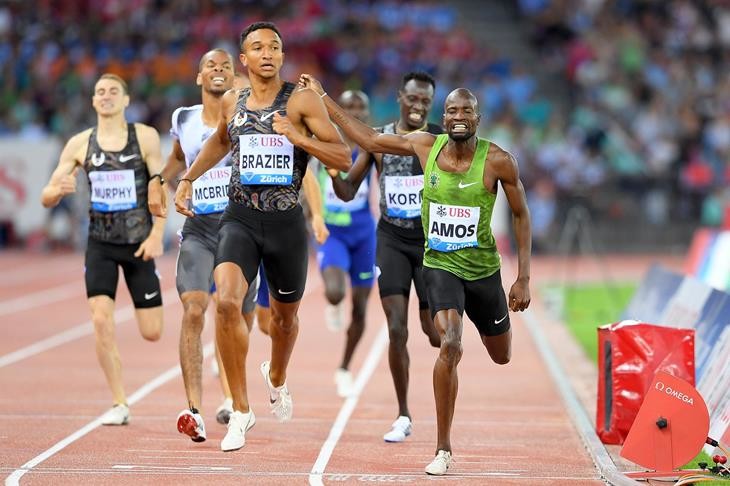
“When I’m in practice and I’m going through a lot of pain and training, I start thinking about anything else I’m good at so that I don’t have to do track,” he said. “The first thing I think of is NFL wide receiver.” Apparently this is not just a dream—he might really act on it, saying that he will consider trying out for an NFL team in the next couple of years.
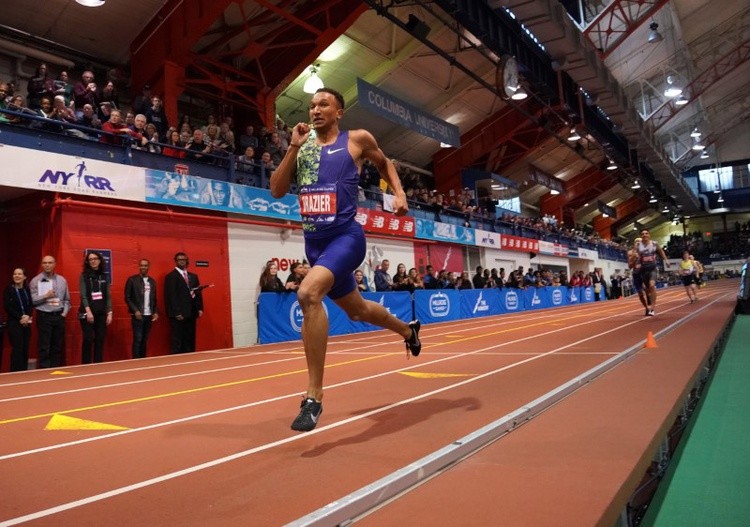
This wouldn’t be the first time that a track star has transitioned into another sport. In 2018, Usain Bolt joined the Central Coast Mariners, a professional soccer team in Australia. He played for the club for two months (he even scored two goals in a friendly match) but ultimately walked away from the sport in November 2018.
It will be interesting to see if Brazier follows through with these plans, and if he does, to see how far he can go. If he does make it in the NFL, it will be a tall order for him to match the success of his track career. On Saturday at the Millrose Games, he took the win in the 800m in 1:44.22, a new U.S. men’s indoor record.
Brazier told Reuters that he sometimes get “too ahead of myself” in competitions. Hopefully he doesn’t look too far ahead to his NFL goals until he reaches a few more of his dreams on the track first.
by Ben Snider-McGrath
Login to leave a comment
Boosting testosterone levels significantly improves female athletic performance, according to one of the first randomised controlled trials
Testosterone was assumed to be performance-enhancing and a factor in explaining differences in strength and endurance between men and women. However, there was a surprising lack of evidence on the impact of testosterone in women and the question had become mired in controversy following a series of rulings in professional sport.
The latest research confirmed that testosterone significantly increases endurance and lean muscle mass among young women, even when given for a relatively short period.
Angelica Hirschberg, a gynaecologist for the Swedish Olympic Committee based at Karolinska University Hospital and the study’s first author, said the results were the first to show a causal effect of testosterone on physical performance in women. “This has not been demonstrated previously because most studies have been performed in men,” she said. “Furthermore, the study shows the magnitude of performance enhancement by testosterone. Testosterone levels increased more than four times but were still much below the male range. The improvement in endurance performance by the increased testosterone levels was more than 8% – this is a huge effect in sports.”
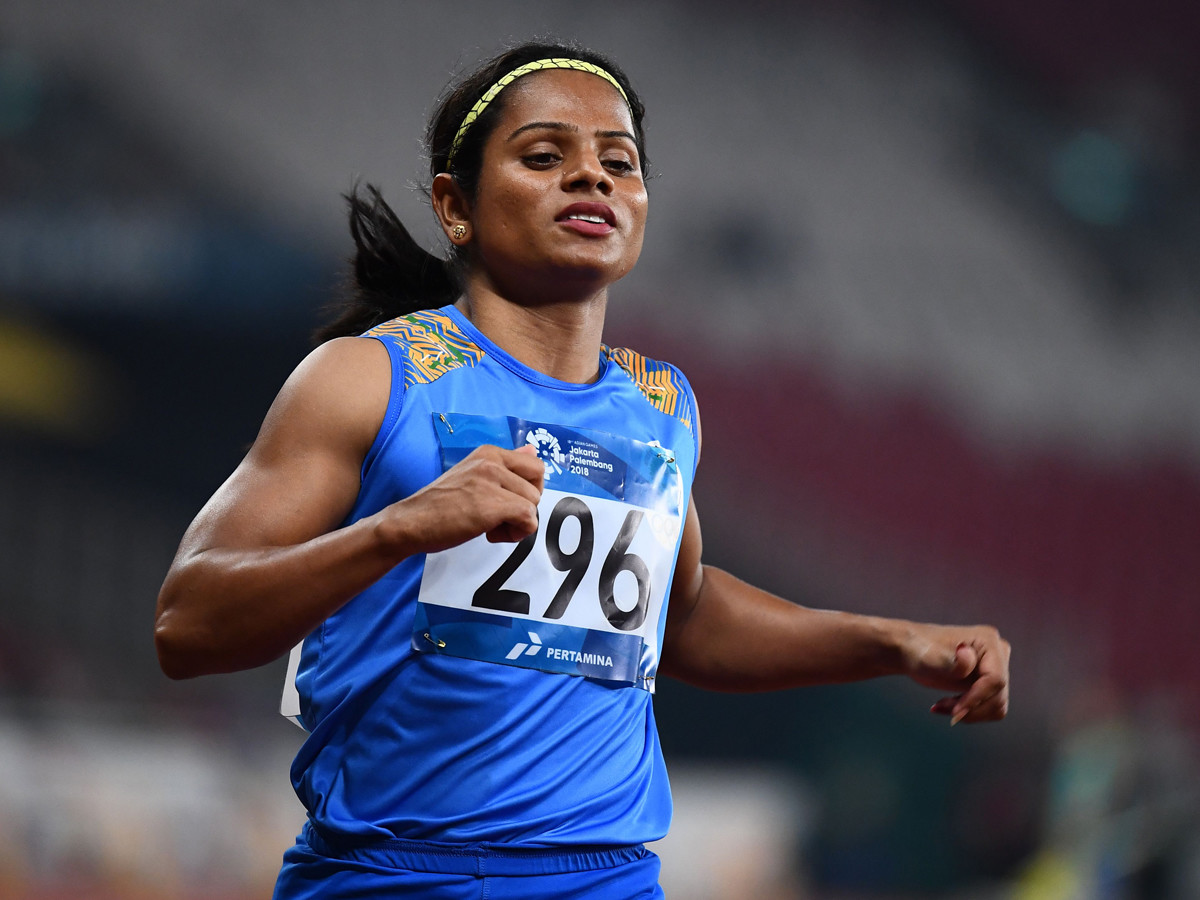
Prof Chris Cooper, emeritus professor of biochemistry at the University of Essex, who was not involved in the work, said: “The data is really clear. This adds further evidence that if you give testosterone to female athletes. you improve their performance. Some people have suggested that testosterone is not the only sex difference, but it’s clearly the best indicator.”
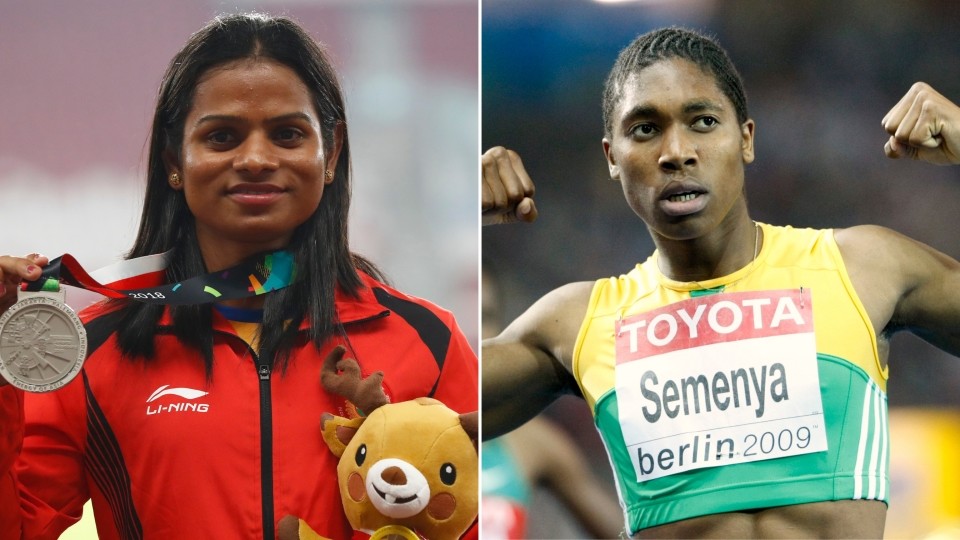
Cooper added that, despite growing interest in the issue, the challenge in gaining ethics approval to give healthy women testosterone had resulted in a lack of empirical studies.
The IAAF ruled this week that trans female athletes must keep their levels of natural testosterone below 5 nanomoles per litre of blood to compete in the female category. The new regulation follows a similar limit imposed on athletes with differences of sexual development (DSD), including the South African Olympic gold medallist, Caster Semenya.
Semenya is challenging the IAAF’s new rules that athletes with DSD must take testosterone-reducing medication to compete in track events from 400m to the mile or change to another distance.
The athlete argued that the rules were discriminatory and unfair. In May, she said: “For a decade the IAAF has tried to slow me down, but this has actually made me stronger.”
The Court of Arbitration for Sport in May found that the rules for athletes with DSD were discriminatory, but that the discrimination was “necessary, reasonable and proportionate” to protect “the integrity of female athletics”.
Critics of the limit have argued that testosterone is not the dominant factor in giving men a performance advantage in certain sports.
In the study, published in the British Journal of Sports Medicine, 48 healthy 18- to 35-year-old women were randomly assigned to 10 weeks of daily treatment with 10mg of testosterone cream or 10mg of a placebo.
The scientists tested the hormone’s impact on aerobic performance measured by how long the women could run on a treadmill before reaching the point of exhaustion, and leg power, muscle strength and lean muscle mass.
Circulating levels of testosterone rose from 0.9 nmol/litre of blood to 4.3 nmol/L in the women given the hormone cream. This was below the recent 5 nmol/L IAAF limit and below the normal male range of 8-29 nmol/L.
Running time to exhaustion increased significantly by 21.17 seconds (8.5%) in the testosterone group, compared with those given the inactive substance. The group given the hormone also had significant changes in lean muscle mass, gaining 923g vs 135g overall and 398g vs 91g in their legs.
by Hannah Devlin
Login to leave a comment
The IAAF has set the same limit for trans women, as expected that it imposes on female athletes with DSD
World Athletics (formerly the IAAF) has ruled that transgender women must maintain testosterone levels at a maximum of 5 nanomoles per liter for 12 months before being declared eligible to compete, it was announced. The limit is half the previous limit of 10 nmol/l, in effect since 2015.
The new rule, passed during IAAF Council meeting in Doha at the conclusion of the recent World Championships, brings guidelines for female transgender athletes into line with those imposed on female athletes with differences of sexual development (DSD) such as Olympic gold medalist and former world champion in the 800m, Caster Semenya, who was ruled ineligible to compete while appealing the decision brought down by the Court of Arbitration for Sport (CAS) on May 1.
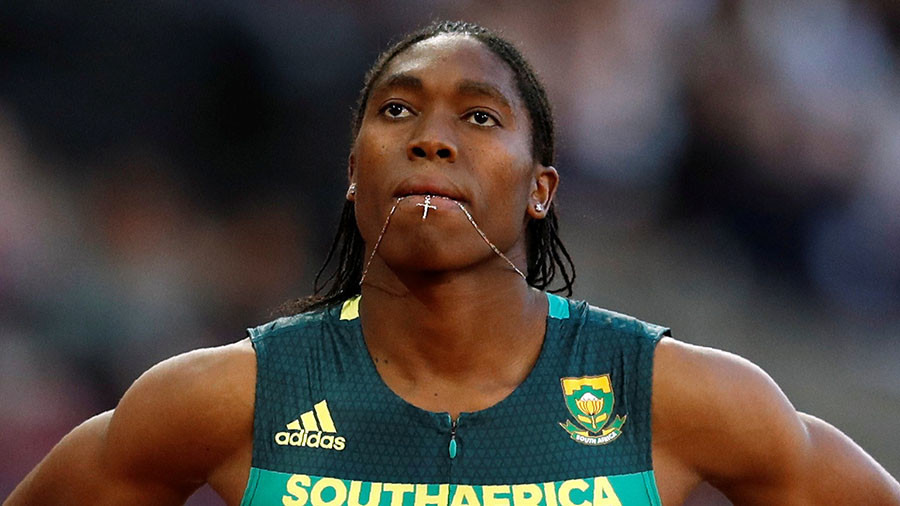
(Semenya is not transgender, but her DSD means she has naturally elevated levels of testosterone, exceeding the average range for women of between 0.12 and 1.79 nmol/l. In her absence, the women’s 800m in Doha was won by Halimah Nakaayi in 1:58.04, a new national record for Uganda.)
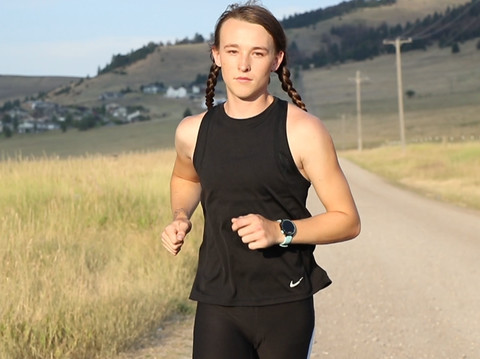
Trans women do not need to show evidence of being recognized by law as female, as long as their testosterone levels are maintained within the acceptable limit, but “should provide a signed declaration that her gender identity is female,” according to a report on the Inside the Games site.
The Council also created a five-member Expert Panel for the Eligibility Regulations of Transgender Athletes, comprised of endocrinologists and other medical experts from around the world. The panel will sit for a four-year term.
by Anne Francis
Login to leave a comment
Caster Semenya has signed with South African soccer team Janine van Wyk Football Club
Caster Semenya, the reigning world and Olympic 800m champion, has signed with South African soccer team Janine van Wyk Football Club (JVW FC). The announcement follows the Swiss Court ruling that Semenya won’t be allowed to compete at the upcoming World Championships in the 800m.
The Swiss Court initially struck down the IAAF’s May 2019 ruling that forced Semenya to either suppress her testosterone levels or switch events from the 800m. This initially allowed Semenya to continue competing, but the Swiss Court overturned its own decision this several weeks ago, once again barring Semenya from competition.
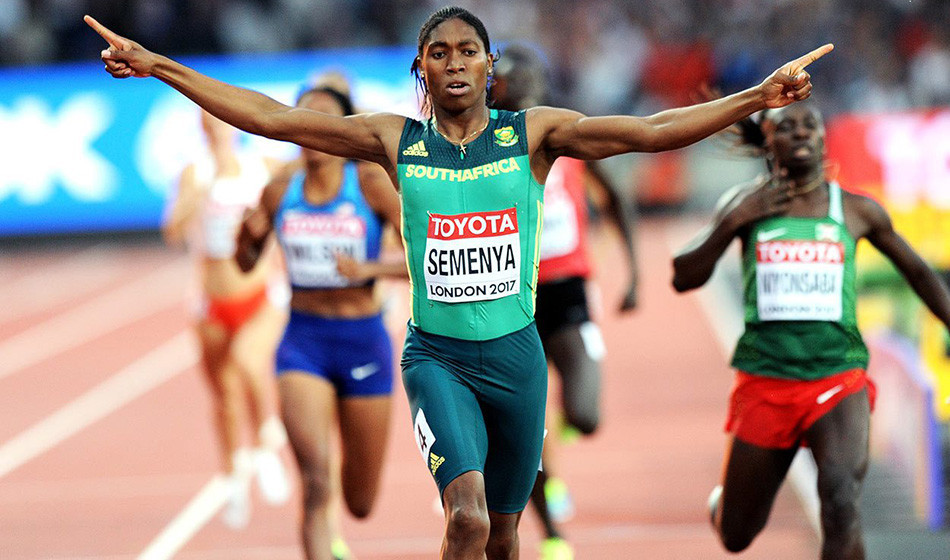
Semenya told the New York Times, “I am very disappointed to be kept from defending my hard-earned title, but this will not deter me from continuing my fight for the human rights of all the female athletes concerned.”
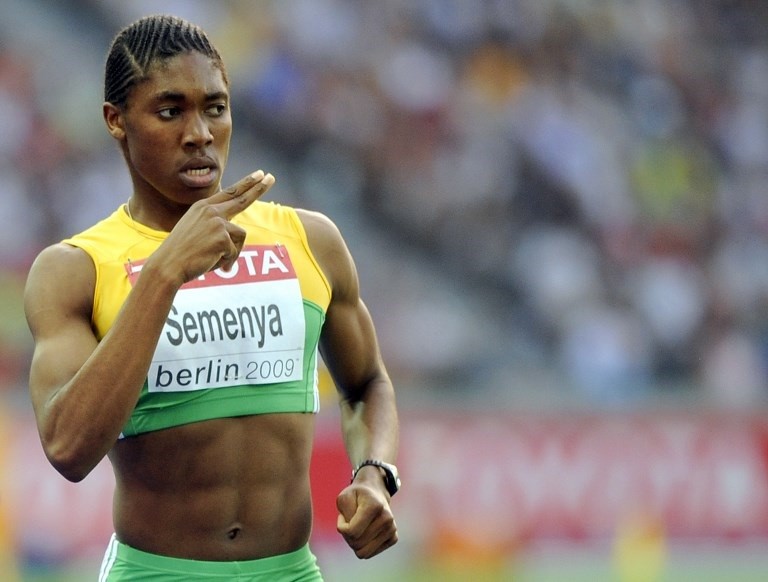
According to the IAAF ruling, Semenya is not allowed to compete at any event from the 400m through the mile, considering she has adamantly refused to lower her testosterone to 5 nmol/L, the maximum allowed under the IAAF’s testosterone rule.
Semenya has been fighting for her place on the 800m start line for nearly a decade now. She wrote on social media on Friday that she’s excited for a new journey, which suggests that she could be leaving the track world behind.
According to Sowetan Live, Semenya won’t be able to compete for the soccer team in the 2019 season as the transfer window is closed, but that she will continue to train with the team in preparation for next year. The track world champion started training last Tuesday.
by Madeleine Kelly
Login to leave a comment
A Swiss court overturned its own ruling, disqualifying Caster Semenya from the upcoming World Championship 800m in Doha
Caster Semenya is unable to defend her World Championship title this fall in the 800m. A June ruling indicated that Semenya would be able to compete in her primary event, but that ruling has been overturned by the Swiss Court.
Semenya’s initial appeal, which was considered by the Federal Supreme Court of Switzerland, was filed based on “fundamental human rights,” claiming CAS’s decision “condones the IAAF’s requirements for unnecessary and unwanted hormonal drug interventions on female athletes despite the lack of any medical protocols and the uncertain health consequences of such interventions.”
Semenya went on to proclaim that “The IAAF will not drug me or stop me from being who I am.”
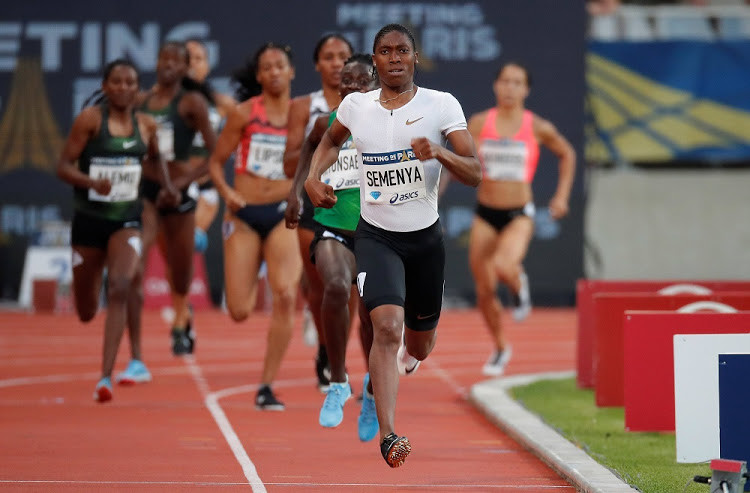
The Swiss Court initially struck down the IAAF’s ruling and allowed Semenya to continue competing, but overturned its own decision this week. Semenya told the New York Times, “I am very disappointed to be kept from defending my hard-earned title, but this will not deter me from continuing my fight for the human rights of all the female athletes concerned.”
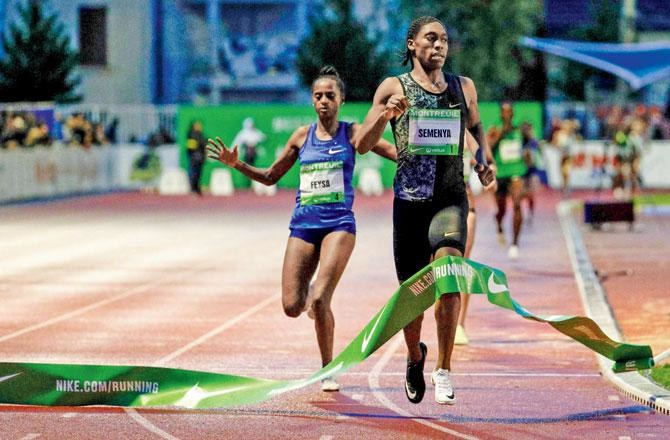
According to the IAAF ruling, Semenya is not allowed to compete at any event from the 400m through the mile, considering she has adamantly refused to lower her testosterone to 5 nmol/L, the maximum allowed under the IAAF’s testosterone rule. There’s a chance Semenya could choose to attempt to qualify for Worlds at another event, but she will not be in the 800m field.
Semenya has run the fastest 800m in the world this season (1:54.98) and was looking like a lock for the World Championship title.
by Madeleine Kelly
Login to leave a comment
IAAF World Athletics Championships Doha
The seventeenth edition of the IAAF World Championships is scheduled to be held between 27 September and 6 October 2019 in Doha, Qatar at the renovated multi-purpose Khalifa International Stadium. Doha overcame bids from Eugene, USA, and Barcelona, Spain to be granted the rights to host the 2019 IAAF World Championships in Athletics. Having hosted the IAAF Diamond League, formerly...
more...Nike has launched a video starring Caster Semenya that calls for acceptance and echoes its recent films featuring Raheem Sterling, Colin Kaepernick and Serena Williams
The Olympic 800m champion recently won a legal battle with the athletics governing body, the International Association of Athletics Federations, after it had banned the middle-distance runner unless she took hormone-suppressant medicine to control her testosterone levels.
Semenya has naturally elevated testosterone levels as a result of a condition known as hyperandrogenism and had lost a landmark legal case against the IAAF, something that she successfully appealed in the Swiss supreme court.
Nike's film promotes Athlete in Progress – a women's apparel collection by Off-White designer Virgil Abloh that debuted in September 2018 in Paris.
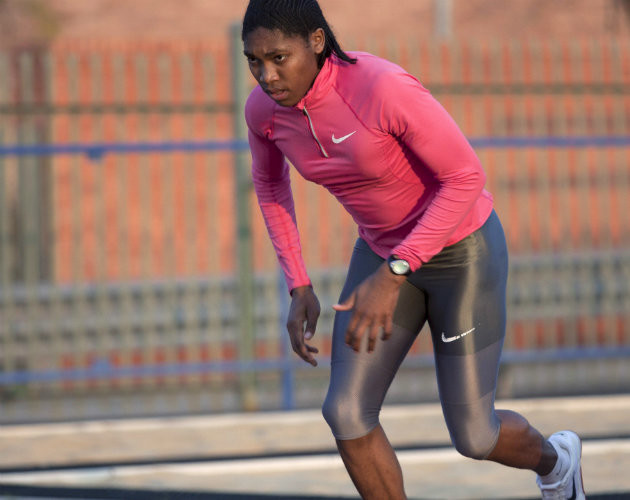
It follows Semenya running through the streets of Johannesburg in her native South Africa, talking about inspiring progress on and off the track. The theme centres on respect, love and acceptance.
Semenya closes with the powerful words: "I have learned to appreciate people for who they are, but first it comes with me appreciating myself and loving myself."
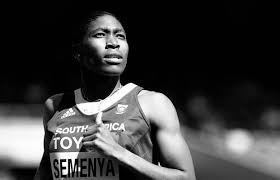
She has accused the IAAF of using her body "as a human guinea pig experiment" and has received support from the South African government and several global sports bodies, including the International Working Group on Women & Sport, WomenSport International and International Association of Physical Education for Girls and Women.
However, not everyone has stuck in her corner. British distance-running legend Paula Radcliffe has been a vocal supporter of the IAAF's position, while noting it was unfair on Semenya.
by Arvind Hickman
Login to leave a comment


